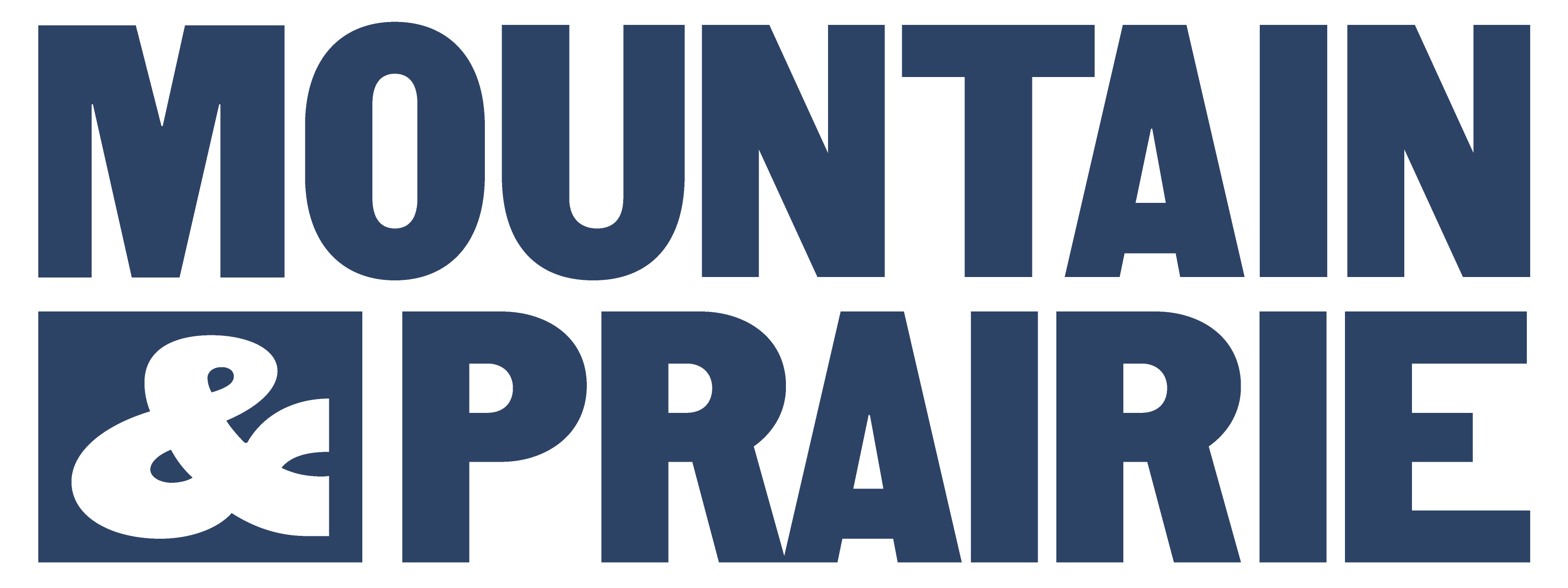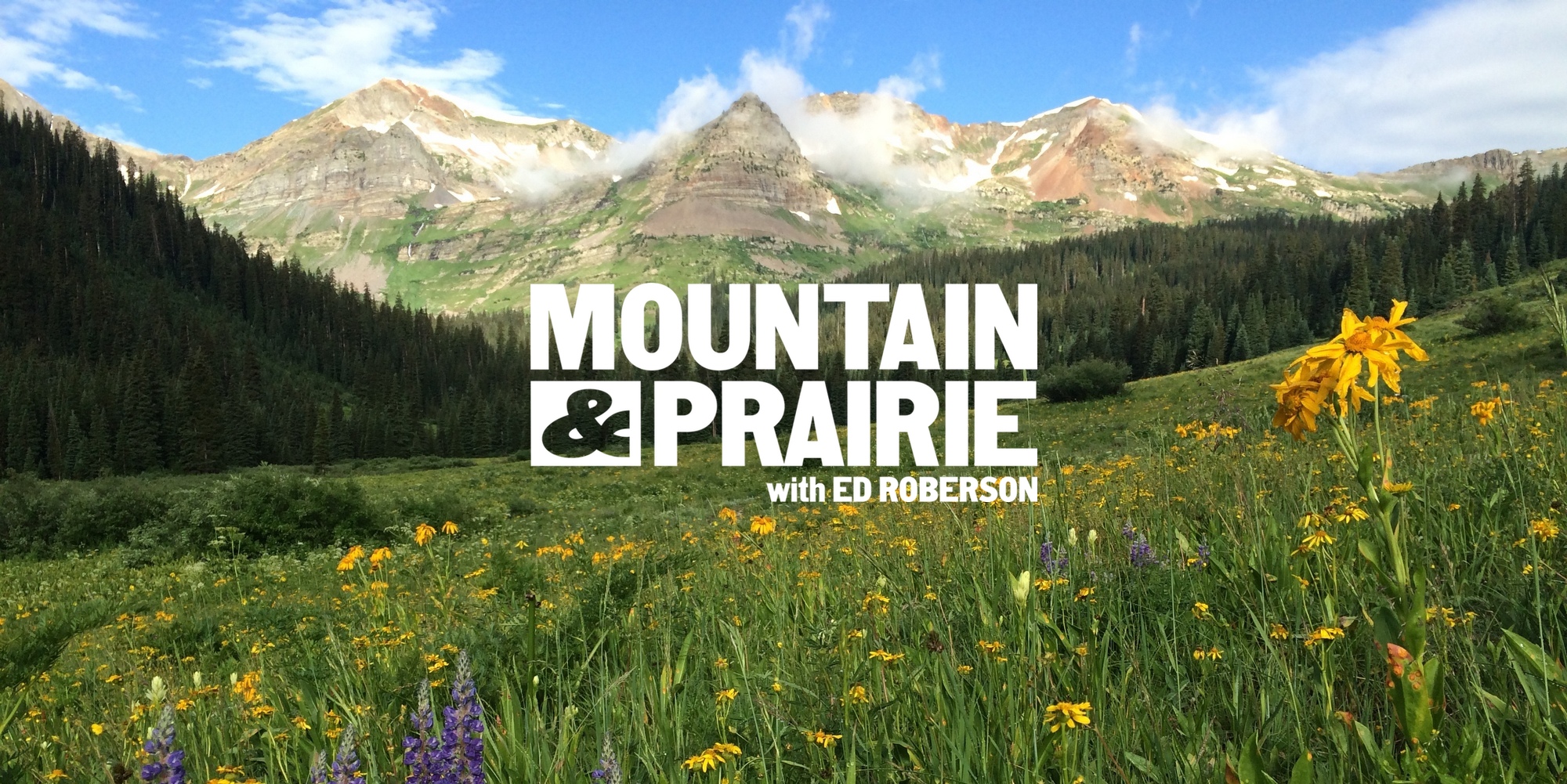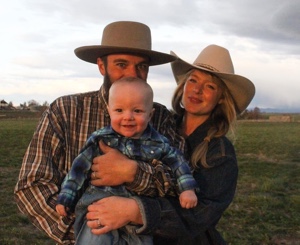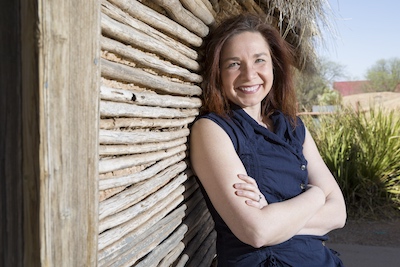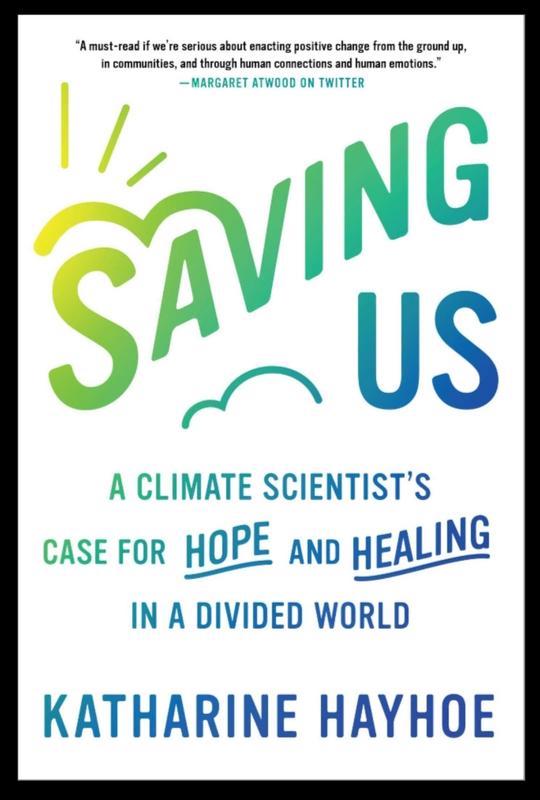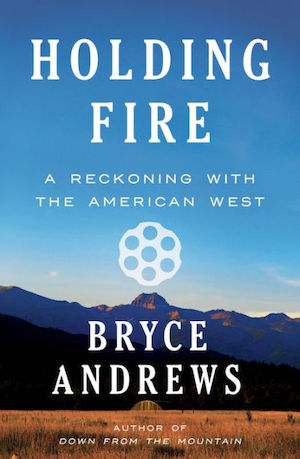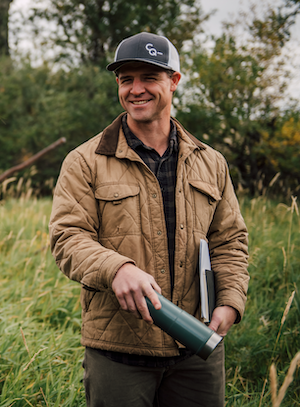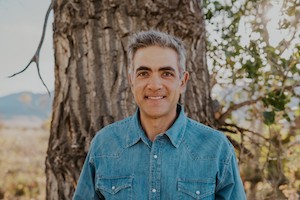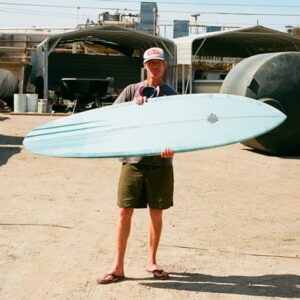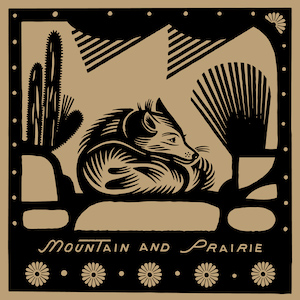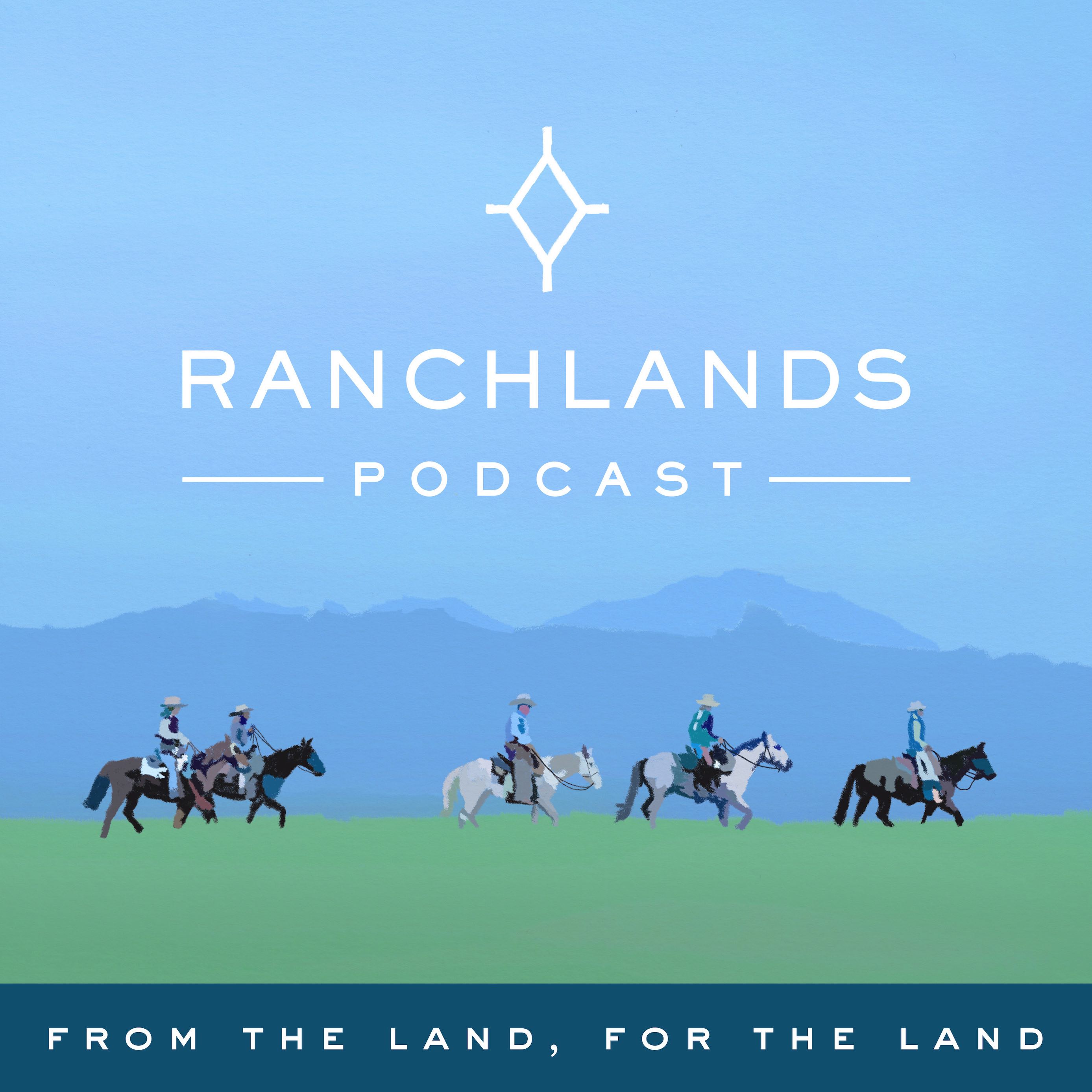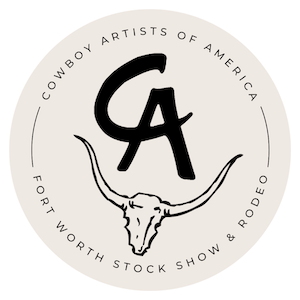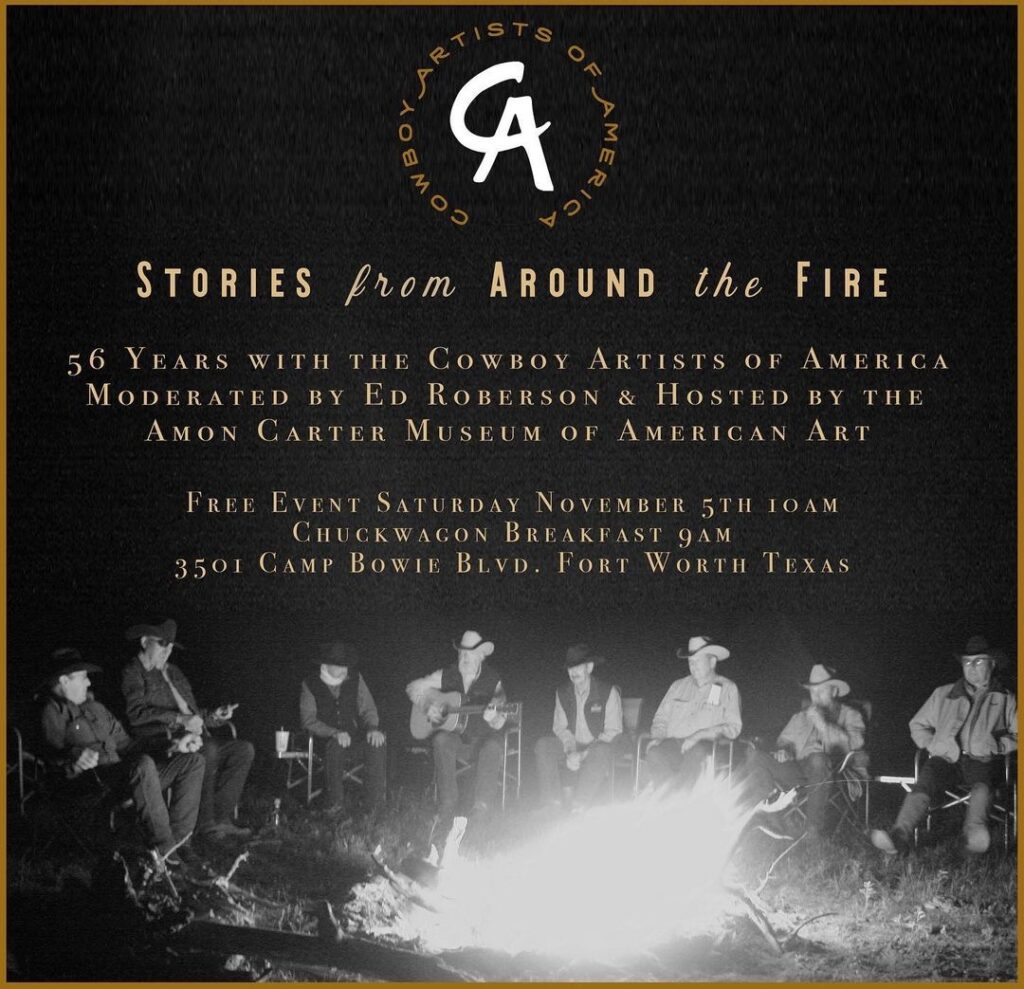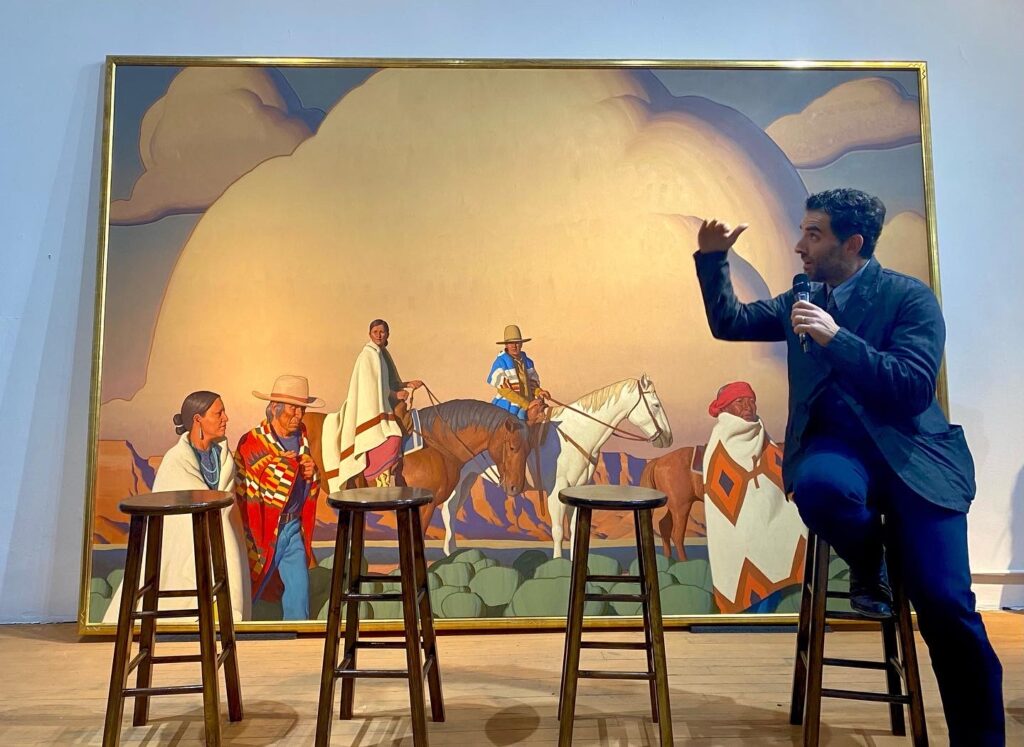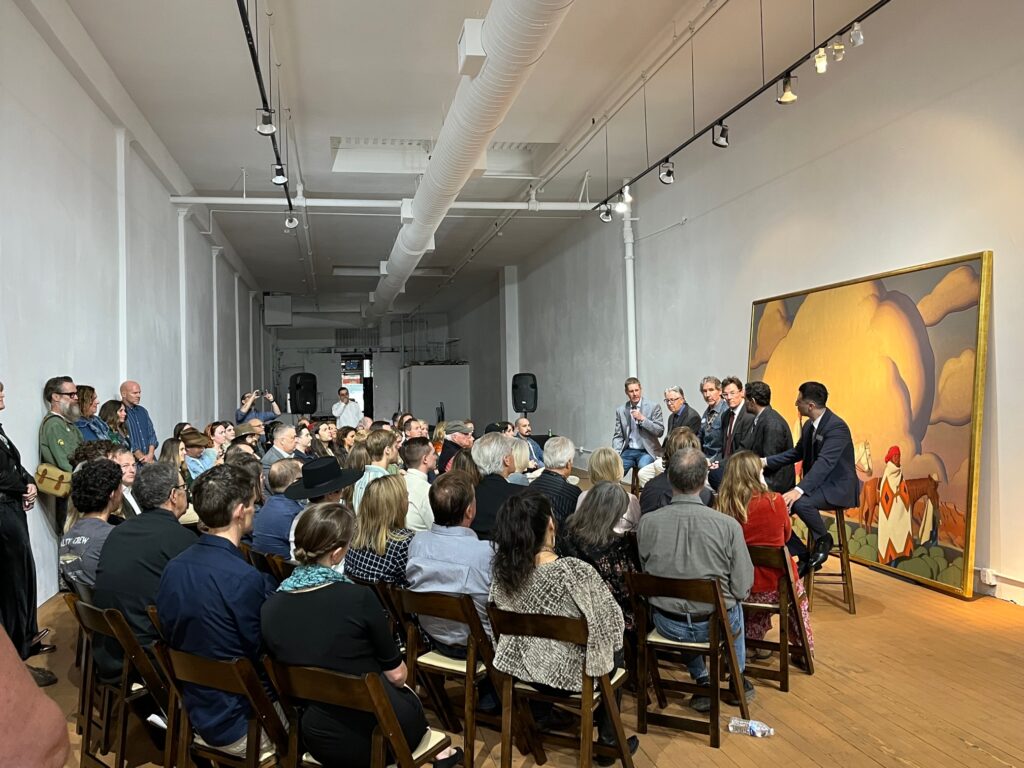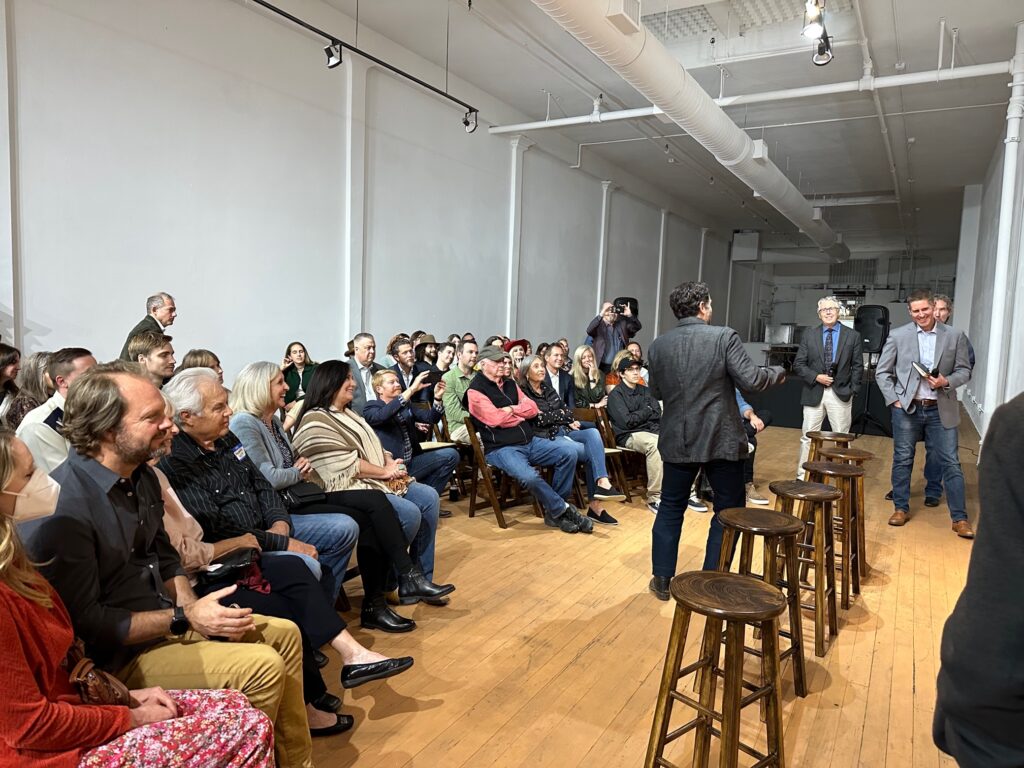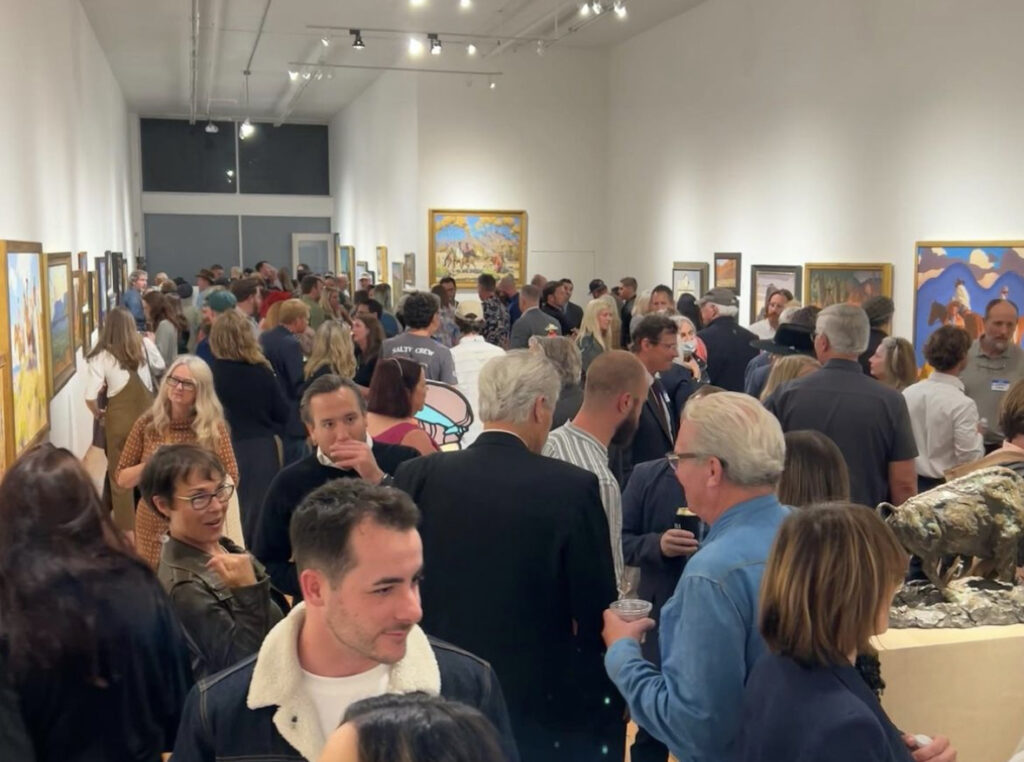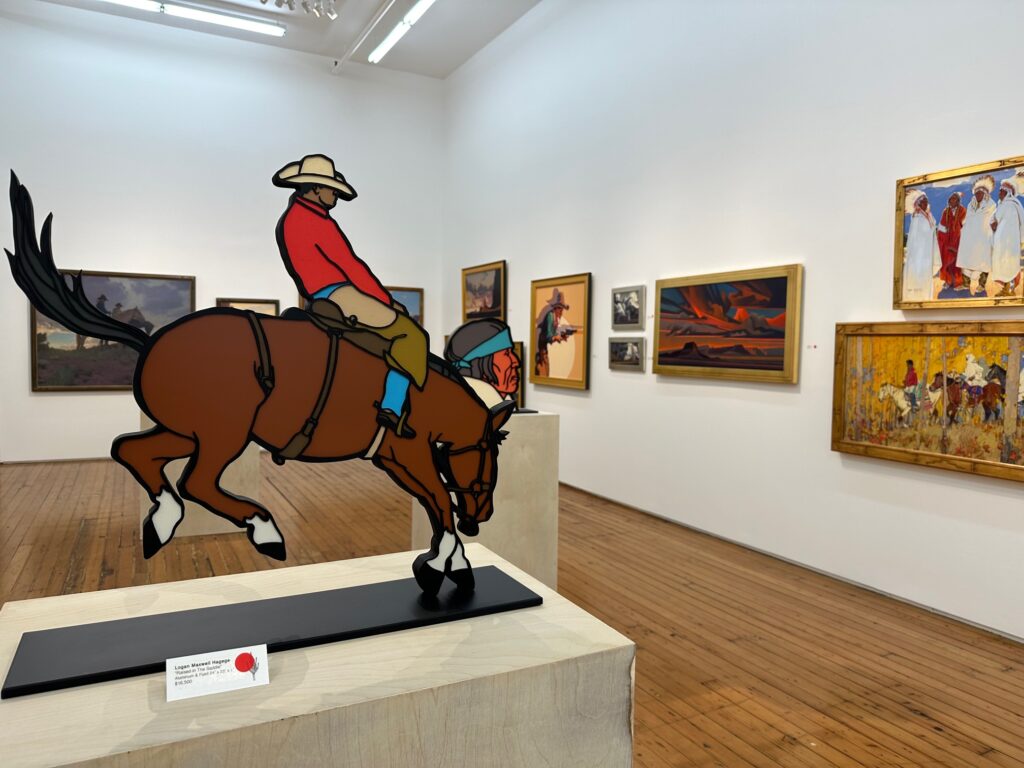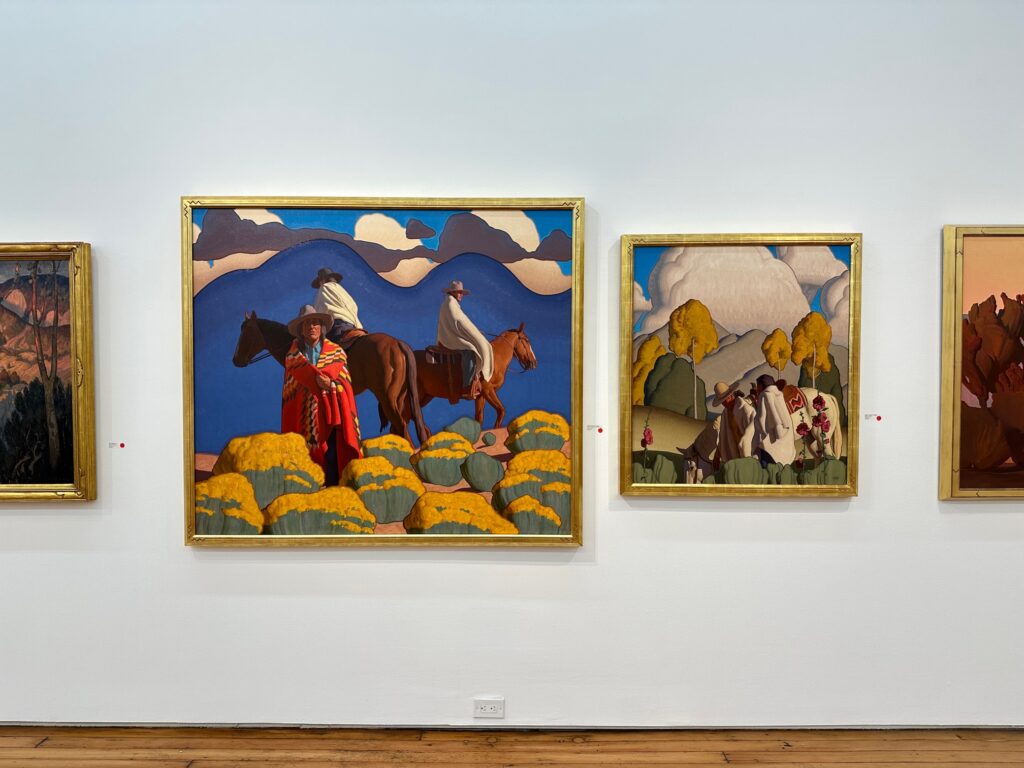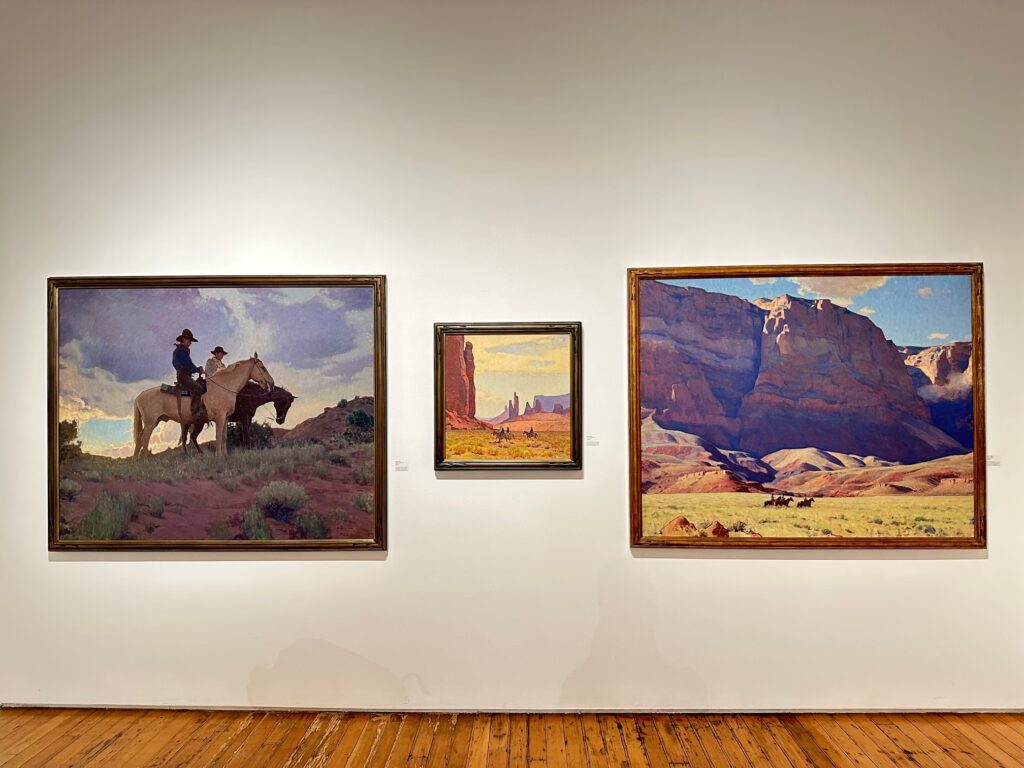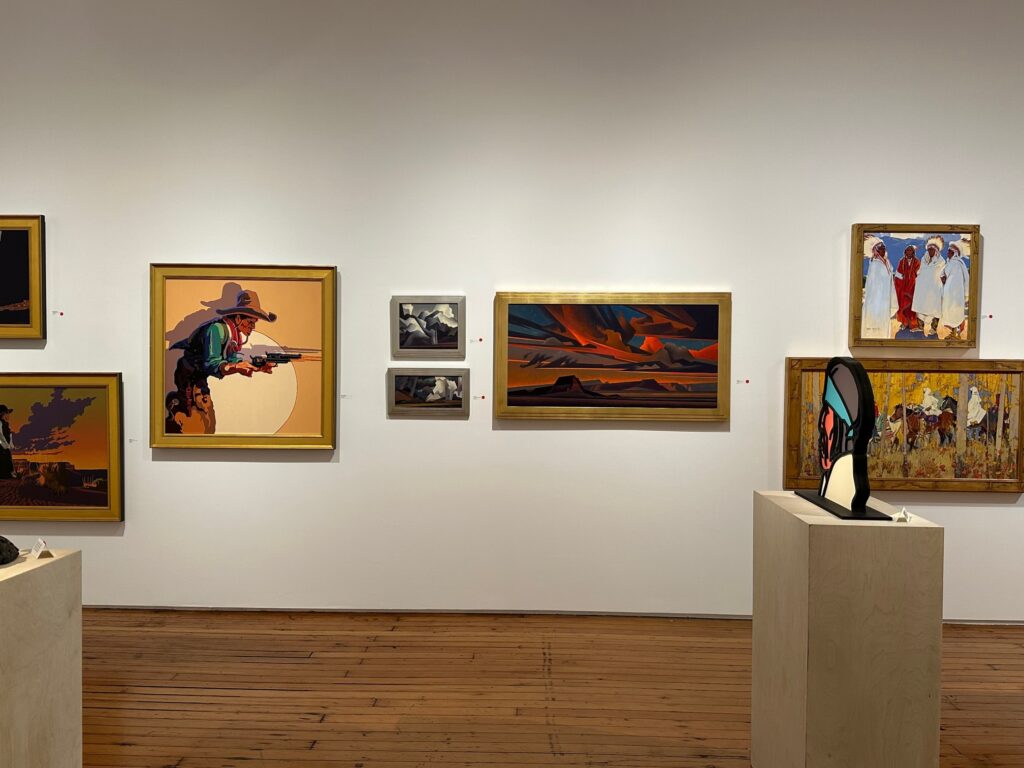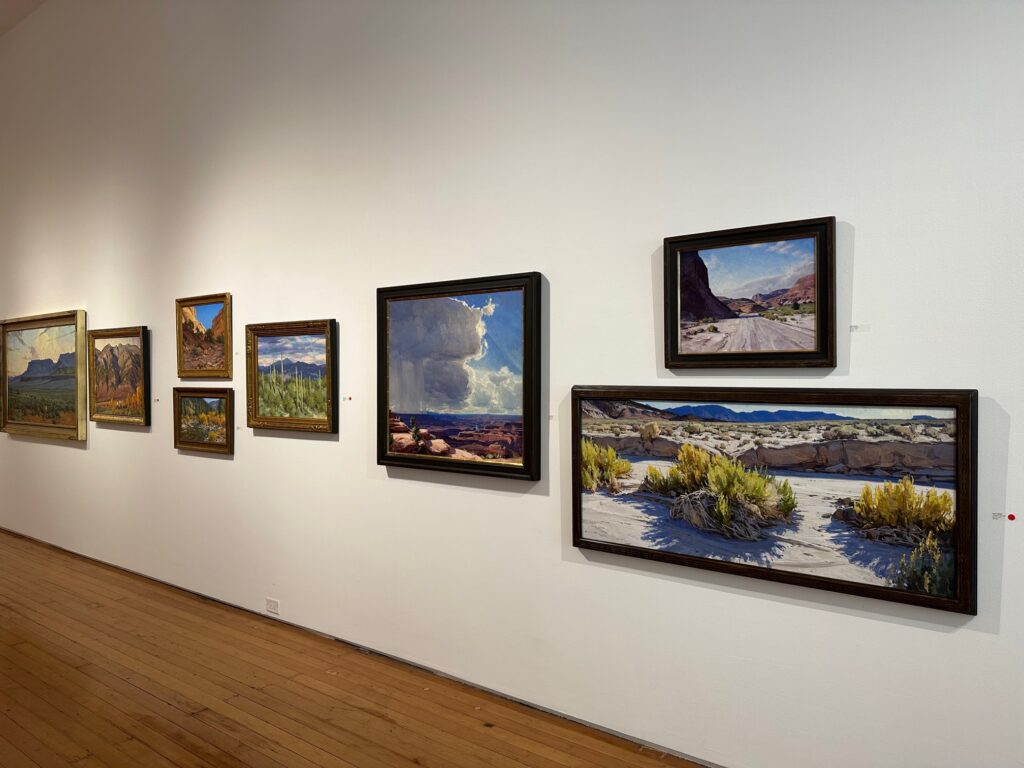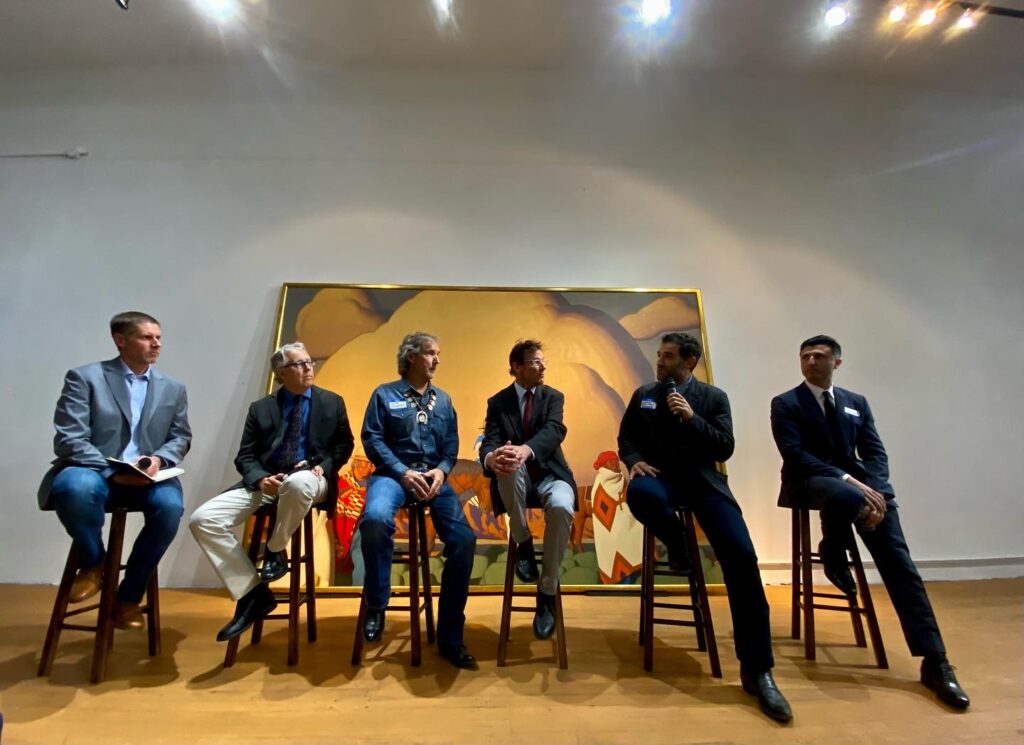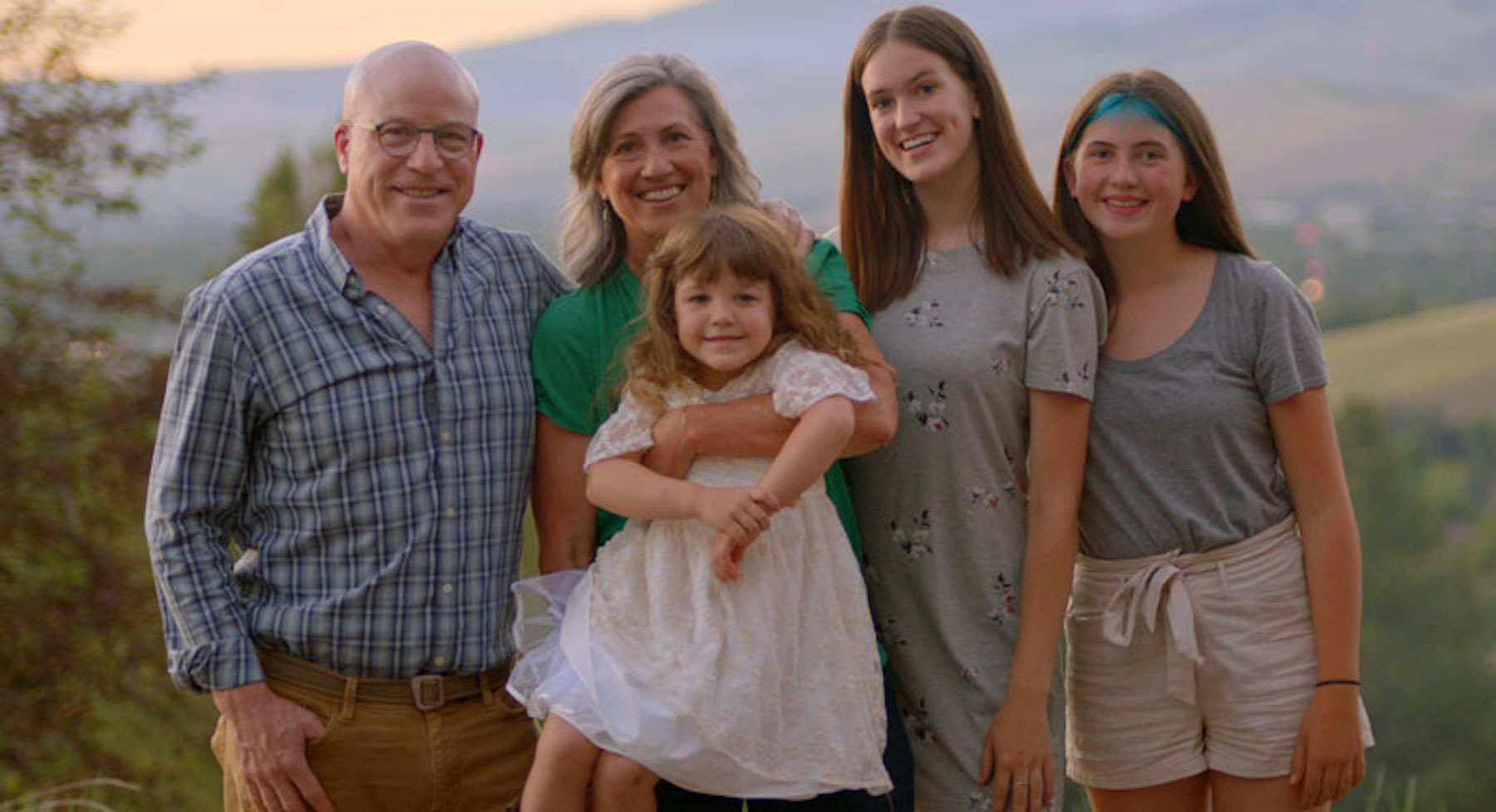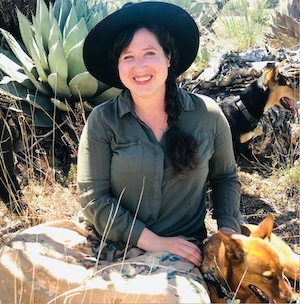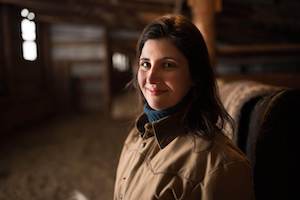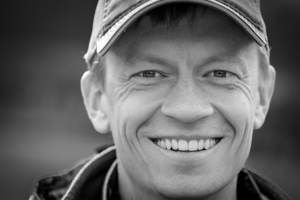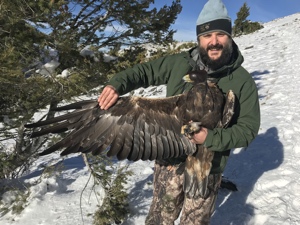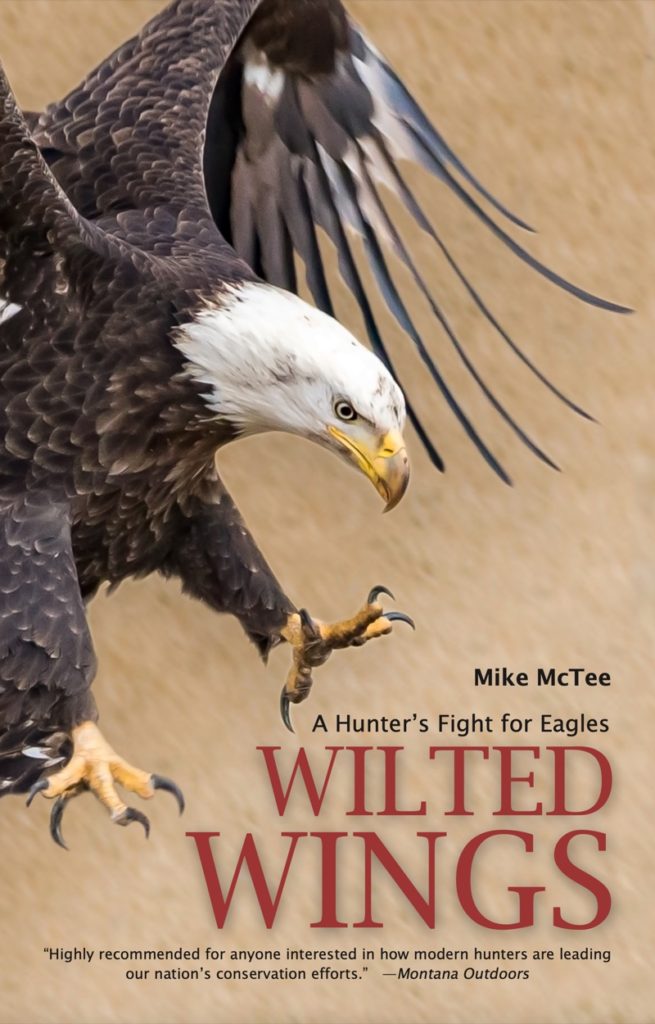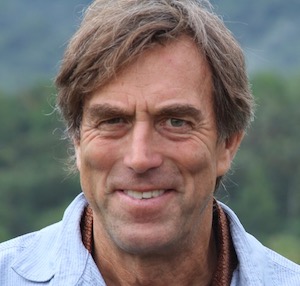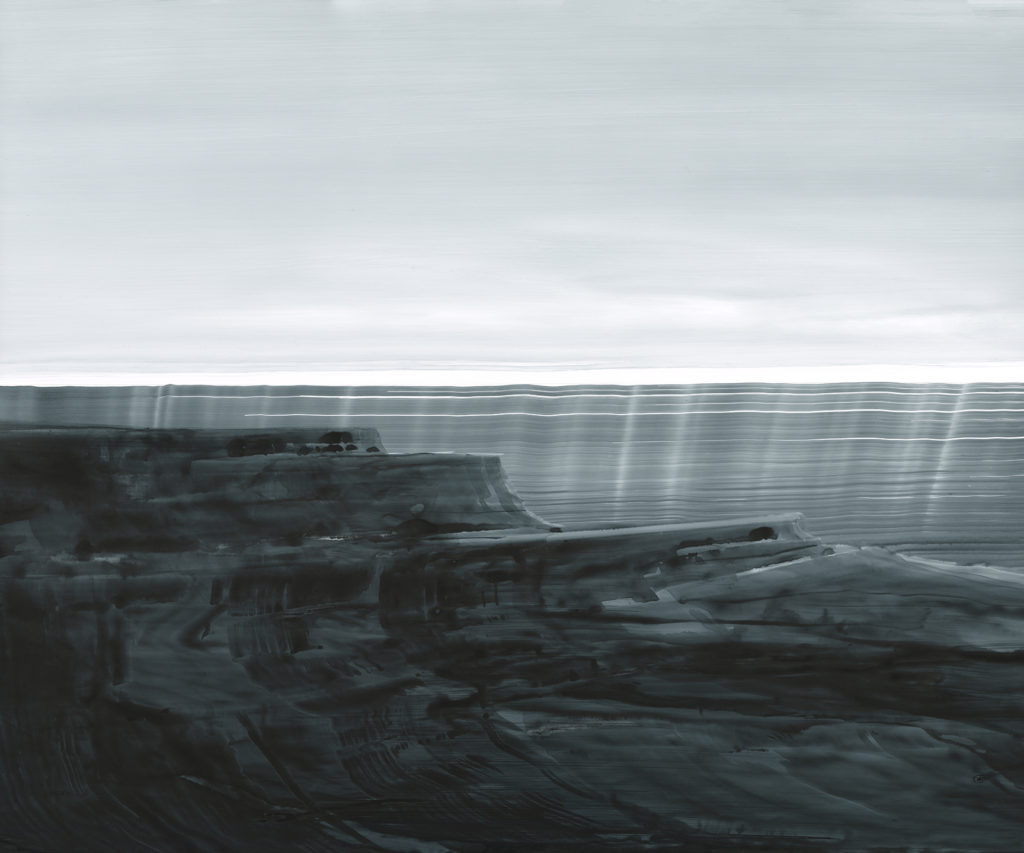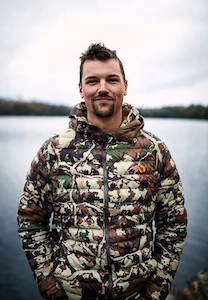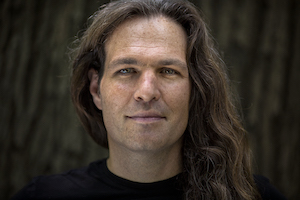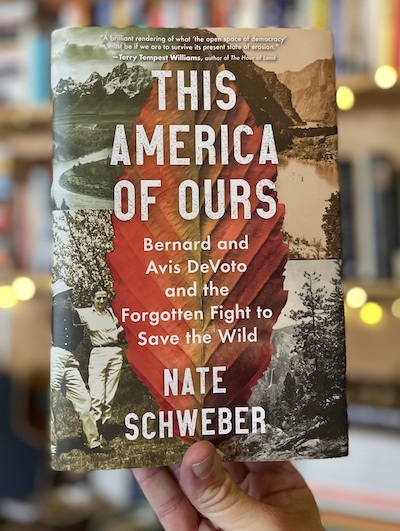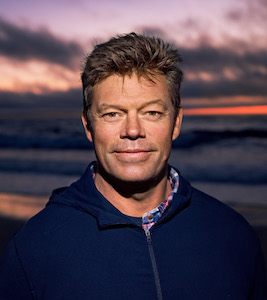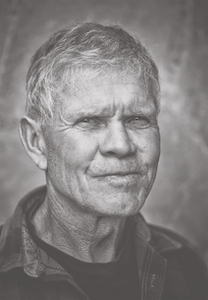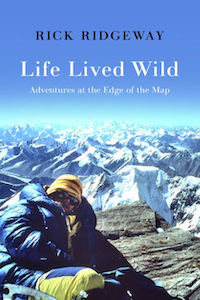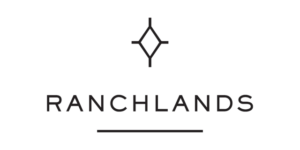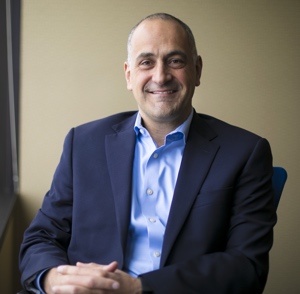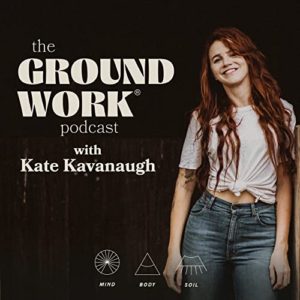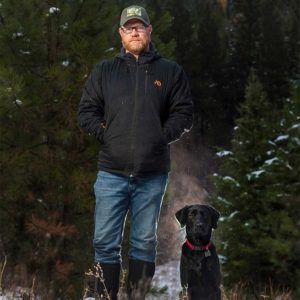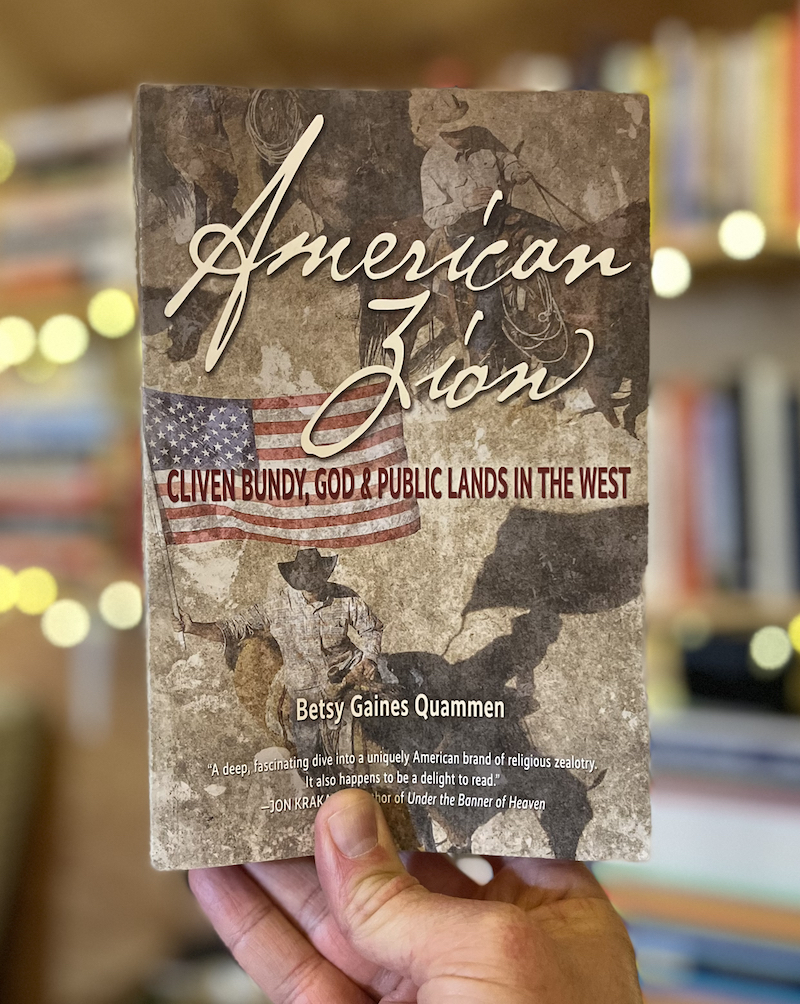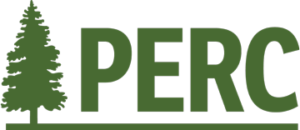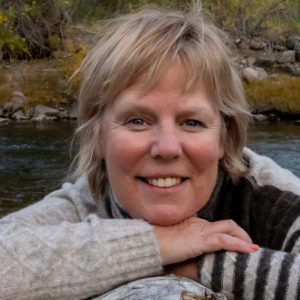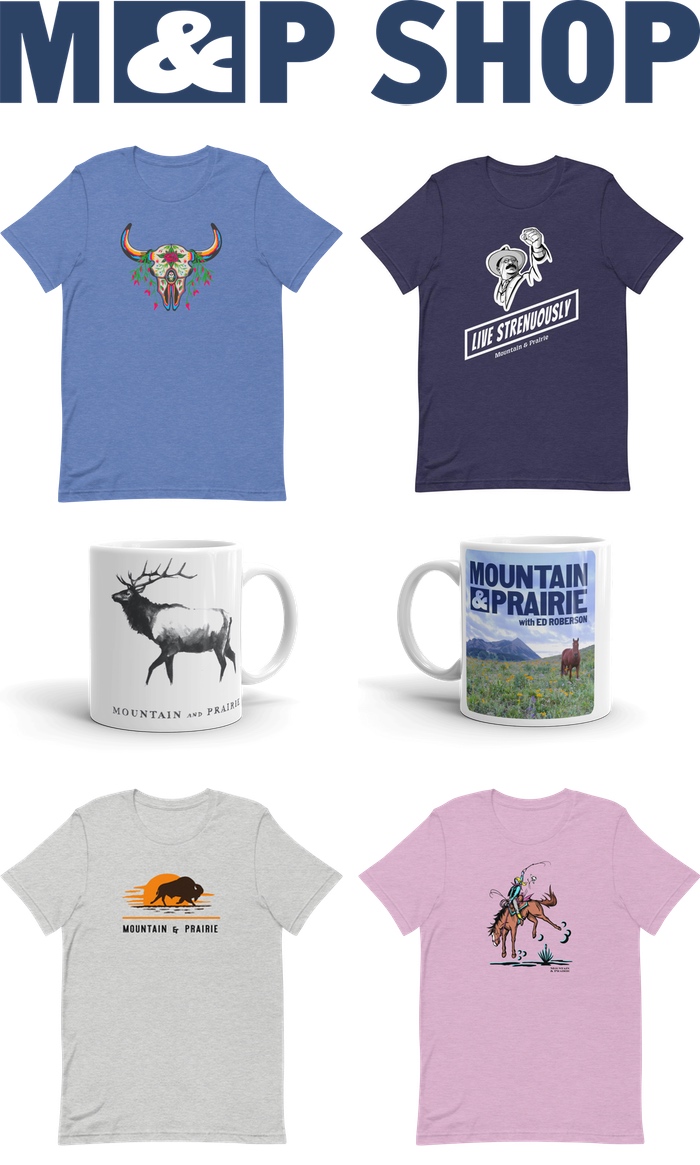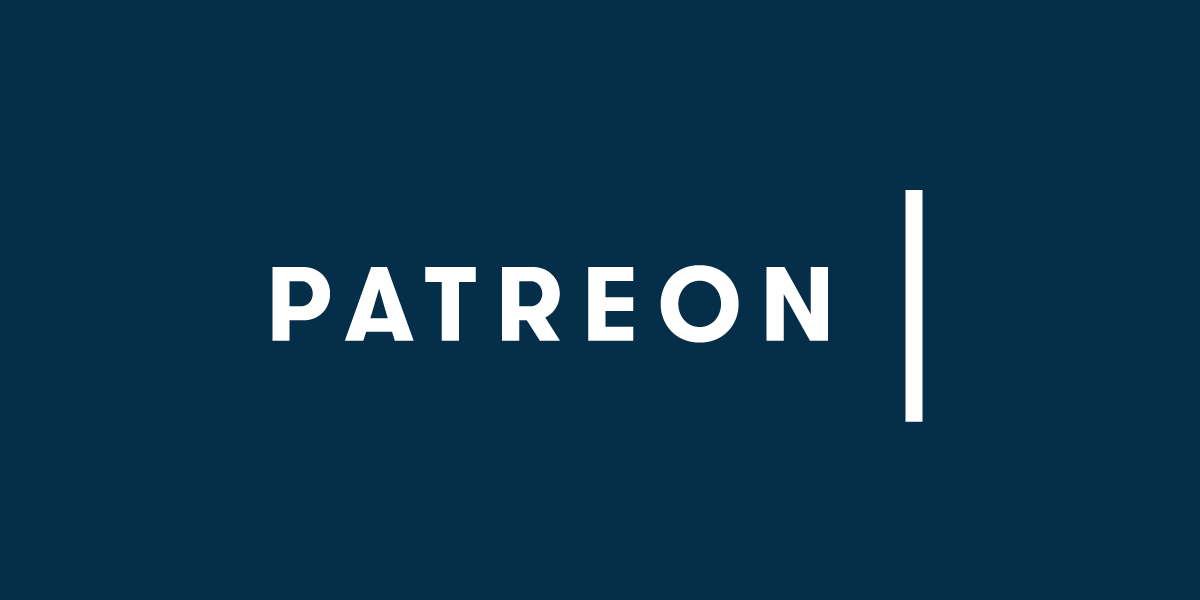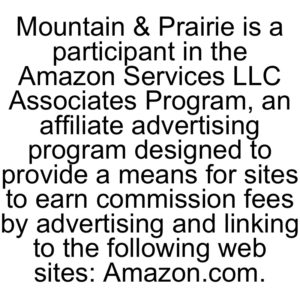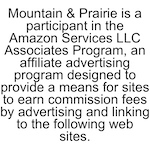Cate Havstad-Casad, Part 2 – Building Businesses for the Greater Good
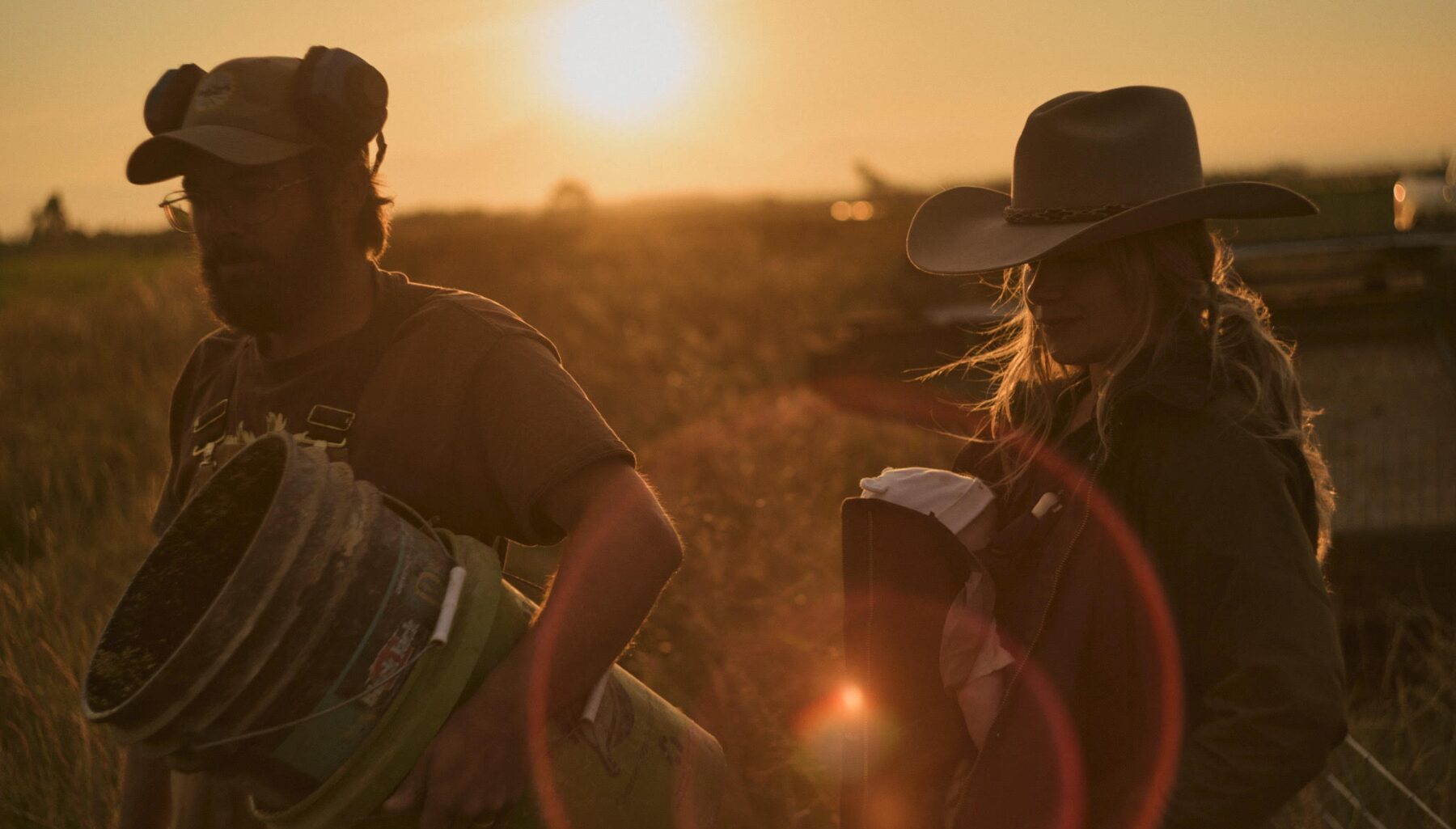
If you’ve listened to Mountain & Prairie since the early days, then I’m sure you remember Cate Havstad-Casad. She first joined me on the podcast in early 2018 for a conversation about her life and career as a hatmaker and farmer. In late 2019, she was one of the four amazing women who joined me on stage for a live podcast at the Bozeman’s Ellen Theatre. And today more than 5 years after that first conversation, she joins me once again to talk about her continued personal and professional evolution.
Over the past few years, Cate has been working at a dizzying pace, focusing on creating and building several purpose-driven businesses. She’s the founder and CEO of Range Revolution, the world’s first regenerative leather luggage company, as well as the co-founder of Agricultural Connections Co-Op, a regional food distribution business based in Bend, Oregon. Additionally, she and her husband Chris have continued to grow their organic farming business, and her hatmaking business, Havstad Hat Co., continues to grow and evolve in unexpected ways. And to top it all off, in 2021, Cate and Chris welcomed their first child into the world.
So, we had a lot to discuss! We started by talking about how Cate thinks about her work today versus five years ago, and why she feels it is important to continue to take business risks even after taking on the new responsibilities that come with parenthood. We talk a lot about Range Revolution and the Agricultural Connections Co-op, and Cate shares a ton of lessons learned from the process of founding these vastly different businesses. We discuss leadership and management, and Cate offers up some excellent books and resources that have helped her to become a better leader. We talk about fundraising, the importance of self-awareness, thinking versus doing, mentors, Wendell Berry, and our mutual love of hard work.
Cate obviously has a full schedule, so I appreciate her carving out time to chat with me. Check out the episode notes for links to her businesses and all of the resources we discuss. Thanks for listening, hope you enjoy.
Photos courtesy of Cate Havstad-Casad
LISTEN & DOWNLOAD:
Apple Podcasts
Spotify
Google Podcasts
… or wherever you get your podcasts!
—
RESOURCES:
Topics Discussed:
- 4:00 – Comparing 2017 Cate Havstad to Cate Havstad now
- 8:00 – Talking about starting businesses and incurring risk later in one’s career
- 11:15 – Discussing Range Revolution
- 15:00 – Where the business of Range Revolution stands
- 18:00 – Cate’s work ethic and how she got potential business partners to take her seriously
- 20:45 – Cate’s relationships with hard work and rest
- 23:45 – How Cate learned to build and manage teams in her work
- 27:15 – Cate’s business book recommendations
- 30:30 – Cate’s red flags in a teammate
- 32:00 – Discussing Agricultural Connections Co-op
- 34:30 – Defining a “cooperative entity” or “co-op”
- 36:15 – How Cate raised the money to start her co-op
- 38:00 – Why Cate is so good at fundraising and how she networks to that end
- 43:30 – Mistakes Cate made that taught valuable lessons
- 49:15 – Where Cate finds balance between action and reflective self-awareness
- 51:15 – Cate’s mentors
- 53:45 – Cate’s suggestions for Wendell Berry reads
- 58:00 – Other book and podcast recommendations from Cate
Information Referenced:
- Havstad Hat Co
- Range Revolution
- Casad Family Farms
- Agricultural Connections Co-op
- Madras, OR
- Land to Market
- Savory Institute
- Leaders Eat Last by Simon Sinek
- Jocko Willink
- Extreme Ownership by Jocko Willink
- Live podcast in Bozeman
- Cole Mannix
- Old Salt Co-op
- Old Salt Festival
- REI
- Ecotrust
- Portland, OR
- Ricardo Bayon
- Brené Brown
- Sallie Calhoun
- Wendell Berry
- It All Turns on Affection by Wendell Berry
- The Unsettling of America by Wendell Berry
- The World Ending Fire by Wendell Berry (essays)
- What are People For essays by Wendell Berry
- Fredrick Douglas
- Silent Spring Revolution by Douglas Brinkley
- Douglas Brinkley
- Rachel Carson
- Green Grass in the Spring by Tony Malmberg
- Tony Malmberg
- Andrea Malmberg
- Holistic management
- Kate Kavanaugh
- Mind, Body, and Soil podcast
- Dr. Anthony Gustin
- The Natural State podcast
- Smartless podcast
- Conan O’Brien
- Conan O’Brien Needs a Friend podcast
Enjoy this episode? Then you might like these too:
- Megan Torgerson – Storytelling from Rural America
- Cole Mannix – Building Community through Land Stewardship and Local Food
- Amber Smith – Creating Connection & Community
- Betsy Gaines Quammen – A Fascinating History of Public Lands in the West
- Kate Mannix – A Legacy of Land Stewardship
- Antonia Malchik – Exploring Culture & Complexity
- Juanita Vero, Part 2 – A Deep Desire to Serve
- Live in Bozeman!
- Kate Kavanaugh – Regeneration & Restoration
Visit the podcast page for a full, searchable list of episodes
Dr. Katharine Hayhoe – Effecting Change Through Authentic Conversation
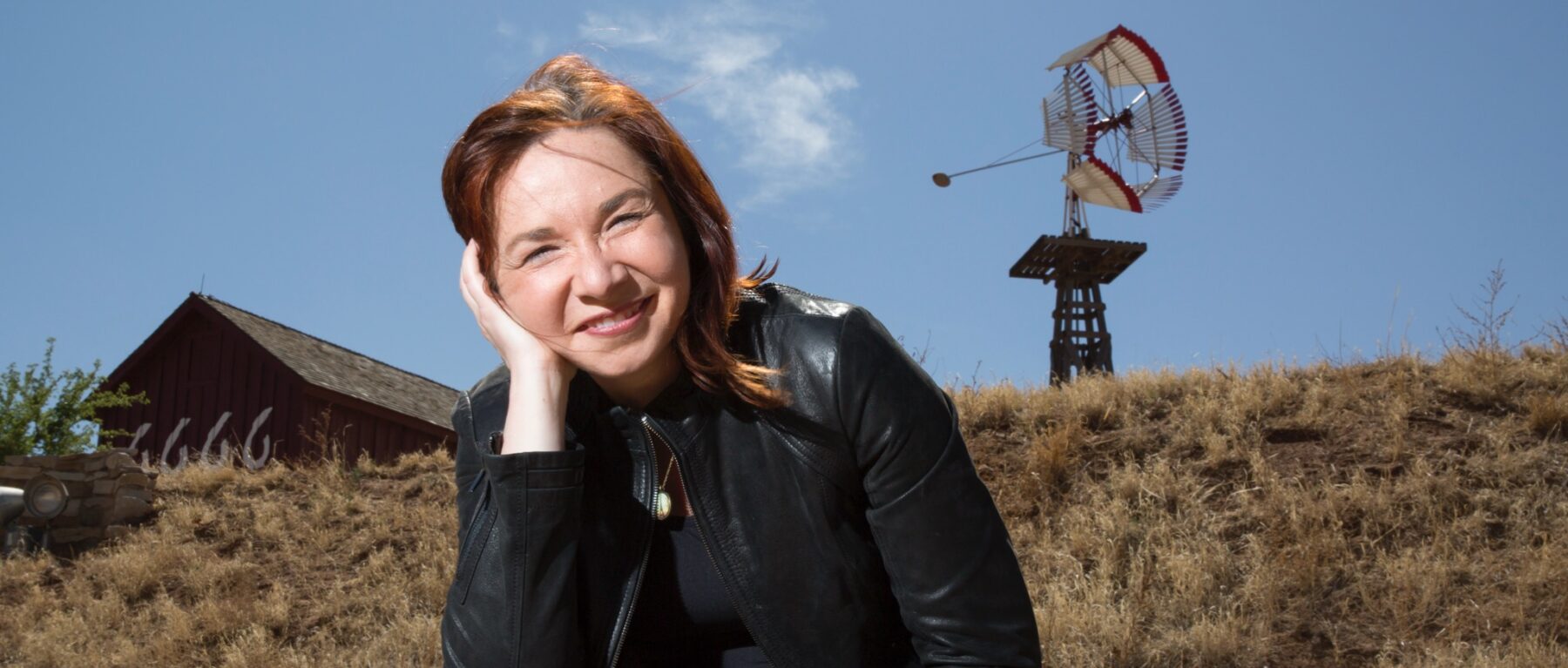
Dr. Katharine Hayhoe is a world-renowned climate scientist, professor, and Chief Scientist for The Nature Conservancy, where she leads and coordinates the organization’s scientific efforts. She is also the author of Saving Us: A Climate Scientist’s Case for Hope and Healing in a Divided World, an excellent book you’ve likely heard me reference on the podcast. Whether you are interested in learning more about the facts, data, or projections regarding climate change, or if you are seeking guidance on how best to approach challenging conversations about climate, I highly recommend Saving Us. It’s an optimistic, solutions-oriented guidebook for finding common ground and having productive conversations.
Katharine was born and raised in Canada and has been obsessed with science, the natural world, and the universe for as long as she can remember. Her undergraduate studies focused on physics and astronomy, but as she was finishing up her degree, she happened to take a climate science course, which captured her imagination and changed the focus of her education and career. Today, Katharine is a distinguished professor at Texas Tech, a highly respected researcher, and a sought-after speaker with a TED Talk that’s been viewed more than 4 million times. And to top it all off, in 2021, she joined The Nature Conservancy as its Chief Scientist.
Katharine and I met up in Steamboat Springs, Colorado, where she was the keynote speaker at a community event focused on climate and climate change in the Yampa Valley and beyond. Katharine and I chatted for an hour before her event, and we managed to cover a lot of ground. We discussed her book Saving Us, her TED talk, and a concept known as “The Six Americas of Global Warming.” We discuss how and why her Christian faith plays such an important role in her work to solve climate change, and she offers some common-sense, optimistic approaches to having challenging conversations with smart people who do not think that climate change is a threat. She also talks about her role at The Nature Conservancy, specific climate opportunities and challenges facing the American West, and she offers a ton of excellent book recommendations.
Thank you to Dr. Hayhoe for taking the time out of her busy schedule to chat with me, and thank you for listening. Hope you enjoy.
Header photo and headshot by Ashley Rodgers
LISTEN & DOWNLOAD:
Download on Apple Podcasts
Download on Spotify
Download on Google Podcasts
…or wherever you get your podcasts!
EPISODE PARTNER:
This episode is brought to you in partnership with the Colorado chapter of The Nature Conservancy. Guided by science and grounded by decades of collaborative partnerships, The Nature Conservancy has a long-standing legacy of achieving lasting results to create a world where nature and people thrive.
On the fourth Tuesday of every month throughout 2023, Mountain & Prairie will be delving into conversations with a wide range of The Nature Conservancy’s leaders, partners, collaborators, and stakeholders, highlighting the myriad of conservation challenges, opportunities, and solutions here in the American West. You can access all of the 2023 episodes here.
To learn more about The Nature Conservancy’s impactful work in Colorado and around the world, visit www.nature.org/colorado
RESOURCES:
Topics Discussed:
- 3:30 – Why Dr. Hayhoe wrote Saving Us
- 5:45 – Regarding Dr. Hayhoe’s TED Talk
- 8:15 – Discussing The Six Americas of Global Warming
- 12:00 – The relationship between Dr. Hayhoe’s faith and climate work
- 17:45 – When religion and climate change dismissal historically became tied together
- 21:30 – Discussing the balance between fear and guilt as motivating and stagnating forces
- 28:00 – What surprised Dr. Hayhoe in writing the book
- 33:45 – Role-playing how to interact with intelligent people who doubt climate science
- 37:30 – Applying lessons learned from COVID-19 to climate change
- 41:30 – Dr. Hayhoe’s time as a 9-year-old abroad in Columbia and how it influenced her thinking and career
- 46:15 – Why Dr. Hayhoe decided to work with The Nature Conservancy, and the impacts she hopes to make
- 50:15 – The stats Dr. Hayhoe would want to see to feel she has had an impact in five years
- 54:45 – The challenges and opportunities facing the arid West amidst climate change
- 57:00 – Dr. Hayhoe’s reading habits and some books she has loved
Information Referenced:
- Saving Us by Dr. Katharine Hayhoe
- The Nature Conservancy
- Poll Everywhere
- Dr. Hayhoe’s TED Talk (The Most Important Thing to Do to Fight Climate Change is to Talk About It)
- The Yale Program on Climate Change Communications
- Dr. Hayhoe’s conversation with Krista Tippett, On Being Podcast
- Douglas Brinkley
- Silent Spring Revolution by Douglas Brinkley
- Time Magazine climate change cover
- James Hansen
- James Hansen’s climate testimony
- Merchants of Doubt
- Winston-Salem, NC
- Wake Forest University
- R.J Reynolds Tobacco Company
- Boulder, CO
- Colorado Springs, CO
- COP27, Egypt
- EasyJet
- The Influential Mind by Tali Sharot
- American Psychological Association
- Texas Tech University
- Oxfam Sisters on the Planet
- Mangrove Forest
- Papua New Guinea
- Houghton College
- Wesleyan Church
- Brian Webb
- Harvard Extension School
- Citizens’ Climate Lobby
- The Righteous Mind by Jonathan Haidt
- King Tutankhamun
- The Amelia Peabody Series by Elizabeth Peters
- Dr. Ayana Elizabeth Johnson
Enjoy this episode? Then you might like these too:
- Daniela Ibarra-Howell – Healing the Land Holistically
- Marci McLean & Cora Neumann on COVID’s Impact on Native Communities
- Dr. David Hewitt – The Science of Wildlife Conservation
- Shane Doyle – Reverence for the Past, Hope for the Future
- Betsy Gaines Quammen – A Fascinating History of Public Lands in the West
- Pete McBride, Part 2: In Search of Silence
- Chris Dombrowski, Part 2 – “The River You Touch”
- Douglas Brinkley – Exploring the Past to Find Inspiration for the Future
Visit the podcast page for a full list of episodes where you can filter episodes by topic and guests’ vocations.
Megan Torgerson – Storytelling from Rural America
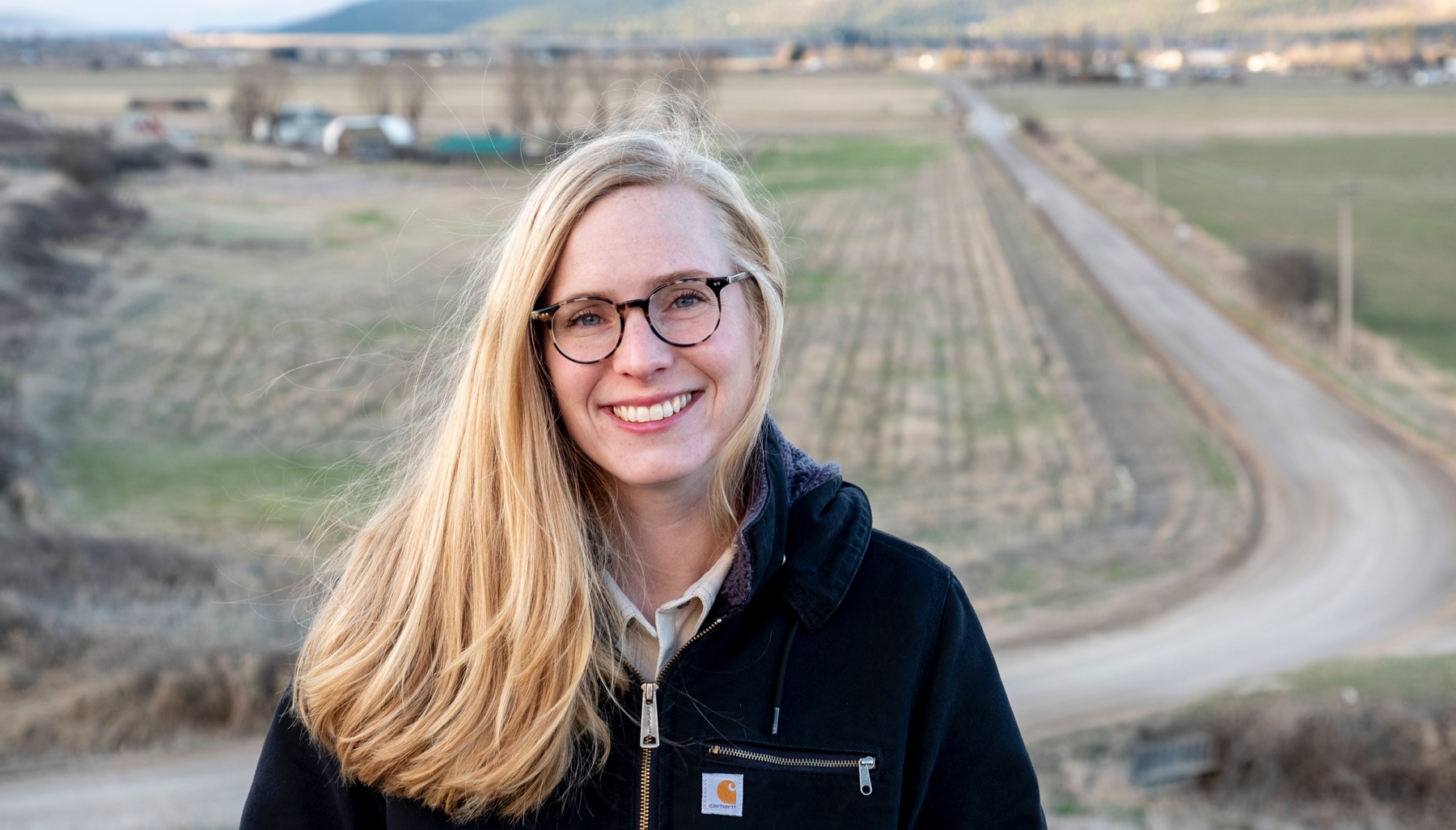
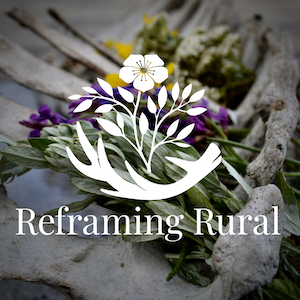
Megan Torgerson is a podcaster and the creator of Reframing Rural, a narrative podcast whose mission is to “share stories of people and places in rural America in an effort to celebrate culture, preserve history and cultivate curiosity and conversation across geographic, class and cultural divides.” In just three seasons, Megan has grown Reframing Rural from a spark of an idea into a highly regarded podcast, one that has been recognized by institutions such as the Headwaters Foundation, Montana Farmers Union, Humanities Montana, and more. Personally, I have learned a ton from Megan’s work, so it was an honor to have her join me on the podcast.
Megan was born and raised on the Great Plains of eastern Montana, primarily in the small town of Dagmar. She attended the University of Montana in Missoula and eventually made her way to graduate school in Seattle, where she earned her MFA. As you’ll hear in this conversation, during her time in grad school, Megan began exploring the idea of a podcast that focused on rural America. Rather than getting bogged down in endless planning and idea generation, she took action, produced Season 1, and put it out into the world in spring 2020. Fast forward to today, and Megan has a team that works with her, she continues to receive wide-ranging recognition, and the show is being broadcast on several Montana radio stations.
I’ve known Megan for a year or so, but this was the first time I had a chance to ask her detailed questions about her journey as a storyteller. We started out talking about her upbringing in Dagmar, as well as her educational background and early career. We discuss why she decided to create a narrative podcast, and she explains the very involved process of creating a single episode. We discuss some of the issues that she explores in Reframing Rural, including rural gentrification, which was the topic of one of her most recent episodes. We discuss her generosity in the podcast space, whether or not she considers herself a journalist, why she is optimistic about the future of rural America, some advice for aspiring podcasters, and she has lots of amazing book recommendations.
If you haven’t already, I’d encourage you to subscribe to Reframing Rural on your favorite podcast app. Megan is committed and she’s a pro, and I know that Mountain & Prairie listeners will appreciate the amazing work she’s putting into the world. Enjoy!
Photos courtesy of Megan Torgerson and Reframing Rural
LISTEN & DOWNLOAD:
Apple Podcasts
Spotify
Google Podcasts
… or wherever you get your podcasts!
—
RESOURCES:
Topics Discussed:
- 5:30 – Megan’s childhood
- 12:30 – What Megan hoped to do once she went to college in Missoula
- 15:00 – How Megan’s passions inspired hard work
- 17:15 – Why Megan started Reframing Rural
- 22:00 – Why Megan produces a narrative style podcast
- 26:00 – When did Megan plan for podcasting to become a job
- 28:30 – Megan’s experience with why podcasts generate such compelling stories and interviews
- 31:30 – Whether podcasting is a journalistic or creative endeavor for Megan, and whether she is concerned or not with “taking sides”
- 35:30 – An example of Megan’s podcast topics
- 39:30 – If Megan worries about negative feedback to her show, and how she handles it
- 44:30 – Where Megan’s generosity comes from
- 47:30 – What Megan is optimistic about regarding rural America
- 51:30 – How Megan measures success as a storyteller
- 53:30 – Other storytellers that Megan admires
- 55:15 – How to start a podcast, according to Megan
- 57:30 – How long the Dover episode took Megan to make
- 59:15 – Megan’s accolades
- 1:02:30 – Megan’s book recommendations
- 1:06:15 – Megan’s parting words of wisdom
Information Referenced:
- Reframing Rural
- Episode 1: Preservation and Motherhood on the Northern Great Plains (Kim Rudningen episode)
- Episode 5: A Snapshot of Family Farming Amid Cycles of Modernization and Migration (the episode with Megan’s family)
- “Groundwork” Episode 2: Farm Succession in Northeast Montana
- “Groundwork” Episode 3: A Conversation with Kathleen McLaughlin on Class Inequality & Cultural Extraction in a Changing Montana (an episode regarding rural gentrification)
- “Groundwork” Episode 4: Rural Gentrification in North Idaho
- Ashville, NC
- Dagmar, MT
- Williston, ND
- Sheridan county (MT)
- Medicine Lake, MT
- Saskatchewan
- Missoula, MT
- Prague
- Charles University
- Au pair
- Czechoslovakia
- Slovakia
- University of Montana
- National Outdoor Leadership School
- Big Sky Documentary Film Festival
- Seattle University
- SU Arts Leadership Program
- On Being Podcast with Krista Tippett
- The Modern West Podcast
- Decolonizing Methodologies by Linda Tuhiwai Smith
- Māori
- Quonset
- Business Impact NW
- Dover, ID
- Chloé Zhao
- Pine Ridge Reservation
- Songs My Brother Taught Me
- The Rider
- Billionaire Wilderness by Justin Farrell
- Pushed Out by Ryanne Pilgerim
- Sandpoint, ID
- Pend Oreille River
- Lake Pend Oreille
- Kalispell, MT
- Road House
- “Opinions vary” clip, Road House
- Tombstone
- Doc Holliday
- Billy Bob Thornton
- “I’m sorry I forgot you were there” clip, Tombstone
- The Rural Radio Collective
- Sunset Hill, Seattle
- Ballard, Seattle
- Red Ants Pants
- Sarah Calhoun
- Red Ants Pants Foundation
- Red Ants Pants Music Festival
- Girls Leadership Program
- Reimagining Rural, MSU Extension
- Amber Smith
- Women in Ranching
- Tara Mastel
- Pete McBride
- Headwaters Foundation
- Heartland by Sarah Smarsh
- S.G. Goodman
- Tascam field recorder
- Shure microphone
- Public Humanities Fellowship
- Butte America Radio
- Gallatin Valley Community Radio
- Missoula Community Access Television
- Humanities Montana
- Montana Farmers Union
- Braiding Sweetgrass by Robin Wall Kimmerer
- The Myth of Normal by Gabor Maté
- The Last Best Place Co-Edited by William Kitrich and Annick Smith
- Assiniboine people
- The Shepherd’s Life by James Rebanks
- English Pastoral by James Rebanks
- Dakota by Kathleen Norris
- The Hugo House
- Joe Wilkins Writing Classes at Hugo House
- Thieve by Joe Wilkins
- Killing the Murnion Dogs by Joe Wilkins
- Becoming Wise by Krista Tippett
- Sound Reporting by Jonathan
- Out on the Wire by Jessica Abel
- Jessica Abel
- Ira Glass
- On Writing Well by William Zinzer
- Writing Tools by Roy Peter Clark
- On Writing by Stephen King
- Norse Mythology by Neil Gaiman
- The Sentence by Louise Erdrich
- George Floyd
- The Overstory by Richard Powers
Enjoy this episode? Then you might like these too:
- John Branch – Seeking the Extraordinary in the Ordinary
- Shane Doyle – Reverence for the Past, Hope for the Future
- Heather Hansman, Part 2 – The Fascinating Story of Skiing’s Past, Present & Future
- Betsy Gaines Quammen – A Fascinating History of Public Lands in the West
- Pete McBride, Part 2: In Search of Silence
- Mike McTee & Vince Slabe – Win-Win Solutions in the Fight to Save Eagles
- Juanita Vero, Part 2 – A Deep Desire to Serve
- Jessica Wahl Turner – Outdoor Recreation & Rural Economies
Visit the podcast page for a full, searchable list of episodes
Bryce Andrews, Part 2 – “Holding Fire”
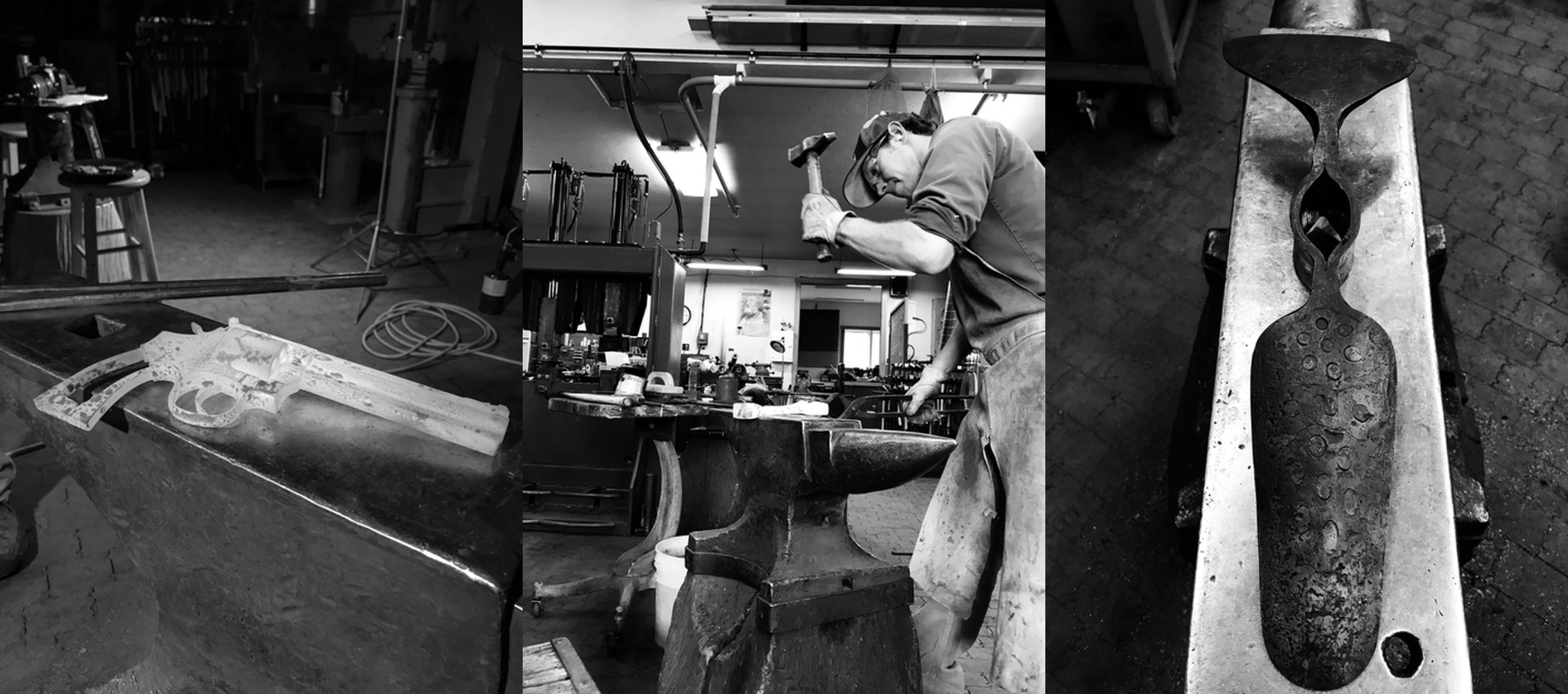
Bryce Andrews is a Montana-based rancher and writer, and he’s the author of the brand new book Holding Fire: A Reckoning with the American West. Longtime Mountain & Prairie listeners will remember my first conversation with Bryce back in 2019 when we discussed his writing, conservation work, ranching experience, and his first two books. I thoroughly enjoyed that first conversation and was so impressed with Bryce’s thoughtfulness, curiosity, and humility, so I was thrilled to have him back on the podcast to discuss Holding Fire.
Holding Fire is a thought-provoking memoir that explores Bryce’s complicated and evolving relationship with the landscape, culture, and history of the American West. Much of the story focuses on his grandfather’s Smith and Wesson revolver– a gun that he inherited and owned for many years while living and working in Montana. But despite being a committed big game hunter and owner of many guns, Bryce’s feelings toward the revolver began to change. As you’ll hear him explain, he eventually befriends a master blacksmith, learns to forge steel, and transforms the revolver from a gun into a tool that he now uses to plant trees on his property.
I loved the book, and it forced me to reexamine many of my baked-in notions about everything from the history of the West to my ideas about hunting for food, mental health, and the culture of the modern-day American West. We talked about why Bryce chose this particular topic for the subject of a book, his long-standing love of hunting, and why he decided to repurpose the revolver into a ranch tool. We discuss what he learned about craftsmanship from the blacksmith, the importance of converting guilt into action, and how fatherhood has changed his approach to life and work. We also talk about this summer’s Old Salt Festival, he and his wife’s stewardship of their ranch, and he offers up lots of excellent book recommendations.
And if you want to read and discuss a chapter of Bryce’s book for free, then download the new social reading app called Threadable. I have recently partnered with Threadable to highlight and discuss a number of readings about the history of the American West, including chapters from Sara Dant’s Losing Eden, and Roxanne Dunbar-Ortiz’s An Indigenous Peoples’ History of the United States. Threadable allows users to read portions of great books, then discuss them in a fun and interactive way. As of this recording, Threadable is only for iOS, but if you want to read a sample of Holding Fire and discuss it with the Mountain & Prairie community, follow this link to download the app (on your mobile device). I’ve really been enjoying it.
Thanks to Bryce for another wonderful conversation, and thank you for listening. Hope you enjoy.
Photos courtesy of Bryce Andrews
LISTEN & DOWNLOAD:
Apple Podcasts
Spotify
Google Podcasts
… or wherever you get your podcasts!
—
RESOURCES:
Topics Discussed:
- 3:00 – Bryce’s process for choosing the topic of Holding Fire
- 6:15 – Bryce’s father’s choices of nonviolence during the Vietnam War
- 11:30 – How guns became a part of Bryce’s life
- 13:45 – Bryce’s background in hunting
- 18:45 – Bryce’s scariest interaction with people and guns
- 21:45 – The problem with “tough guys with guns”
- 24:00 – A winter’s impact on Bryce’s thoughts regarding guns
- 29:45 – Exploring the concept of guilt
- 30:30 – Exploring the cultural significance of fire and firearms with women of the Salish and Kootenai Tribes
- 34:30 – What Bryce has done on his property since purchase
- 38:00 – How writing fits into Bryce’s busy life
- 44:45 – How having a daughter has changed Bryce’s work, writing, and life
- 48:30 – How Bryce became involved in the Old Salt Festival
- 51:30 – What Bryce learned about creativity from a metalsmith
- 54:30 – Discussing action as the antidote to despair
- 55:45 – Bryce’s book recommendations
Information Referenced:
- Holding Fire by Bryce Andrews
- Bryce Andrews
- Conscientious Objector
- The Sun Ranch
- Laurel, MT
- Ed’s Elk Hunt Episode
- Badluck Way by Bryce Andrews
- Missoula, MT
- .357 Magnum
- Dr. Katherine Hayhoe
- Germaine White
- Confederated Salish and Kootenai Tribes
- Plymouth Colony
- Rotational grazing
- Flathead Reservation
- The Memoirs of Stockholm Sven by Nathaniel Ian Miller
- Old Salt Festival
- Old Salt Co-op
- Cole Mannix
- Blackfoot Valley
- Helmville, MT
- David James Duncan
- Debra Magpie Earling
- Perma Red by Debrah Magpie Earling
- Chris Dombrowski
- Jeffrey Funk
- The New Agrarian School
- Smelting
- Salish Sea Region
- A Story as Sharp as a Knife by Robert Bringhurst
- Haida people
- The River You Touch by Chris Dombrowski
- Sun House by David James Duncan
Enjoy this episode? Then you might like these too:
- Chris Dombrowski, Part 2 – “The River You Touch”
- Cole Mannix – Building Community through Land Stewardship and Local Food
- Amber Smith – Creating Connection & Community
- Dr. Eric Arzubi – A New Approach to Solving the West’s Mental Health Crisis
- Reflections On My First Elk Hunt, with Adam Gall
- Elliott Woods – Stories from Dangerous Places
- Heather Hansman, Part 2 – The Fascinating Story of Skiing’s Past, Present & Future
- Antonia Malchik – Exploring Culture & Complexity
Visit the podcast page for a full, searchable list of episodes
Cole Mannix – Building Community through Land Stewardship and Local Food
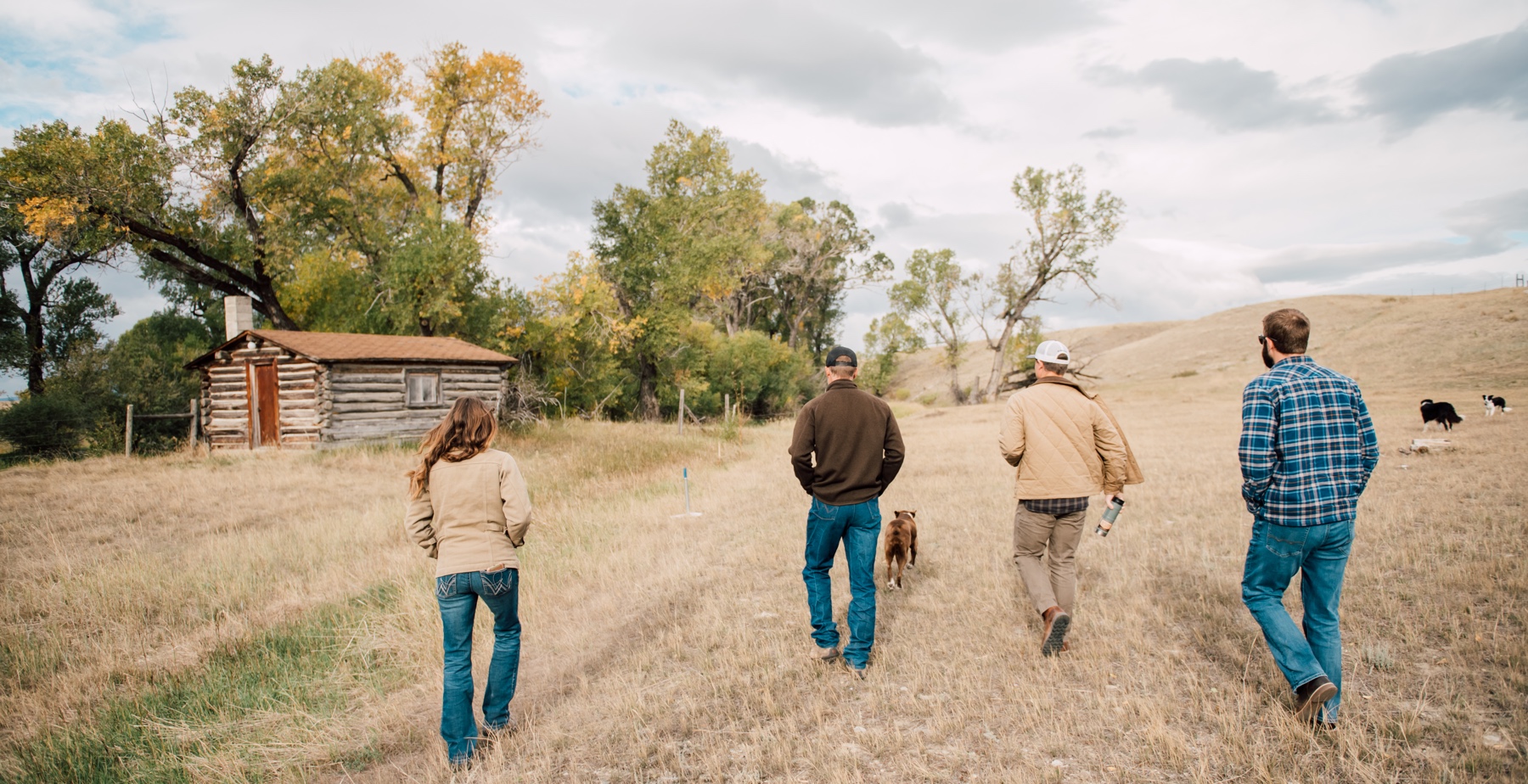
Cole Mannix is the President and Founder of the Old Salt Co-op, a new, purpose-driven company that “provides meat raised with integrity from Montana landscapes its customers know and care about.” Cole and his team partner with a growing number of Montana ranches, butchers, chefs, and businesses to connect customers and producers, while simultaneously encouraging and promoting a deeper understanding of land stewardship, community, and the interconnectedness of Montana landscapes.
Cole was born and raised in Montana, and he is a member of the fifth generation of the Mannix Family who has been stewarding their family ranch in Montana’s Blackfoot Valley since the late 1800s. Cole has followed a fascinating educational and career path, mixing his degrees in biology, philosophy, and theology with wide-ranging work in both entrepreneurial ventures and non-profit conservation work. And as you’ll hear in this conversation, the common thread that connects all of Cole’s experiences is a deep love and respect for the land and all that it can provide.
One of the most exciting projects that Cole is currently working on is the Old Salt Festival, a three-day festival taking place this June on the Mannix Ranch, just outside of Helmville, Montana. It’s much more than a music festival– it’s a celebration of land and land stewardship, and it will feature an eclectic mix of artists, authors, poets, storytellers, chefs and more. I’ll be at the event hosting some live podcast conversations, and there will be appearances by a number of past M&P guests, including singer-songwriter Riddy Arman, author-poet Chris Dombrowski, author-rancher Bryce Andrews, and more. Novelist David James Duncan will be reading, and chef Eduardo Garcia will be cooking. So we spend a lot of time discussing this event, its purpose, and how the whole idea came together.
This is a wonderful conversation about following your interests, working hard, and doing purpose-driven work that is connected to land and community. Check out the episode notes for a full list of all the topics we discussed, as well as links to the Co-op and this summer’s Festival. Thanks so much to Cole for joining me, and thanks to you for listening.
Photos courtesy of Cole Mannix and the Old Salt Co-op
LISTEN & DOWNLOAD:
Apple Podcasts
Spotify
Google Podcasts
… or wherever you get your podcasts!
—
RESOURCES:
Topics Discussed:
- 3:45 – Cole explains the Mannix family tree
- 5:45 – Cole discusses his family history
- 7:45 – Overview of the Old Salt Co-op
- 13:00 – Cole explains what motivated him to begin the Old Salt Co-op, and describes what it was like to leave a steady job to start something uncertain
- 17:45 – The value proposition that sets Old Salt Co-op apart
- 20:45 – The biggest obstacle/most important factor is for the business model of Old Salt Co-op
- 27:00 – The biggest surprises in the building of Old Salt Co-op
- 31:00 – How he stays focused and keeps track of real progress
- 33:45- The Old Salt Festival in more detail, including the musical, culinary, and land stewardship talent that will be featured
- 40:30 – Cole dives more into his career and backstory, including his interest and study in philosophy
- 45:45 – His career shift from teaching to entrepreneurship
- 53:45 – Lessons he learned from past business difficulties and how they inform his current enterprises
- 57:00 – Cole discusses what he does when he isn’t working
- 58:00 – Book recommendations
- 1:01:00 – Parting words of wisdom
Information Referenced:
- Cole Mannix
- Mannix Brothers Ranch
- Old Salt Co-op
- Old Salt Outpost
- Old Salt Festival
- Kate Mannix
- Helena, MT
- Helmville, MT
- Plant City, FL
- Sysco
- Food Services of America, Inc (owned by US Foods)
- Western Landowners Alliance
- Missoula, MT
- The Blackfoot River
- MeatEater
- This is Marketing by Seth Godin
- Austin, TX
- Portland, OR
- Build.com
- Hoodoo Mountain, MT
- Riddy Arman
- Jalan Crossland
- The River Why by David James Duncan
- The Brothers K by David James Duncan
- Debra Magpie Earling
- Jillian Lukiwski
- Cate Havstad
- Boulder, CO
- South Park, CO
- Campesinos
- Carroll College
- Ranching for Profit
- Executive Link
- Greeley, CO
- Fort Morgan, CO
- Denver, CO
- Country of Origin Labeling
- Shopify
- Horsefly, BC
- Pharis and Jason Romero
- On the Origin of Species by Charles Darwin
- Plato
- Allan Savory
- Small is Beautiful by E.F Schumacher
- Wes Jackson
- The Land Institute
- The Unsettling of America by Wendell Berry
- Jayber Crow by Wendell Berry
- Working Wilderness by Nathan Sayre
- Malpai Borderlands Group
- Blackfoot Challenge
- Jim Corbet
Enjoy this episode? Then you might like these too:
- Kate Mannix – A Legacy of Land Stewardship
- Amber Smith – Creating Connection & Community
- Riddy Arman – Artistic Authenticity
- Dr. David Hewitt – The Science of Wildlife Conservation
- Juanita Vero, Part 2 – A Deep Desire to Serve
- Daniela Ibarra-Howell – Healing the Land Holistically
- Land Tawney – Energetic & Optimistic
- Chris Dombrowski, Part 2 – “The River You Touch”
Visit the podcast page for a full, searchable list of episodes
Carlos Fernández, Part 2 – Creating Conservation Opportunities During Uncertain Times
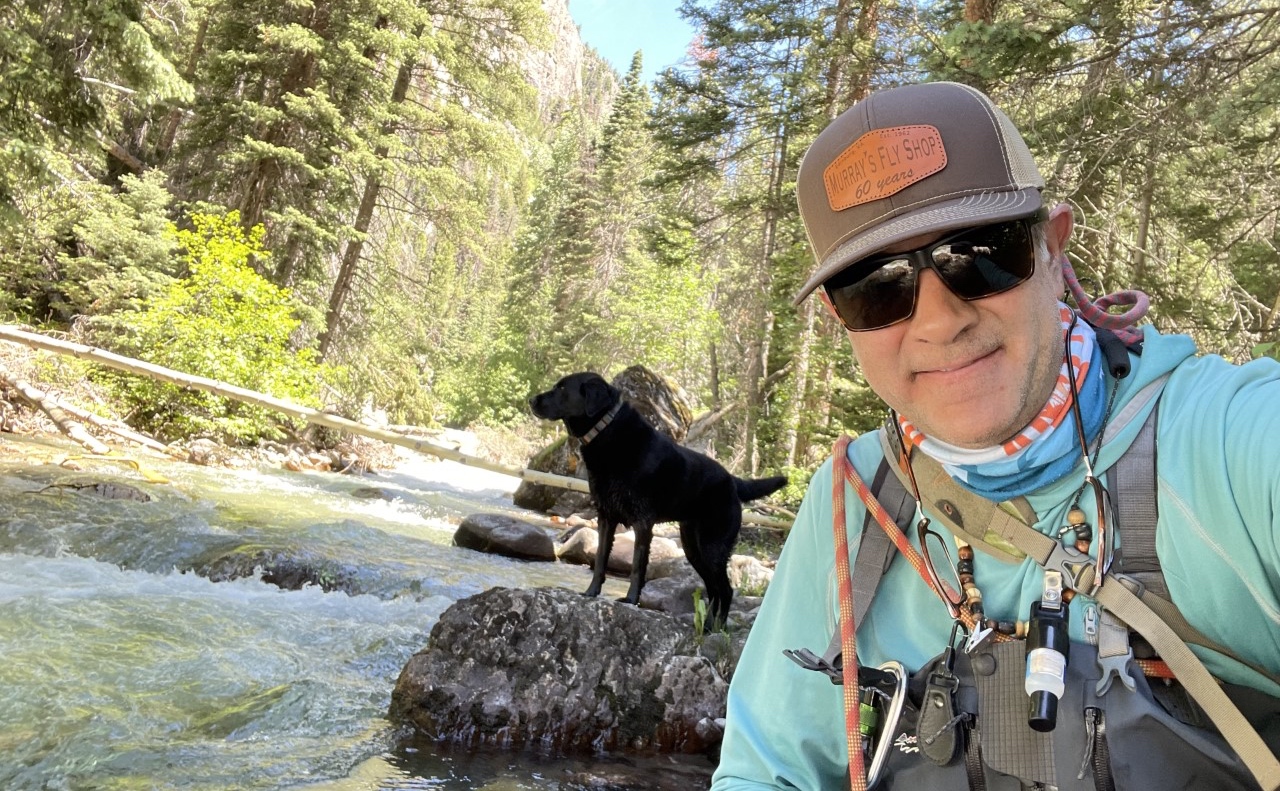
Carlos Fernandez is the Colorado State Director of The Nature Conservancy, one of the most effective conservation organizations in the American West and around the globe. You probably remember Carlos from our first conversation back in August of 2020, in which we discussed his inspiring career trajectory, the importance of collaborative conservation partnerships, and several of TNC’s cutting-edge initiatives throughout the West.
When we recorded that first episode, we were in the very early stages of the pandemic– a time marked by unprecedented uncertainty in almost every aspect of life. When we recorded today’s episode– nearly two-and-a-half years after that first conversation– the worst of the pandemic is now behind us. Carlos was able to look back on that trying period with some perspective, discussing the many challenges and opportunities that arose from such a difficult few years. This conversation is a case study of how critical work can be produced during challenging times, and how optimism, focus, and old-fashioned teamwork can lead to lasting outcomes.
Carlos and I met up at his office in Boulder and had an in-depth conversation about TNC’s conservation initiatives and collaborations over the past few years. I asked Carlos about his leadership strategies and tactics during the most intense days of the pandemic and what he and TNC learned from those challenges. We talk about Carlos’s recent 2022 year-end letter and TNC Colorado’s 2022 Year In Review, and we dig into several inspiring conservation victories from the past 12 months. We also revisit the Southern High Plains Initiative and the Yampa River Fund, and we discuss TNC’s future plans around climate change and diversity, equity, and inclusion. We also talk about this year-long partnership between TNC and Mountain & Prairie, which we are both very excited about.
A huge thank you to Carlos for taking the time to chat, and a huge thanks to all of you for listening. I hope you enjoy!
Photos courtesy of Carlos Fernández
LISTEN & DOWNLOAD:
Download on Apple Podcasts
Download on Spotify
Download on Google Podcasts
…or wherever you get your podcasts!
EPISODE PARTNER:
This episode is brought to you in partnership with the Colorado chapter of The Nature Conservancy. Guided by science and grounded by decades of collaborative partnerships, The Nature Conservancy has a long-standing legacy of achieving lasting results to create a world where nature and people thrive.
On the fourth Tuesday of every month throughout 2023, Mountain & Prairie will be delving into conversations with a wide range of The Nature Conservancy’s leaders, partners, collaborators, and stakeholders, highlighting the myriad of conservation challenges, opportunities, and solutions here in the American West. You can access all of the 2023 episodes here.
To learn more about The Nature Conservancy’s impactful work in Colorado and around the world, visit www.nature.org/colorado.
RESOURCES:
Topics Discussed:
- 3:00 – Carlos discusses the evolution of TNC Colorado during COVID
- 10:00 – Why the eastern plains and grasslands of Colorado are important and such a focus area of TNC Colorado’s work
- 12:00 – The power of partnerships in conservation work
- 14:45 – Why TNC Colorado feels it is important to focus on underserved and underrepresented groups in any work concerning climate change and conservation
- 19:30 – The importance of storytelling in conservation work
- 23:00 – How he and TNC prioritizes the focal points of their work, including who he seeks council from
- 30:45 – What he is excited about for TNC Colorado moving forward
- 33:30 – How he evaluates difficult choices and newest trends in conservation to ensure action is intentional and not controlled by external trends (not chasing every shiny object)
- 36:30 – What he thinks TNC Colorado’s role is in the state’s overall conservation sector, returning again to the importance of partnership and collaboration in this field
- 44:00 – The Yampa River Fund and updates us on its progress
- 49:45 – TNC’s relationships with businesses
- 53:00 – Advice for folks looking to work in conservation
- 56:00 – Carlos and Ed talk about the upcoming podcast series that Mountain & Prairie will be conducting with TNC Colorado
- 59:45 – Book recommendations
- 1:01:45 – Parting words of wisdom
Information Referenced:
- Carlos Fernández’s first interview – The Power of Partnerships
- The Nature Conservancy, Colorado
- Fishers Peak State Park
- Boulder, CO
- Steamboat Springs, CO
- Idaho Springs, CO
- Southern High Plains Initiative
- NRCS – Natural Resources Conservation Service
- TNC Colorado’s 2022 Year in Review
- Dust Bowl
- Colorado River Compact
- Southern Ute Indian Tribe
- Ute Mountain Ute Tribe
- Dr. Katharine Hayhoe
- RCN – Resilient and Connected Network
- Land Trust Alliance
- Great Outdoors Colorado
- Colorado Climate Plan
- Colorado Conservation, Outdoor Recreation, and Climate Resilience Planning
- Keep it Colorado
- Western Dry Forest and Fire Initiative
- Raton Pass
- Santa Fe, NM
- Trinidad, CO
- Colorado Department of Natural Resources
- Trust for Public Land
- Yampa River Fund
- Riparian area
- Yampa Valley Community Foundation
- Steamboat Ski Company
- Big Agnes
- Friends of the Yampa
- Eagle River
- San Juan River
- San Miguel River
- Telluride, CO
- Telluride Foundation
- Palmer Land Conservancy
- Colorado Outdoor Recreation Industry Office
- Smart Wool
- VF Corporation
- TNC Careers
- Next 100 Colorado
- Rick Ridgeway
- Saving Us by Catherine Heyho
- The Ministry for the Future by Kim Stanley Robinson
- Michael Bennet
- Joe Neguse
- David Gessner
- Mark Kenyon
- Steven Rinella
- Adam Gall
Enjoy this episode? Then you might like these too:
- Francesca Claverie – A Borderlands Conservation Success Story
- Nate Schweber – A Forgotten Chapter of American Conservation
- Pete McBride, Part 2: In Search of Silence
- Rick Ridgeway – Purpose-Driven Adventurer
- Land Tawney – Energetic & Optimistic
- Liz Moore – For the Love of Montana
- Kate Mannix – A Legacy of Land Stewardship
- Lesli Allison & Tuda Libby Crews – Durable Conservation in the West… and Beyond
Visit the podcast page for a full list of episodes where you can filter episodes by topic and guests’ vocations.
Christian Beamish – West Coast Craftsman

Christian Beamish is a writer, craftsman, surfboard shaper, and all-around adventurer who lives and works between Ventura and Carpinteria, California. He’s the author of one of my favorite books– The Voyage of the Cormorant– which tells his deeply personal story of building an open-hulled boat by hand and then sailing it down the Baja Peninsula alone, surfing and camping along the way. He’s also the owner of Surfboards California, where he hand-shapes a wide variety of custom boards for surfers of all skill levels.
Christian grew up in California, and for as long as he can remember, he’s been connected to the ocean and committed to building things. He’s lived an adventurous life that included a stint in the military, surf trips to the far reaches of the globe, and sailing trips up and down the Pacific Coast. And in addition to his work shaping surfboards and writing, he’s also a committed husband, father, and community member. I greatly admire how Christian manages to balance all of these sometimes-competing roles, and I gained a lot of valuable perspective from this conversation.
I met up with Christian in Carpinteria, just a few blocks from the Pacific Ocean, in a building that is home to several surfboard shapers and various creative folks. I’ve admired Christian’s writing for over a decade, so it was a dream come true to have the opportunity to spend the morning with him. We covered a ton in this hour-long conversation– his lifelong connection to the ocean and craftsmanship, lessons learned from the military, how he developed his skill for writing, his amazing book The Voyage of the Cormorant, fatherhood, dealing with intense emotions, the craft of shaping surfboards, favorite books and authors, and much more. You can check out the episode notes for a list of all the topics we discussed and links to everything.
A huge thanks to Christian for welcoming me into his shop, and thanks to all of you for listening. Hope you enjoy.
Photos courtesy of Christian Beamish
LISTEN & DOWNLOAD:
Apple Podcasts
Spotify
Google Podcasts
… or wherever you get your podcasts!
—
RESOURCES:
Topics Discussed:
- 4:00 – Christian talks about where he grew up
- 9:15 – What influenced his desire to build things
- 10:15 – Christian’s relationship with work
- 12:30 – His writing practice and talks about when writing came into his life
- 16:00 – Christian tangles with how his literary interests and writing reconcile with his service in the US Navy
- 17:15 – Overview of his book, The Voyage of the Cormorant
- 24:45 – Christian reflects on the person he was when he started the voyage that inspired his book
- 27:30 – The inner challenges he experienced during his voyage
- 31:30 – His strategies for dealing with emotional challenges
- 33:00 – How having kids has affected his life
- 38:45 – Christian describes the surfboards he designs
- 43:00 – His transition from more standard surfing to big wave surfing
- 50:45 – Christian and Ed briefly discuss skiing
- 54:30 – Book recommendations, and a discussion of his family’s history
- 1:01:00 – Parting words of advice for budding crafters and creators
Information Referenced:
- Christian Beamish
- Surfboards California
- The Voyage of the Cormorant by Christian Beamish
- Newport Beach, CA
- Orange County, CA
- Laguna Beach, CA
- Dane Kealoha
- Eddie Aikau
- Hokulea
- Seabee Battalion
- Gulfport, MS
- New Orleans, LA
- Cape Verde Islands
- Philippines
- Guam
- Pipe Masters
- Cabo San Lucas
- Baja
- Patagonia Books
- Ernest Hemingway
- Jack Kerouac
- Joan Didion
- The High Sierras
- Desolation Angels by Jack Kerouac
- Pigeon Point Lighthouse
- Halfmoon Bay
- Latin-rig boats
- Shetland
- The Surfer’s Journal
- Sabot
- Laser
- Tiller
- Balanced Lug Sail
- Back to the Future Part II
- Kelly Slater
- Ventura, CA
- Logan Hagege
- Concave bottom surfboards
- Duke Kahanamoku
- Heʻe Nalu
- Mavericks, CA
- Todos Santos
- UC Santa Cruz
- North Coast, CA
- McCoy Surf Designs, Greg Pautsch
- Greg Liddle
- Pintail surfboards
- Channel bottom
- Clinker boat building
- Danny Hess
- Cornice (snow)
- Santa Fe Ski Basin
- Concept of Aloha
- UC Santa Barbara
- Ireland Since the Famine by F.S. Lyons
- Skibbereen, Ireland
- County Cork
- Taranaki, NZ
- Irish Potato Famine
- Cape Fear River
- Patea, NZ
- The Royal Irish Armed Constabulary
- Ngāti Ruanui
- Iwi
- Hughes Aircraft
- The Life of Johnson by James Boswell
Enjoy this episode? Then you might like these too:
- Logan Maxwell Hagege – Artistic Evolution
- Jessica Lewis – Doing More With Less
- Peter Heller – Chasing the Flow
- Chris Burkard, Part 2 – Seeking Beauty Through Adventure
- Alvin Dedeaux – Living His Dream
- Frances Ashforth – Art, Water, and Wide-Open Spaces
- Chris Dombrowski, Part 2 – “The River You Touch”
- Steve Casimiro – Voice of Adventure
Visit the podcast page for a full, searchable list of episodes
Jess Mudgett – Humble & Grateful
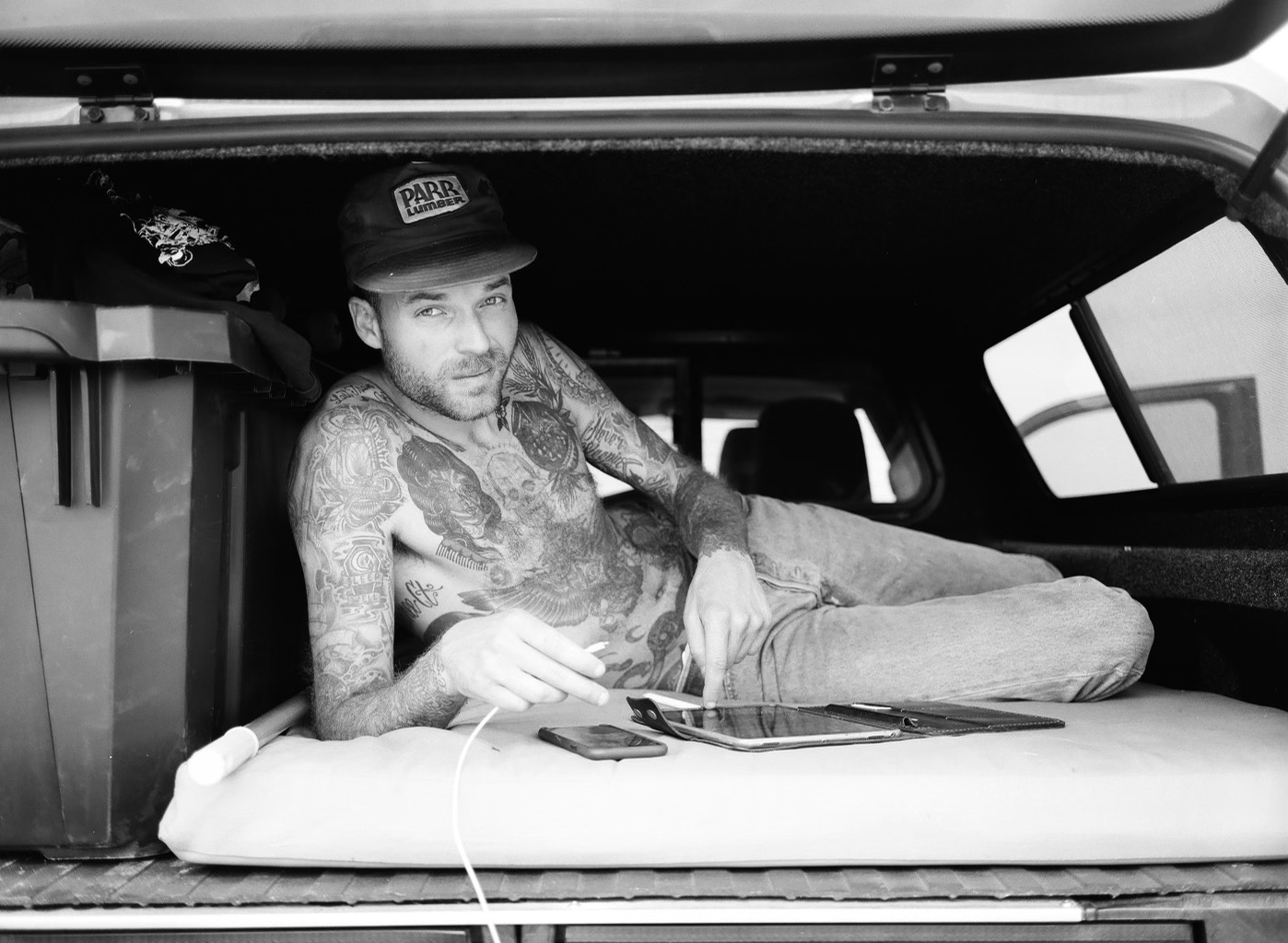
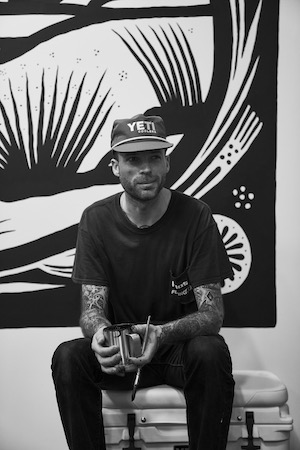
(photo credit: Dylan Schmitz)
Jess Mudgett is an artist, skater, surfer, and occasional ranch hand who specializes in one-of-a-kind designs that appear everywhere from murals in the rural West to the Yeti offices in downtown Austin. Fans of Jess’s work can spot his art from a mile away– he’s known for bold, often-times big portrayals of western landscapes, horses, birds, people, and more, all presented in a style that is uniquely his own. If you’re not familiar with Jess’s art, I’d encourage you to visit his Instagram page while listening– here’s a link.
Jess was raised in Fort Collins, Colorado, and grew up obsessed with and fully committed to skateboarding. While attending art school in Portland, he dropped out to go on a professionally funded skate trip, which ultimately led to getting his foot in the door with the art department of a skate company. After a few years, Jess returned to school to earn his degree, and his path as a professional artist was set. Currently, Jess is based in Portland, but spends big portions of the year traveling the West in his truck, creating art for a wide variety of well-known companies and individuals.
Jess and I met up at my house in Colorado Springs and had a fun conversation about his life as an artist. We started out discussing his upbringing in Fort Collins and how skating and art became the focus of his life. We discuss his creative process, his partnerships with popular brands, and his relationship with the renowned photographer (and past podcast guest) Chris Burkard. Jess describes his time working on Mark Carter’s Wyoming ranch, his lifestyle of living on the road, how he pushes through self-doubt, his love of tattoos, and some of the artists who have inspired him over the years. And what I loved most about this conversation was Jess’s overall vibe of deep gratitude and true humility– I think you’ll be inspired by his approach to life and art.
And as a surprise, Jess created a special Mountain & Prairie design that I know you’ll love– I sure do. I’m going to be offering this design on special edition t-shirts, stickers, and coffee mugs in the Mountain & Prairie shop. It’s an awesome design, and I’m honored that Jess took the time to create such a unique piece just for Mountain & Prairie listeners.
Once again, thanks for taking the time to listen. I hope you enjoy this conversation with the great Jess Mudgett.
Header photo by Mark Welsh, photo of Jess by Dylan Schmitz
LISTEN & DOWNLOAD:
Apple Podcasts
Spotify
Google Podcasts
… or wherever you get your podcasts!
—
RESOURCES:
Topics Discussed:
- 4:10 – Jess discusses growing up and the role his parents played in his childhood
- 6:00 – Jess talks about how skateboarding became a part of his life and art
- 7:15 – Jess discusses the next step in his life after high school: going to art school
- 13:45 – Jess and Ed talk about surfing
- 16:30 – Jess discusses his life after art school, including how he worked his way into NHS skate company
- 23:30 – Jess talks about his current lifestyle, including living out of his truck
- 26:45 – Jess discusses his stint working on a ranch at the beginning of COVID, as well as how it changed him
- 31:15 – Jess talks about how he manages his creative time
- 35:30 – Jess discusses his relationship with Chris Burkard, as well as why he thinks Chris has been so successful
- 41:45 – Jess talks about tattoos becoming a part of his life
- 43:45 – Jess describes his art as he sees it today
- 44:30 – Jess talks about the artists who inspire him
- 47:15 – Jess discusses self-criticism in his work
- 47:45 – Jess talks about how his relationship with Yeti began
- 51:00 – Jess talks about the times in his artistic career where he has felt like quitting
- 53:45 – Jess’s advice for your creatives
- 58:45 – Jess’s book recommendations
- 1:00:30 – Jess’s parting words of wisdom
Information Referenced:
- Jess Mudgett
- Fort Collins, CO
- Laramie, WY
- Charles Russell
- Jeremy Fish
- Shepard Fairey
- The Huberman Lab podcast
- Jocko Podcast
- NHS Inc.
- Geoff Rowley
- Rick Wittenbraker
- Mark Welsh
- Mark Carter
- Video of painting the abandoned building
- Monster Children
- Ten Sleep, WY
- Christian Beamish
- Callan Wink
- Ranchlands
- Chris Burkard
- Pismo Beach, CA
- Smith Optics
- Mark Maggiori
- Mike Giant
- Yeti
- Being Nixon by Evan Thomas
- Lonesome Dove by Larry McMurtry
- Blood and Thunder by Hampton Sides
- Blood Meridian by Cormac McCarthy
- The Alchemist by Paulo Coehlo
- Edward Abbey
Enjoy this episode? Then you might like these too:
- Chris Burkard, Part 2 – Seeking Beauty Through Adventure
- Pete McBride, Part 2: In Search of Silence
- Alvin Dedeaux – Living His Dream
- Riddy Arman – Artistic Authenticity
- Luke Smithwick – A Life in High Places
- Nicole Morgenthau – Curiosity & Creativity
- Jason Gardner – A Life of Purpose & Service
- Kelsey Johnson – Chasing Her Artistic Ambitions
- Iris Gardner – Living with Intention
- Kate Kavanaugh – Regeneration & Restoration
Visit the podcast page for a full, searchable list of episodes
BONUS EPISODE: Kate Matheson & The Ranchlands Podcast
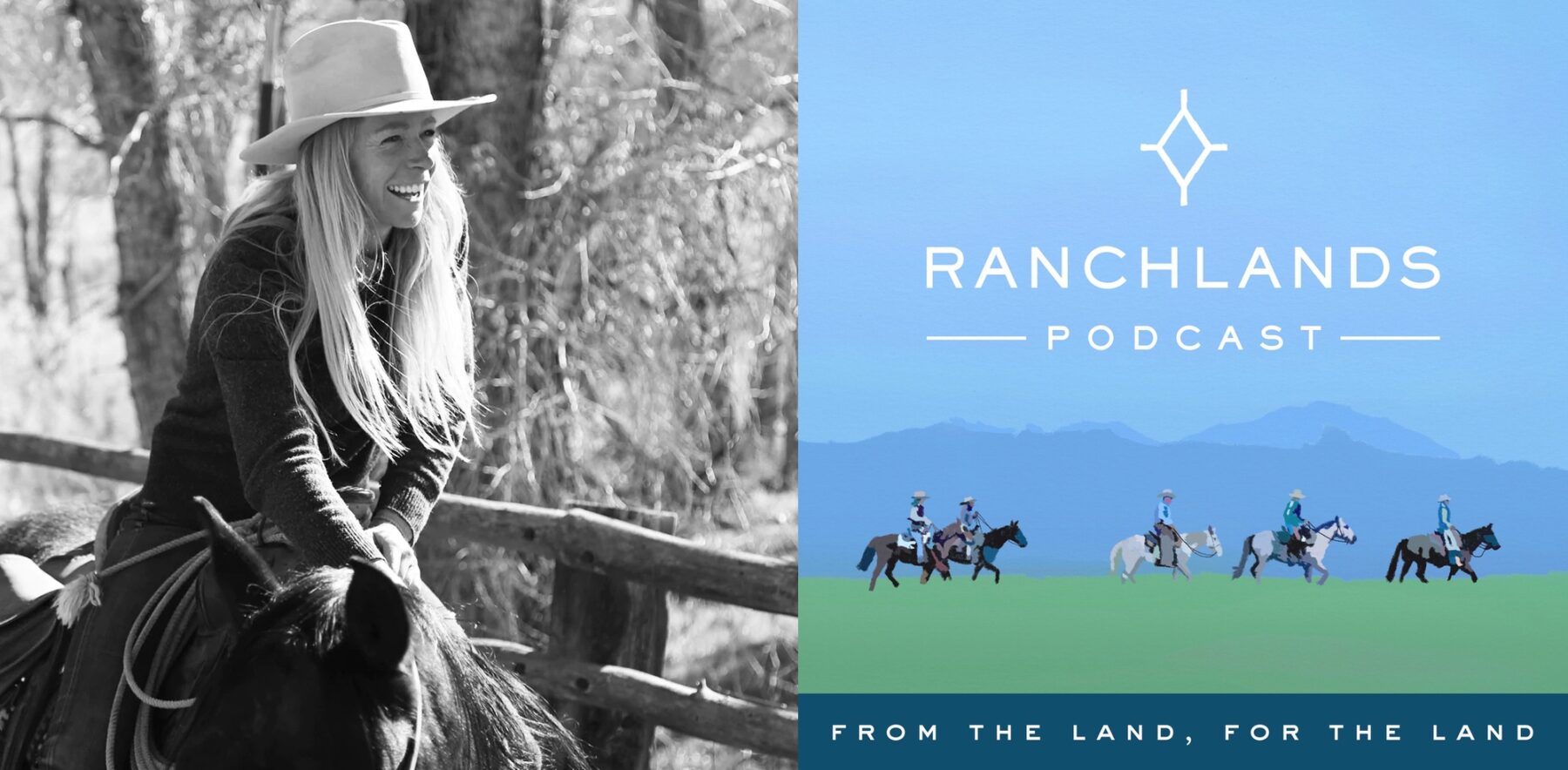
If you’re a Mountain & Prairie Patreon supporter, then you probably already know that I recently began hosting another podcast for my friends at Ranchlands. It’s called the Ranchlands Podcast, and it features conversations with members of the Ranchlands community. As of today, we’re about ten episodes in, and we feel very grateful that the podcast has been well-received and shared widely.
For those of you who have not listened to it, I wanted to share one episode here on Mountain & Prairie. This one features my conversation with Kate Matheson, who is the ranch manager of the Zapata Ranch located in Colorado’s San Luis Valley. Kate was born and raised in England and enjoyed a successful career in publishing and fashion before picking up and heading to the American West. It’s a cool story.
This was a fun, inspiring conversation that I know will resonate with Mountain & Prairie listeners. If you want to listen to more of the Ranchlands Podcast, you can subscribe to it using the link in the notes or wherever you get your podcasts.
And if you want to hang out with Kate and me at the Zapata Ranch this upcoming summer, I encourage you to check out my second annual Strenuous Life Retreat, which takes place in August of 2023. It’s five full days of adventure, learning, conversation, and camaraderie, all in the spirit of Theodore Roosevelt’s commitment to living the Strenuous Life.
The 2022 retreat was a huge success: We hiked high into the Sangre de Cristo Range, rode horses in Great Sand Dunes National Park and alongside bison and elk on the Medano Ranch. We had discussions about conservation and regenerative agriculture with expert guests, we started each day with strenuous exercise and ended each day with top-notch dinners and a campfire.
The retreat is a one-of-a-kind opportunity to spend five days with a like-minded crew, immersed in one of the West’s most spectacular landscapes, pushing yourself hard both physically and intellectually.
But without further delay, here’s episode nine of the Ranchlands Podcast, featuring the amazing Kate Matheson.
Photos courtesy of Ranchlands
LISTEN & DOWNLOAD:
Apple Podcasts
Spotify
Google Podcasts
… or wherever you get your podcasts!
—
RESOURCES:
Topics Discussed:
- 4:20 – Kate’s history with horses
- 10:00 – School and career post-high school
- 14:40 – Breaking into the magazine business
- 20:45 – Kate’s impression of the US before moving here
- 22:45 – Moving to Montana
- 28:00 – How did Montana change Kate?
- 32:40 – Quitting her job and moving back to Montana
- 36:00 – Meeting the Phillips family
- 41:54 – Beginning work at Ranchlands
- 44:15 – How Kate combines her passions with her career
- 50:00 – Life-changing experiences at Zapata
- 54:20 – Why should city dwellers care about the land
- 55:25 – Misconceptions about ranching
- 56:45 – Resources
- 57:40 – Sources of hope
Information Referenced:
- Mojo Magazine
- Bliss Magazine
- Glamour Magazine
- Billings, MT
- Chico Basin Ranch
- Zapata Ranch
- For the Love of Soil by Nicole Masters
- Sacred Cow by Diane Rodgers
Live with the Cowboy Artists of America
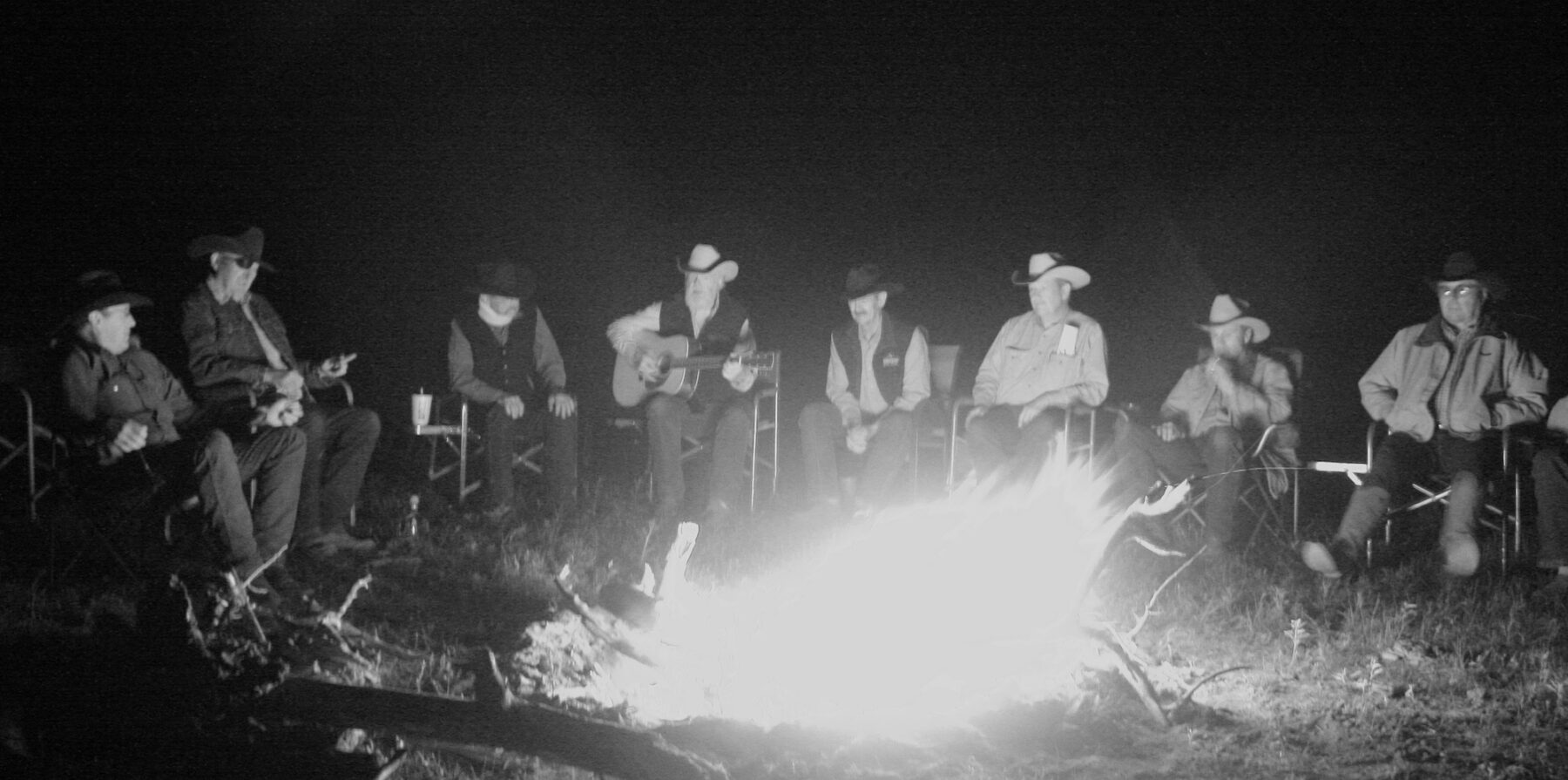
This is a special episode that was recorded live in Fort Worth, Texas as part of the Cowboy Artists of America’s 56th annual exhibition and sale. The show was called “Stories From Around the Campfire,” and it was held at the world-renowned Amon Carter Musem of American Art. I was joined on stage by seven influential members CAA community, and we had a panel discussion about the rich history and bright future of the organization. As you’ll hear, the event was partly an in-depth, educational discussion about the history of the CAA and western art markets, with the other part being hilarious stories from the organization’s past 56 years.
This event was the brainchild of CAA member and my good friend Teal Blake, who joined me on the podcast several years ago. Sitting on stage with me for the event were Fred Fellows, Jody Beeler, Bill Nebeker, Seth Hopkins, Tim Newton, Red Steagall, and Bruce Greene, all of whom are legends in the western art world– you can read more about all of them using the links below. Each of these gentlemen brought a unique perspective and distinct experiences to the conversation. But across the board, they all share a deep love of the West, authentic artistic humility, and unwavering respect for the legacy of the CAA.
This conversation winds in and out of many fascinating (and sometimes hilarious) topics. We had great discussions about the creative process, the idea of fully committing to the life of an artist, and how mentorship plays a huge role in the artist’s journey. We discussed the CAA’s unprecedented longevity in the art world, and how the group’s annual trail ride plays an important role in building friendships and strong bonds between the artists. We talk about how the CAA selects new members, and how the organization has evolved artistically over the decades. There is no lack of sense of humor among these guys, so they share plenty of crazy stories about the pranks and practical jokes that they’ve played on each other over the past 56 years. You can hear from the audience’s laughter that everyone in the auditorium was having a great time.
I was honored to share a stage with these seven men, and I greatly appreciate Teal inviting me to be a part of such a special few days. Hope you enjoy!
Photos courtesy of the Cowboy Artists of America
LISTEN & DOWNLOAD:
Apple Podcasts
Spotify
Google Podcasts
Overcast
… or wherever you get your podcasts!
—
RESOURCES:
Topics Discussed:
- 2:40 – Intro
- 4:55 – Fred Fellows’ journey from Northrop Aircraft to professional artist
- 13:20 – Jody talks about Joe Beelor’s focus and work ethic
- 15:40 Bill Nebeker tells one of his world-famous jokes
- 18:40 – Bill discusses mentorship and art education for the next generation
- 25:40 – Seth Hopkins discusses the CAA’s longevity in the art world
- 28:10 – Tim Newton discusses how the CA began his journey in the art world
- 33:10 – Red Stegall talks about his deep respect for the CAA
- 38:40 – Bruce Greene discusses the balance of being an individual with being a member of a brotherhood of artists
- 46:25 – Fred discusses the CA trail ride
- 49:40 – Crazy pranks and funny stories from the trail ride
- 1:00:40 – What are the criteria for joining the CAA?
- 1:05:55 – What does the future of the CAA look like?
- 1:07:40 – Early days of selling western art, before there was a robust western art market
- 1:10:40 – How does CA pick trail ride locations
- 1:12:55 – How the CA built the western art market
- 1:16:10 – How the CA thinks about finding new artists in the future
Information Referenced:
- Cowboy Artists of America
- 56th Annual Exhibition and Sale
- Teal Blake
- Fred Fellows
- Jody Beeler
- Bill Nebeker
- Seth Hopkins
- Tim Newton
- Red Steagall
- Bruce Greene
- All CAA active members
- All CAA emeritus members
- Western Horseman
- Booth Museum
- Taos Society
- Tribe by Sebastian Junger
- Joe Beeler Foundation
Enjoy this episode? Then you might like these too:
- Teal Blake – On Being Authentic & Original
- Duke Beardsley – Art in the Big, Bold American West
- Mark Maggiori – A Fresh View of the American West
- Jason Rich – The Humility and Hard Work of Creativity
- Daniel Vergés – The Pursuit of Simplicity in Art & Life
- Melissa DiNino – Building a Unique Life in Big Sky Country
- Jessica Lewis – Doing More With Less
- Morgan Irons – Finding Her Muse
- Chris Douglas – An Unexpected Artistic Journey
- Kelsey Johnson – Chasing Her Artistic Ambitions
- Frances Ashforth – Art, Water, and Wide-Open Spaces
- Live from Maxwell Alexander Gallery
Visit the podcast page for a full list of episodes that can be sorted by topic.
Chris Dombrowski, Part 2 – “The River You Touch”
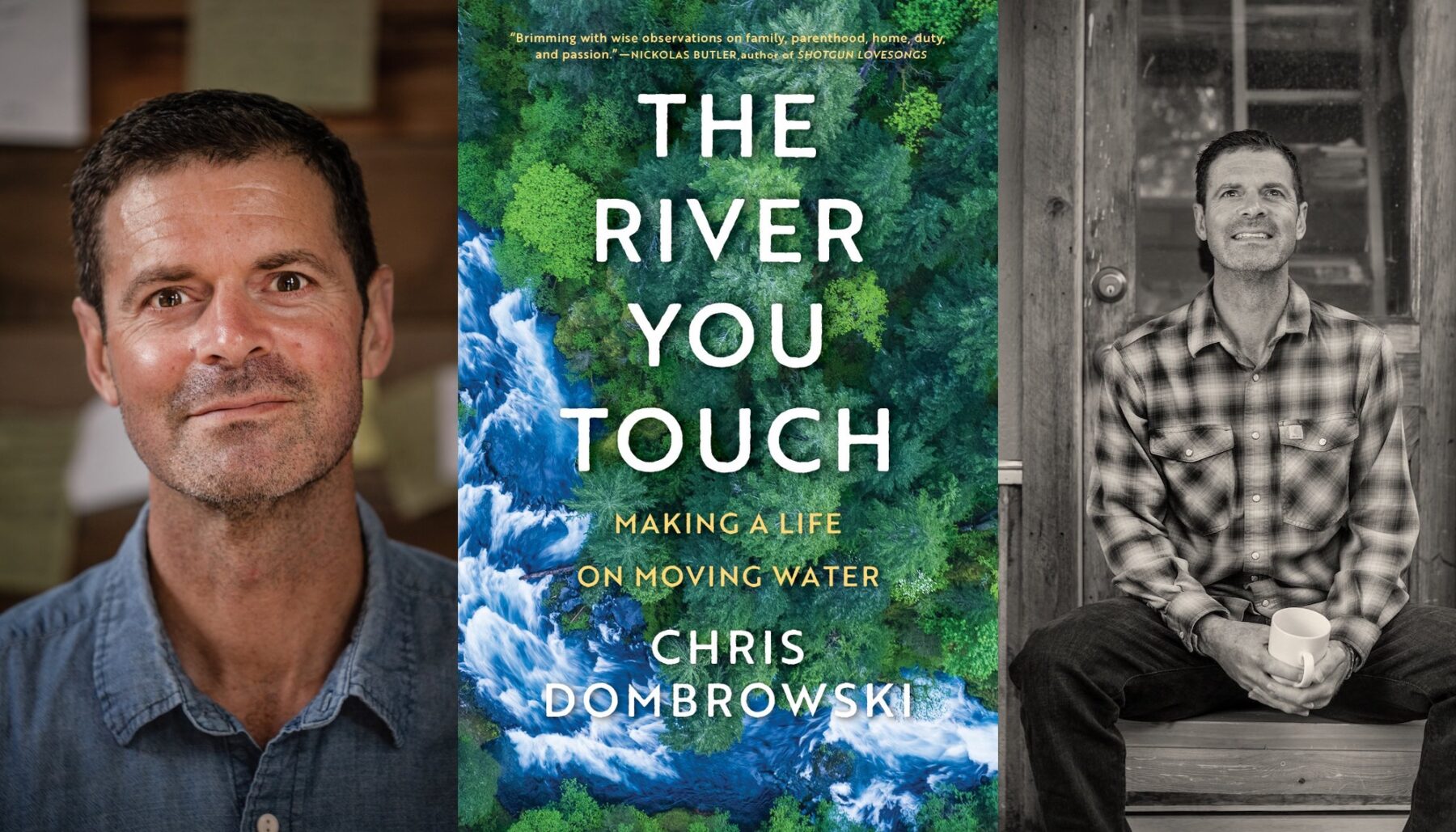
Chris Dombrowski is a Missoula-based writer, poet, teacher, and fishing guide, and he’s also the author of the excellent new book The River You Touch: Making a Life on Moving Water. If you’re a longtime Mountain & Prairie listener, you probably remember Chris’s first appearance on the podcast in which we discussed his first book Body of Water and his poetry collection, Ragged Anthem. Since that first conversation, Chris has become a great friend, sounding board, and supporter, and his generous spirit and creative commitment continue to be a huge source of inspiration for everything I’m trying to do here at Mountain & Prairie.
Like me, Chris is not originally from the West, but since moving here, he has built a meaningful, purpose-driven life that is deeply connected to the region’s rugged land and powerful rivers. Whether guiding fishing clients on the Big Hole, foraging food with his family, or hunting birds with his dog Zeke, the West’s wild places are a cornerstone of Chris’s life– professionally, personally, and spiritually. His new book The River You Touch offers rich insights into his journey from his home state of Michigan to his now-home of Montana, as well as his personal evolution as a husband, father, friend, and community member. Beautifully written, surprisingly vulnerable, and extremely inspiring, The River You Touch is one of the best books I’ve read this year.
Chris and I connected virtually and had a fun conversation about the book, fatherhood, adventure, writing, and much more. We started by discussing how The River You Touch came to be, which has an interesting connection to our first podcast conversation. We talk about his process of combining poetic prose with non-fiction narrative, as well as his desire to explore ideas around masculinity and vulnerability. We talk a lot about Jim Harrison– their friendship, Harrison’s genius, and his other-worldly work ethic. We discuss family, the blessing of having strong and tough wives, advice for aspiring writers, and more good book recommendations. Enjoy!
Photos by (past podcast guest) Erik Petersen
LISTEN & DOWNLOAD:
Apple Podcasts
Spotify
Google Podcasts
Overcast
… or wherever you get your podcasts!
—
RESOURCES:
Topics Discussed:
- 3:15 – Chris talks about how he came upon the idea that became his most recent book, The River You Touch
- 8:30 – Chris discusses his motivations for writing
- 14:30 – Chris talks about his writing process for The River Your Touch
- 20:30 – Chris discusses being vulnerable in his writing
- 30:30 – Chris talks about the need for more writing that discusses masculinity and vulnerability
- 34:45 – Chris discusses his relationship with Jim Harrison and how he operated with such a work hard, play hard mentality
- 42:15 – Chris explains the advice he received from Jim Harrison: “Don’t let your life become the sloppy leftovers of your work.”
- 45:45 – Chris reads a section from The River You Touch
- 48:30 – Chris discusses his thinking regarding having children and their environmental impact
- 51:45 – Chris talks about his wife and continuing his writing career after having children
- 54:15 – Chris discusses how he advises students who may not want to write as much as they think they do
- 1:00:15 – Chris talks about his audiobook narrator for The River You Touch
- 1:04:00 – Chris’s book recommendations
Information Referenced:
- The River Your Touch by Chris Dombrowski
- Body of Water by Chris Dombrowski
- Jeffery Foucault
- Upper Big Hole River
- Montana Arctic Grayling
- Draft No. 4 by John McPhee
- Salish peoples
- Bill Bryson
- Jim Harrison
- Boys and Oil: Growing up Gay in a Fractured Land by Taylor Brorby
- Sergei Yesenin
- Raymond Carver
- Richard Ford
- Tobias Wolff
- Dirty Realism
- John Updike
- Mile Marker Zero by William McKeen
- Thomas McGuane
- Jimmy Buffett
- Hunter S. Thompson
- Juanita Vero
- Chandra Brown
- Freeflow Institute
- Jonathan Franzen
- Lois Welch
- Norman McLean
- David Gessner
- Taj Mahal
- Nick Adams Stories by Ernest Hemingway
- The Sun Also Rises by Ernest Hemingway
- Milkweed Editions
- Mary Austin Speaker
- Tecovas
- Nickolas Butler
- Adam Gall
- One Long River of Song by Brian Doyle
- Believers by Lisa Wells
- Perma Red by Debra Magpie Earling
- The Lost Journals of Sacajewea by Debra Magpie Earling
- Fools Crow by James Welch
Enjoy this episode? Then you might like these too:
- Dylan Tomine – Protecting What He Loves
- Peter Stark – Tales of Adventure, Exploration, & Epic Battles
- Antonia Malchik – Exploring Culture & Complexity
- Nickolas Butler – The Craft of Creativity
- Peter Heller – Chasing the Flow
- Hal Herring – A Man of Words & Wild Places
- Monte Burke – Exploring Obsession
- Juanita Vero, Part 2 – A Deep Desire to Serve
- Malcolm Brooks – Epic Tales from the American West
- Mike Foote – Perfection is in the Process
- Brendan Leonard, Part 2 – On Running, Creating, and Other Irrational Passions
- Chris La Tray – Rediscovering His Past, Writing His Future
Visit the podcast page for a full list of episodes where
Douglas Brinkley – Exploring the Past to Find Inspiration for the Future
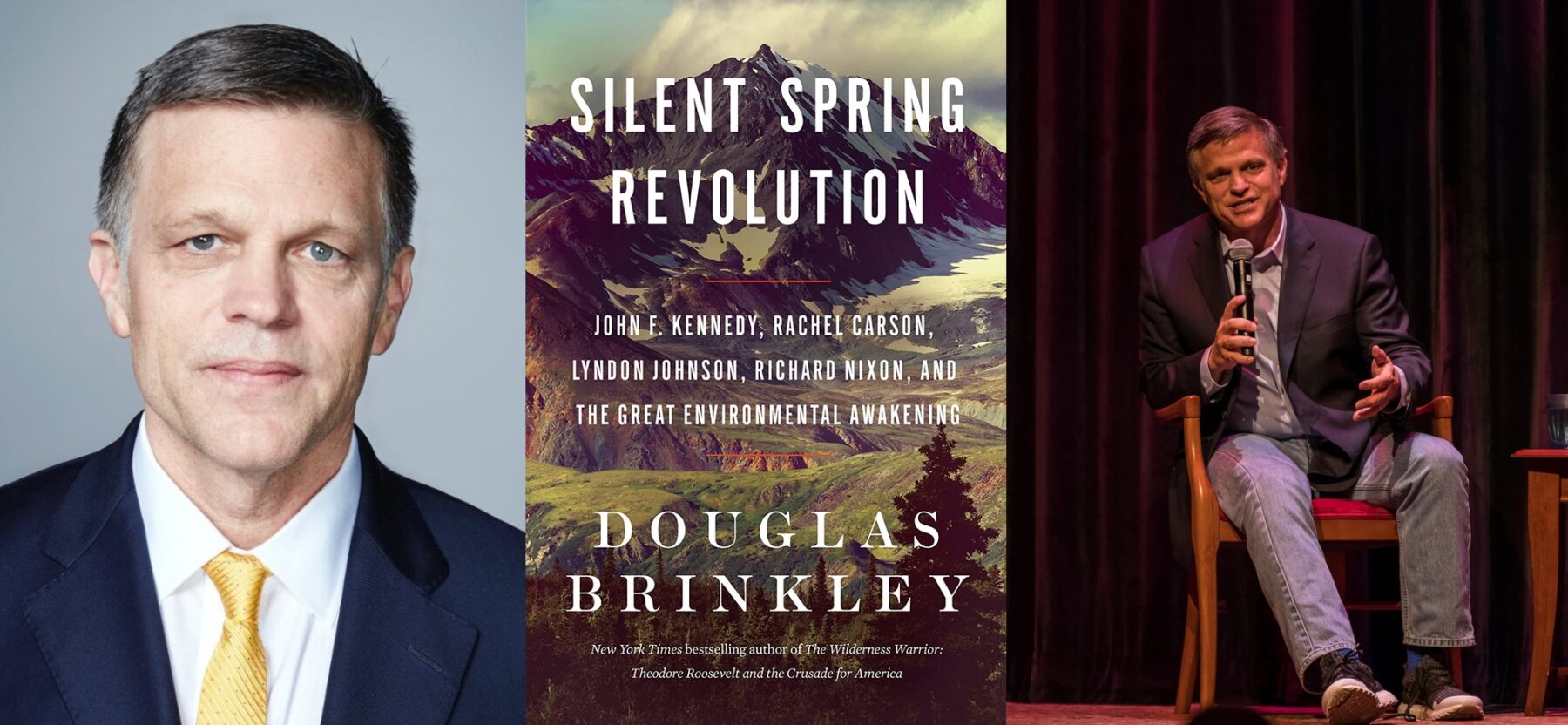
Douglas Brinkley is a world-renowned historian, author, and professor who may be best known to Mountain & Prairie listeners as the author of The Wilderness Warrior: Theodore Roosevelt and the Crusade for America and Rightful Heritage: Franklin D. Roosevelt and the Land of America, which detailed the first two waves of the United States’ conservation movement. His most recent book is Silent Spring Revolution: John F. Kennedy, Rachel Carson, Lyndon Johnson, Richard Nixon, and the Great Environmental Awakening, which delves into the third wave of conservation and the rise of the modern environmental movement. I was lucky enough to read an advanced copy of Silent Spring Revolution, and I highly recommend it.
Doug was raised in Ohio and from an early age, his parents instilled in him and deep love and respect for wild places, national parks, and the rich history of conservation in the United States. After earning his M.A. and Ph.D. from Georgetown University, Doug began his career as a professor and historian, and he went on to teach at numerous prestigious institutions, including the US Naval Academy, Princeton, Hofstra, Tulane, and, most recently, Rice University. The prolific nature of Doug’s writing life is hard to comprehend– he’s written extensively about everyone from TR to FDR, JFK to Rosa Parks, and about places ranging from the Alaskan Wilderness to the moon. He’s the literary executor of Hunter S. Thompson’s estate and has edited the diaries of Jack Kerouac for two separate books. He’s also served on the boards of numerous conservation organizations and has won awards for his contributions to the conservation movement. And those accomplishments just scratch the surface of his career…
Doug has been a long-time literary hero of mine, and I credit The Wilderness Warrior with fueling my obsession with TR and inspiring me to move out of the real estate business and into land and water conservation work. So when I had the opportunity to join Doug at his home in Austin for a conversation about Silent Spring Revolution, I didn’t hesitate to jump on a plane to Texas. We had a wonderful, wide-ranging conversation about the book, exploring everything from the life and work of Rachel Carson to the TR-like qualities of Supreme Court Justice William O. Douglas to the environmental legacies of JFK, LBJ, and Nixon. We also talk about Doug’s longstanding personal connection to conservation and how a deep love of teaching is at the core of all of his work. Doug also talks about the roles that art and music play in his life, what gives him hope for the future, and much more. The episode notes are jam-packed with everything we discussed, so be sure to visit the episode webpage for copious resources and links.
Again, I highly recommend Silent Spring Revolution, but really, I highly recommend all of Doug’s work. I greatly appreciate Doug welcoming me into his home and taking the time to chat, I hope you enjoy both this conversation and Silent Spring Revolution as much as I did.
All photos courtesy of Douglas Brinkley
LISTEN & DOWNLOAD:
Apple Podcasts
Spotify
Google Podcasts
Overcast
… or wherever you get your podcasts!
—
RESOURCES:
Topics Discussed:
- 5:30 – Doug walks us through a brief history of American conservation, as well as his love for Thoreau
- 9:00 – JFK’s connection to the ocean and how it influenced his conservation ethic
- 15:30 – Wiliam O’Douglas’s impact on American conservation
- 20:00 – How Rachel Carson’s work ended up connecting her to JFK
- 31:30 – The bond that developed between Rachel Carson and JFK
- 34:30 – The Nixon legacy in American Conservation
- 41:45 – Sewage treatment and its unexpected contribution to the environmental movement
- 45:00 – The formation of the Endangered Species Act
- 46:00 – Doug talks about how he writes, his relationship with teaching, and his National Park travels
- 52:00 – Doug discusses the more art-focused parts of his life
- 56:20 – Doug talks about what gives him hope despite climate change
Information Referenced:
- Silent Spring Revolution by Douglas Brinkley
- Henry David Thoreau
- The Wilderness Warrior by Douglas Brinkley
- John Muir
- Gifford Pinchot
- National Wildlife Refuge System
- Franklin Delano Roosevelt
- Civilian Conservation Corps
- Dust Bowl
- Rachel Carson
- Silent Spring by Rachel Carson
- John F. Kennedy
- Lyndon B. Johnson
- Richard Nixon
- Cape Cod by Henry David Thoreau
- Rose Kennedy
- Brookline, MA
- Walden Pond
- Concord, MA
- Cape Cod, MA
- Hyannis Port, MA
- William O. Douglas
- Provincetown, MA
- Wellfleet, MA
- Truro, MA
- Cape Cod National Seashore
- Padre Island National Seashore
- Point Reyes National Seashore
- Muir Woods National Monument
- Cape Lookout National Seashore
- Assateague Island National Seashore
- Fire Island National Seashore
- Cumberland Island National Seashore
- Apostle Island National Lakeshore
- Sleeping Bear Dunes National Lakeshore
- Indiana Dunes National Park
- Marin County, CA
- Ralph Yarborough, D-TX
- Yakima, WA
- Mt. Adams
- Mt. Baker
- Whitman College
- Columbia University
- Princeton University
- Joseph Kennedy
- C&O Canal
- Cumberland, MD
- Olympics Range
- Buffalo River, AR
- Red River Gorge
- Wendell Berry
- My Wilderness: East to Katahdin by William O’Douglas
- My Wilderness: The Pacific West by William O’Douglas
- Environmental Protection Agency
- Audubon Society
- Isaak Walton League
- Trout Unlimited
- Eric Sevareid
- Springdale, PA
- Allegheny River
- Howard Zahniser
- The Wilderness Society
- Harold L. Ickes
- Edward Abbey
- Clarion River
- Chapman University
- Johns Hopkins University
- Woods Hole, MA
- Baltimore Sun
- US Fish and Wildlife Service
- American shad
- “Conservation in Action” booklets by Rachel Carson
- Works Progress Administration guides
- Library of America
- Jacques Gusteau
- Jean Kennedy Smith
- Anne Morrow Lindbergh
- Sanibel Island, FL
- DDT
- Patuxent Wildlife Center
- Malaria
- Reader’s Digest
- Jimmy Carter
- Plains, GA
- Sumter County, GA
- Marjorie Spock
- Long Island, NY
- United States Department of Agriculture
- Benjamin Spock
- The New Yorker
- Common Sense by Thomas Payne
- Uncle Tom’s Cabin by Harriot Beecher Stowe
- The Jungle by Upton Sinclair
- William Ruckelshaus
- Environmental Defense Fund
- National Environmental Policy Act
- Environmental Impact Statement
- National Democratic Institute Advisory Councils
- Jackie Kennedy
- Eleanor Roosevelt
- Robert F. Kennedy
- Hickory Hill
- Addison’s Disease
- Stewart Udall
- Frank Church
- Ed Muskie
- Wilderness Act
- Wild and Scenic Rivers Act
- Endangered Species Act
- Key Deer
- Black-footed Ferret
- Everglades
- Florida Panther
- Manatee
- Tricia Nixon Cox
- Watergate
- Nixon Library
- San Clemente, CA
- Santa Barbara Oil Spill (Refugio)
- Cuyahoga River
- Dana Point, CA
- Laguna Beach, CA
- Bebe Rebozo
- Flipper
- John Ehrlichman
- David Brower
- Sierra Club
- Henry M. (Scoop) Jackson
- North Cascades National Park
- Boeing
- George McGovern
- Eugene McCarthy
- Gaylord Nelson
- Berkeley, CA
- Ronald Reagan
- Great Basin National Park
- Badlands National Park
- Clean Air Act
- Clean Water Act
- The Majic Bus by Douglas Brinkely
- Korean War
- Big Bend National Park
- Grand Canyon National Park
- Yosemite National Park
- Glacier National Park
- Traverse City, MI
- Empire, MI
- Medora, ND
- Ken Burns
- Missouri River
- Pisgah National Forest
- Ashville, NC
- Davidson River
- Brevard College
- Cleveland, OH
- Lake Erie
- Canyonlands National Park
- Guadalupe Mountains National Park
- Hunter S. Thompson
- Bob Dylan
- Lena Horne
- Duke Ellington
- Miles Davis
- Charlie Parker
- Coleman Hawkins
- Jann Wenner
- Rolling Stone Magazine
- Warren Zevon
- Willie Nelson
- Larry McMurtry
- Lonesome Dove by Larry McMurtry
- James McMurtry
- Continental Club
- Georgetown University
- The Phillips Collection
- Cesar Chavez
- San Joaquin Valley, CA
- Coachella Valley, CA
- Washburn Fire
- Mariposa Grove
- Hurricane Katrina
- Waveland, MS
- Neil Young
- Marvin Gaye
- Mercy Me (The Ecology)
- Joan Baez
- Pete Seeger
- Gary Snyder
Enjoy this episode? Then you might like these too:
- Hampton Sides – Live at the Aspen Institute
- Sara Dant – A Deep Dive Into the History of the West
- Mike Phillips – Audacious Goals, Relentless Action
- Heather Hansman – Demystifying Water in the West
- Hal Herring – A Man of Words & Wild Places
- Mark Kenyon – A Passion for Public Lands
- David Gessner, Part 3 – A Confluence of Conservation Ideals
- Dr. David Hewitt – The Science of Wildlife Conservation
- Betsy Gaines Quammen – A Fascinating History of Public Lands in the West
- Peter Stark – Tales of Adventure, Exploration, & Epic Battles
Visit the podcast page for a full list of episodes where
Live from Maxwell Alexander Gallery
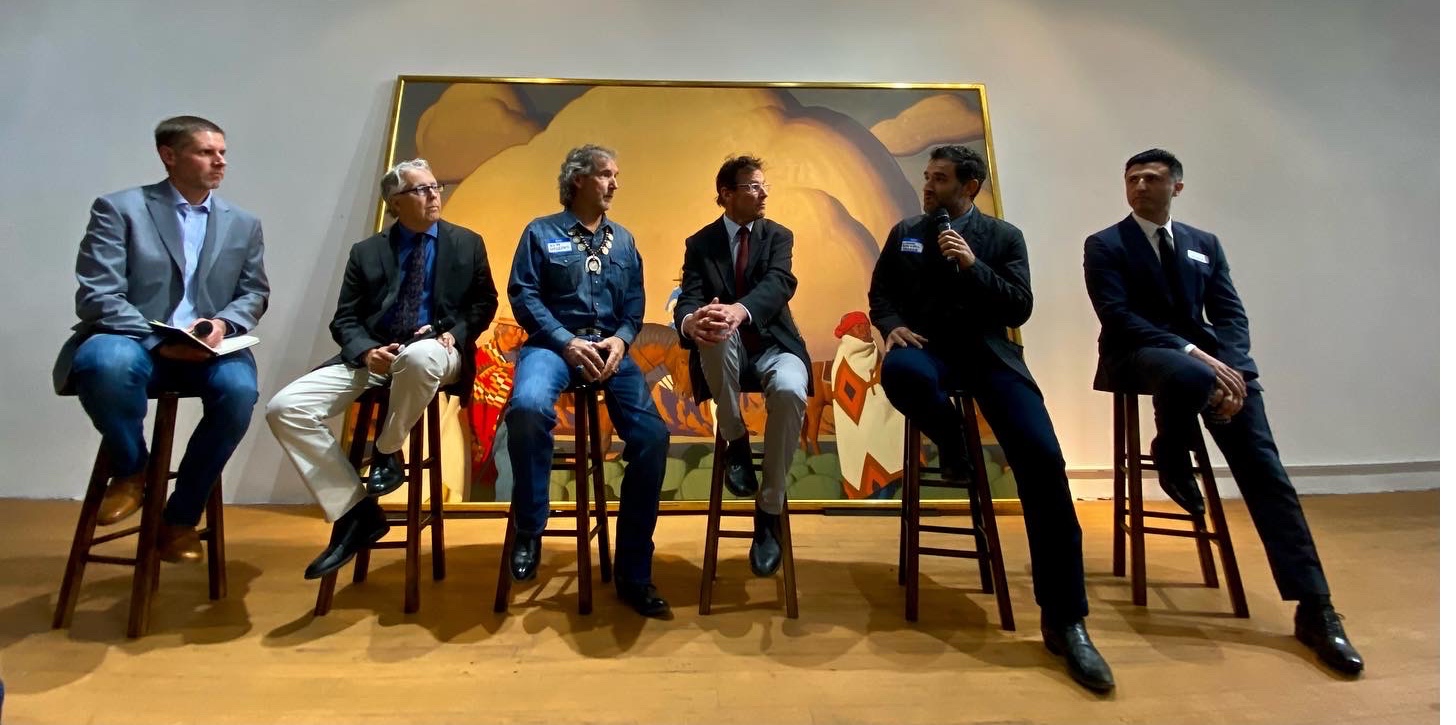
This is a special podcast episode that was recorded live in Los Angeles at Maxwell Alexander Gallery’s 10 Year Anniversary Exhibition. Maxwell Alexander Gallery was founded back in 2012, when brothers Beau Alexander and Logan Maxwell Hagege decided to start an artist-focused gallery that spotlighted the West’s most cutting-edge art. What started with a crazy idea, a small space, and a few artists has evolved into one of the most well-known galleries in the West– a gallery that celebrates the many complex facets of the American West through paintings and sculpture.
This is a recording of an artist panel discussion that was held on Saturday evening, just before the public exhibition began. The panel includes both Beau and Logan, as well as renowned western artists Kim Wiggins, Eric Bowman, and T. Allen Lawson, who goes by Tim. We recorded this conversation in a space next door to the gallery, and we quickly filled all of the chairs and it became a standing-room-only event. The six of us sat on stools in front of Logan’s 8’x12′ painting titled “The Song at Sunset,” which Logan discusses during the panel. If you’d like to see an image of this massive work of art, there’s a link in the episode notes.
Over the course of an hour, the six of us had a wonderful conversation that covered a wide range of topics, everything from the founding of the Maxwell Alexander Gallery all the way to expectations about the future of the Western art markets. Tim speaks about how he used to go out looking for scenes to paint, but now he patiently waits for the “paintings to come to [him].” Kim talks about his unique upbringing in New Mexico and how professional art captured him from an early age. Eric discussed how he treats each of his paintings as an “open-ended story” so as to draw the viewer deeper into the work. And those are just a few of the many topics we discussed. Check out the notes below for a full list of topics.
And if you leave this episode wanting to hear more from these artists, don’t worry– I’ve convinced them all to join me for their own episodes in the coming months. And you can always go back and listen to my first episode with Logan.
A huge thank you to Beau and Logan for inviting me to this one-of-a-kind event, and a thank you to all of the artists for being such fun, welcoming, and fascinating people who contribute so much to the culture of the American West. I was honored to be included, and I hope you enjoy this conversation as much as I did.
All photos courtesy of Maxwell Alexander Gallery
LISTEN & DOWNLOAD:
Apple Podcasts
Spotify
Google Podcasts
Overcast
… or wherever you get your podcasts!
—
RESOURCES:
Topics Discussed:
- 3:15 – Introductions
- 4:40 – Ed starts the questions
- 5:30 – Logan talks about starting up the Maxwell Alexander Gallery and why they were interested in doing so
- 7:45 – Beau talks about the biggest surprises he experienced in starting the gallery
- 10:30 – Beau and Logan discuss how they evaluate which artists are a good fit for their gallery
- 13:30 – Tim discusses his process of letting “paintings come to me”
- 16:00 – Tim talks about balancing (or not balancing) making art that he knows will sell with trying new forms of art
- 17:30 – Kim talks about becoming an artist
- 22:30 – Eric discusses how he makes his paintings “open-ended [stories]”
- 25:30 – Eric talks about how the American West captured his imagination
- 27:45 – Beau discusses his process of encouraging artists that he works with without over-influencing them
- 29:45 – Logan discusses his large work of art positioned behind the panel (name?)
- 32:15 – Beau discusses Logan’s painting
- 34:00 – The panel talks about the responsibility they feel to understand the history of the places they represent in their art
- 40:15 – Eric discusses why he believes that making art should never be easy
- 42:15 – Beau talks about the business of art, how it was impacted by COVID-19, and what he is thinking about as predictions of a recession circulate
- 47:00 – Audience question: How does the panel compose their color harmonies, especially Logan on such large paintings?
- 52:30 – Audience question: Discuss the effect of the 2021 Maxwell Alexander artist’s retreat
- 55:30 – Audience question: Does anyone on the panel intend to make a big shift in their style, or do they feel locked in?
- 59:45 – Tim celebrates Logan and Beau’s work at the gallery
- 1:01:00 – Logan and Beau express their appreciation for the artists
Information Referenced:
- Maxwell Alexander Gallery
- Logan Maxwell Hagege
- Beau Alexander
- T. Allen Lawson (Tim)
- Kim Wiggins
- Eric Bowman
- Culver City, CA
- Billy Shenck
- Scottsdale, AZ
- Claude Monet
- Armand Guillaumin
- Santa Fe Plaza
- American Impressionist Society
- Robert Daughters
- Walter Gonske
- Wilhelm J. Goebel
- Douglas Higgins
- St. Louis, MO
- Peter Hurd
- Henriette Wyeth
- Thomas Hart Benton
- Georgia O’Keeffe
- William Lumpkins
- New Mexico Modernism
- Alfred Morang
- Emil Bisttram
- William Lumpkins
- Charles M. Russell
- Alexandre Hogue
- Earnest L. Blumenschein
- Taos, NM
- Realism
- San Geronimo Feast Day
- Orange County, CA
- Glenn Dean
- Josh Elliott
- David McCullough
- Norton Simon Museum
- The Alamo
- Custer’s Last Stand
- Value
- Color Harmony
- Vincent van Gogh
- Rembrandt
- Brett James Smith
- What About Bob?
- Lucian Freud
Enjoy this episode? Then you might like these too:
- Frances Ashforth – Art, Water, and Wide-Open Spaces
- Pete McBride, Part 2: In Search of Silence
- Kelsey Johnson – Chasing Her Artistic Ambitions
- Anna Brones – Committed to Creativity
- Ivan McClellan – A New Look at the Old West
- Live in Bozeman!
- Morgan Irons – Finding Her Muse
- Logan Maxwell Hagege – Artistic Evolution
- Jessica Lewis – Doing More With Less
Visit the podcast page for a full list of episodes where
Francesca Claverie – A Borderlands Conservation Success Story
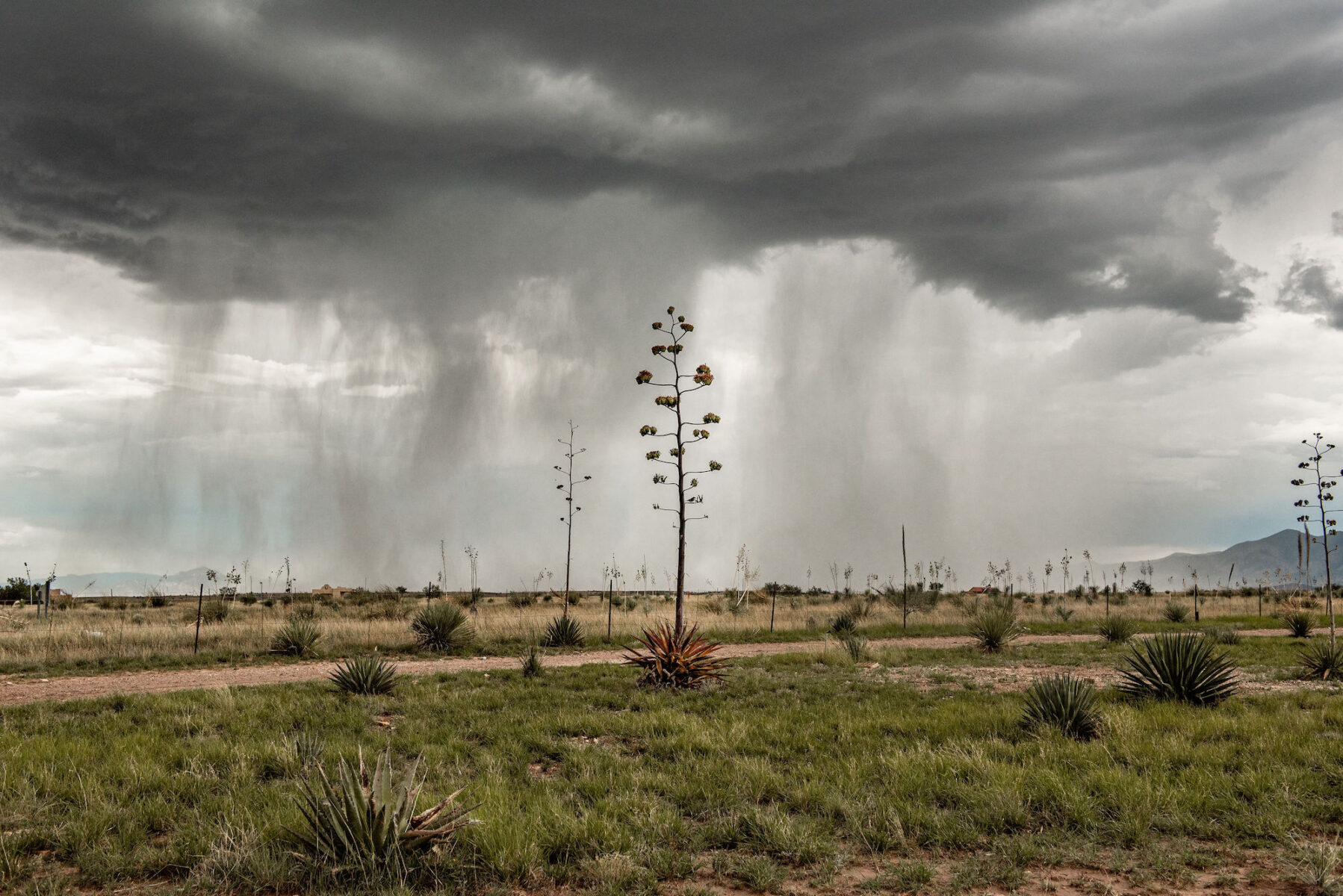
Francesca Claverie is the Native Plant Program Manager at the Borderlands Restoration Network. Based in the southern Arizona town of Patagonia, the Borderlands Restoration Network’s mission is “to grow a restorative economy by rebuilding healthy ecosystems, restoring habitat for plants and wildlife, and reconnecting our border communities to the land through shared learning.” Through binational partnerships and community-led innovation, Francesca and her team are making progress toward solving many border-specific conservation challenges– challenges that are often not very well known to those of us living far from the border.
We could easily spend five or six hours discussing Francesca’s various conservation projects, but for this hour-long conversation, we zoned in one particularly innovative project that spans the US-Mexico border called Bacanora for Bats: Binational Conservation and Sustainable Agave Spirits. The project is focused on conserving agave plants– plants that are a critical food source for specific migrating bat populations and are simultaneously under a great deal of pressure because of the booming tequila and Bacanora industries. As you’ll hear her explain, Francesca and her team have implemented a one-of-a-kind system that allows for continued economic prosperity from agave production, but not at the expense of the bat populations. It’s a perfect example of a community-driven, win-win conservation solution.
A little more than two years ago, the project was awarded the Salazar Center’s Connectivity Challenge prize– a $100,000 award that Francesca and her binational team have used to implement this innovative conservation solution. So we obviously talk about how those funds have been put to use and some of the successes that have resulted from the prize. We also discuss some of the unexpected opportunities and challenges that have arisen during the project, and how changing political administrations on both sides of the border have affected her work. We go into great detail about bats, the ecology of agave plants, and specific challenges that come with working across borders. Francesca also has a fascinating personal and professional trajectory, so we talk about her childhood spent on the California-Mexico border and how she decided to pursue conservation as a career. She also offers up some excellent book recommendations and some wise parting words.
I was so inspired by Francesca and her work along the border, and I believe there are lessons in this conversation that can be applied by anyone working in the conservation sector. Thanks to Francesca for taking the time to chat, and thank you for listening.
Header photo by Kayla Lewis, headshot courtesy of Francesca Claverie
LISTEN & DOWNLOAD:
Download on Apple Podcasts
Download on Spotify
Download on Google Podcasts
Download on Overcast
—
EPISODE PARTNER:
This episode is brought to you in partnership with Colorado State University’s Salazar Center for North American Conservation.
This conversation scratches the surface of some of the topics that will be covered in greater depth at the Salazar Center’s fourth annual International Symposium on Conservation Impact, which will be held next week – the week of October 3, 2022 – in Denver and online. The symposium will explore how conservation efforts that span boundaries like the US-Mexico border can drive binational cooperation as well as better outcomes for people and nature. An all-star lineup of conservation researchers, practitioners, policymakers, and funders will highlight opportunities for and barriers to conservation in the border region, climate change impacts, the role of Indigenous leadership, and learnings from the region’s distinct history and biogeography.
Listeners can learn more at salazarcenter.colostate.edu and receive $25 off symposium registration with the code “25OffReg”.
RESOURCES:
Topics Discussed:
- 4:30 – Overview of the Borderlands Restoration Network
- 9:30 – Application to the Connectivity Challenge
- 11:40 – Agave, Bats, and Pollination
- 20:40 – How the bat pollination issue came to Borderlands Restoration Network’s attention
- 27:00 – Certification program for Bacanora
- 36:20 – How the Connectivity Challenge funds have been invested
- 38:55 – Unexpected challenges and opportunities
- 41:20 – How different US administrations affect these border projects
- 47:20 – Francesca’s personal and professional background
- 53:45 – Other borderland projects that are showing great promise
- 57:30 – Favorite books
- 1:02:25 – Parting words
- 1:04:30 – Connect with the Borderlands Restoration Network
Information Referenced:
- Borderlands Restoration Network
- Salazar Center for North American Conservation
- Connectivity Challenge
- Borderlands Restoration Network Pitch Video
- Dr. Rod Pulliam
- Agave
- Lesser Long-nosed Bat
- Saguaro cactus
- Bat Conservation International
- Colectivo Sonora Silvestre
- Universidad de Sonora
- Sonoran election story
- Altar Valley
- Calexico, CA
- Sky Islands of Arizona
- Sky Island Alliance
- Watershed Management Group
- Tending the Wild by Kat Anderson
- Braiding Sweetgrass by Robin Wall Kimmerer
Enjoy this episode? Then you might like these too:
- Amber Smith – Creating Connection & Community
- Mike McTee & Vince Slabe – Win-Win Solutions in the Fight to Save Eagles
- Brian Yablonski – Action-Oriented Conservationist
- Liz Moore – For the Love of Montana
- Kate Mannix – A Legacy of Land Stewardship
- Shane Doyle – Reverence for the Past, Hope for the Future
- Sarah King – Collaborative Conservation in the American Southwest
- Mike Phillips – Audacious Goals, Relentless Action
Visit the podcast page for a full list of episodes where you can filter episodes by topic and guests’ vocations.
Amber Smith – Creating Connection & Community
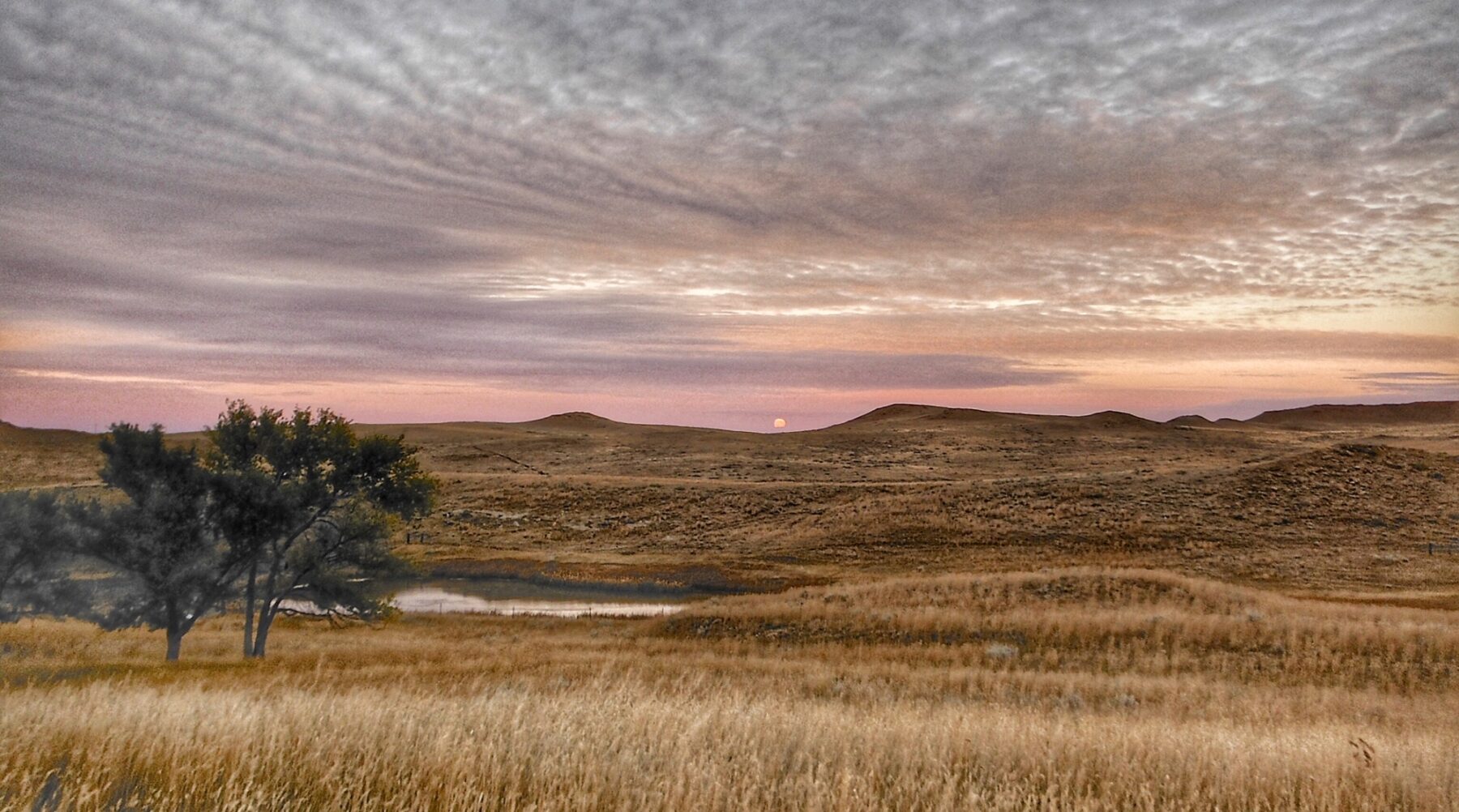
Amber Smith is a Montana-based rancher and the Executive Director of Women in Ranching, a nonprofit organization whose mission is to hold brave space, support courageous action, and champion rural women’s leadership on the land. Offering a blend of in-person and virtual events, Women in Ranching has filled a unique niche across a wide range of rural communities in the West and beyond. From skill-building workshops to virtual kitchen table chats to multi-day on-the-ground experiences, Women in Ranching offers a much-needed, supportive network for women whose families and livelihoods are closely tied to agriculture and the land.
Amber was born and raised in Illinois, and she met her now-husband Trevor while working at a ranch in Colorado. They fell in love, got married, and today Amber and Trevor have two young children and a successful ranching business in eastern Montana. As you’ll hear in our conversation, when Amber was first introduced to Women in Ranching several years ago, she felt an immediate connection to the organization’s work– the connection was so strong that she eventually took the helm as the organization’s leader. And earlier this year, after several years under the umbrella of Western Landowners Alliance, Women in Ranching became its own freestanding nonprofit organization- an exciting next step for the organization’s continued growth and evolution.
Amber and I met more than five years ago on the Antelope Springs Ranch, the ranch that she and Trevor continue to steward to this day. I was immediately impressed with her energy, dedication to her community, and ability to juggle many competing priorities with grace and humor. I’ve been following her leadership with Women in Ranching for many years now, and it was a real pleasure to have the opportunity to reconnect and have such an inspiring conversation. We talked about the purpose and mission of Women in Ranching and how the organization has evolved in unexpected ways. We discuss some of the specific challenges facing women ranchers and how Women in Ranching works to address those needs. We discussed the pandemic’s effect on ranching communities, how Amber tries to find balance in her life, how she has been positively impacted by the organization, some specific success stories, her favorite books, and much more. Be sure to check out the episode notes for a complete list of everything we discussed.
To learn more about Women in Ranching and to support its work, head over to www.womeninranching.co. Huge thanks to Amber for all of her hard work, and thanks to you for listening. Hope you enjoy.
Header photograph courtesy of Grasslands LLC, Headshot courtesy of Amber Smith
—
Download on Apple Podcasts
—
Download on Spotify
—
Download on Google Podcasts
—
Download on Overcast
—
EPISODE NOTES
Topics Discussed:
- 4:00 – Amber describes Women in Ranching
- 17:30 – Amber talks about how her work with elders impacted how she approaches her work and life
- 22:30 – Amber discusses Women in Ranching and how its work was influenced by the pandemic
- 29:00 – Amber talks about who comes to the Confluence
- 30:30 – Amber discusses the current form of Women in Ranching
- 35:00 – Amber talks about the early stages of Women in Ranching becoming their own organization
- 40:00 – Amber explains her outlook on life balance and managing overwhelm
- 45:30 – Amber discusses how she learned to deal with a new kind of challenge in her work with Women in Ranching
- 56:00 – Amber talks about how the shift in Women in Ranching from WLA program to its own organization impacted her as a person
- 1:05:45 – How folks can get involved and support Women in Ranching
- 1:10:15 – Amber talks about books that have influenced her
- 1:14:30 – Amber’s parting words of wisdom
Information Referenced:
- Women in Ranching: Website & Instagram
- Quivira Coalition
- Regenerate conference
- Paicines Ranch
- TomKat Ranch
- Elaine Patarini
- Wendy Millet
- Steamboat Springs, CO
- Western Landowners Alliance
- Lesli Allison
- Holistic management
- Extension service
- Ranching for Profit
- Savory Institute
- Nicki Silvestri
- Robin Wall Kimmerer
- Tribe by Sebastian Junger
- Paul Farmer
- Andrea Malmberg
- Tony Malmberg
- Green Grass and the Spring by Tony Malmberg
- Pretty-shield: Medicine Woman of the Crows by Frank B. Linderman
- River House by Sarahlee Lawrence
- Rainshadow Organics
- Alzada, MT
- The Long Way Home: Journeys of a Chinese Montanan by Flora Wong
Enjoy this episode? Then you might like these too:
- Kate Mannix – A Legacy of Land Stewardship
- Riddy Arman – Artistic Authenticity
- Betsy Gaines Quammen – A Fascinating History of Public Lands in the West
- Matt Pierson – Finding New Solutions for Food Insecurity
- Shane Doyle – Reverence for the Past, Hope for the Future
- Antonia Malchik – Exploring Culture & Complexity
- Iris Gardner – Living with Intention
- Daniela Ibarra-Howell – Healing the Land Holistically
- Jessica Ilalaole – Creating Home in the High Desert
Visit the podcast page for a full list of episodes where you can filter episodes by topic and guests’ vocations.
Mike McTee & Vince Slabe – Win-Win Solutions in the Fight to Save Eagles
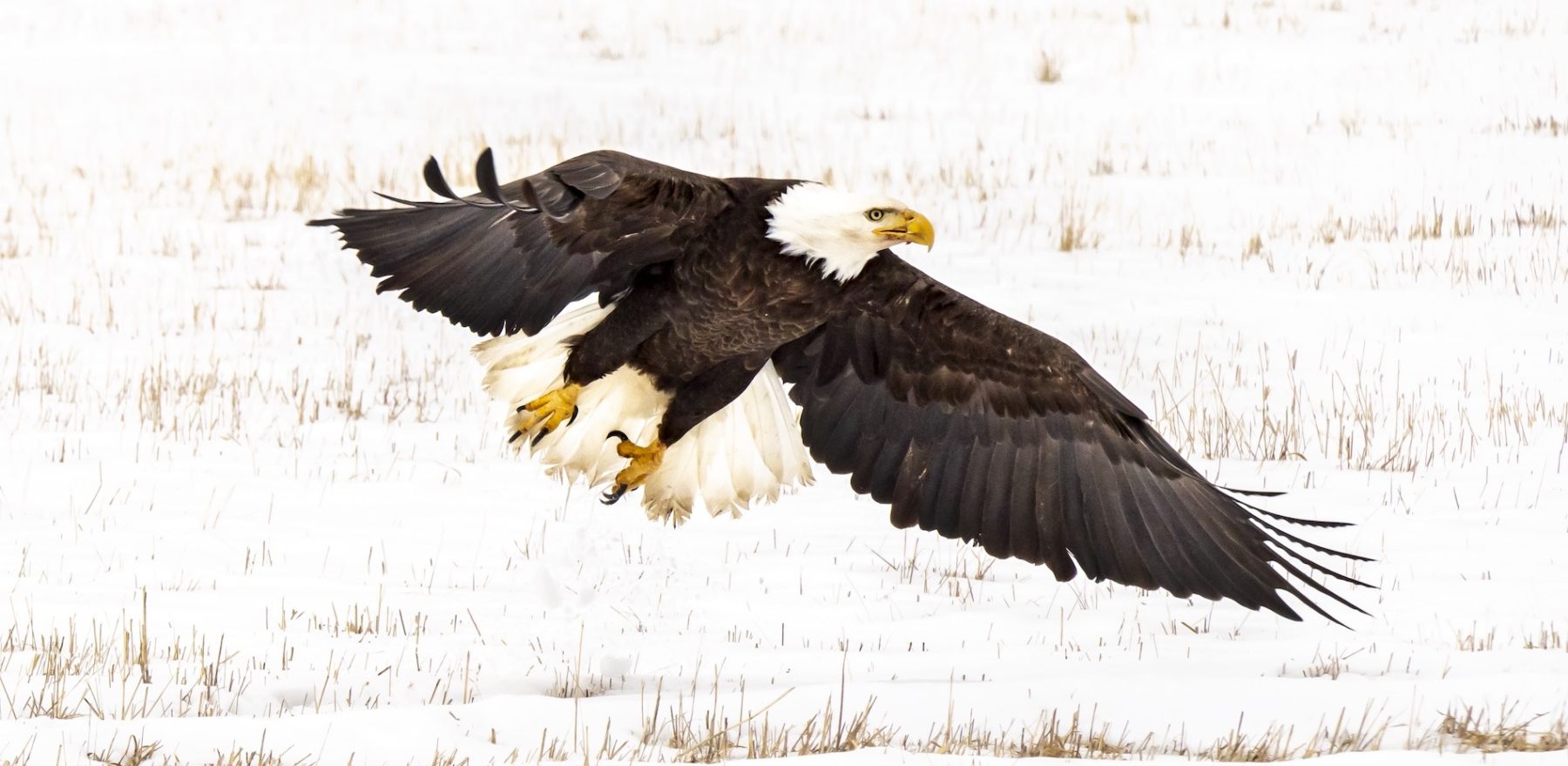
Mike McTee and Vince Slabe are Montana-based researchers who use cutting-edge science, writing, and educational programs to protect eagles in the American West and beyond. Both Mike and Vince are laser-focused on the surprisingly little-known issue of lead poisoning in bald and golden eagles, a problem caused mainly by eagles scavenging the remains of big game animals that have been hunted with lead-based ammunition. For example, a study conducted near Jackson Hole captured migrating golden eagles, tested them for lead, and found that 98% had elevated lead levels in their blood. Committed hunters themselves, Mike and Vince are devoting their professional energies toward finding sustainable, reasonable, and mutually beneficial solutions to this large-scale challenge.
Mike lives in Missoula and works as a researcher at the MPG Ranch, a large, privately owned ranch in the Bitterroot Valley that promotes conservation through restoration, research, education, and information sharing. He is also the author of the excellent new book Wilted Wings: A Hunter’s Fight for Eagles, which was recently published by Riverfeet Press. In it, Mike lays out the issue of lead poisoning in eagles in a compelling and easy-to-understand style, and he offers some clear and relatively simple paths to solving the problem. Mike has also written for The FlyFish Journal, Backcountry Journal, and Bugle, and he is a sought-after speaker on various hunting-related topics.
Vince is a Bozeman-based Research Wildlife Biologist with Conservation Science Global. He holds a Ph.D. from West Virginia University and recently published a wildly cited paper that details the implications of lead poisoning in eagles across North America. The paper, which was published in Science, describes how almost half of the bald and golden eagles sampled for the study had elevated levels of lead in their blood. More importantly, it explains exactly how increasing or decreasing levels of lead exposure will affect golden and bald eagle populations. We discussed the paper in our conversation, and I’ve also linked it to the episode notes.
This is a fascinating discussion that digs deep into a very specific issue– an issue that is largely under the radar here in the West. But if you zoom out from the details related to lead and eagles, and focus on the big picture, I think you’ll agree that Mike and Vince are shining examples of the many smart, driven, level-headed people here in the West who are working hard to find win-win solutions to conservation-related challenges. I thoroughly enjoyed this conversation, Mike’s new book, and Vince’s paper, and I hope you will too.
Be sure to check out the episode notes for a list of all the topics we discussed and links to everything. Thanks for listening!
Header photograph by Estelle Shuttleworth, Mike’s headshot by Jordan Hoffmaster
—
Download on Apple Podcasts
—
Download on Spotify
—
Download on Google Podcasts
—
Download on Overcast
—
This episode is brought to you by The Arthur M. Blank Family Foundation, which embodies the values-based approach to philanthropy and business of its Chairman Arthur M. Blank
EPISODE NOTES
Topics Discussed:
- 3:45 – Mike’s introduction
- 5:30 – Vince’s introduction
- 8:45 – Mike and Vince discuss the history of raptor-human interaction in the US over the last 200 years
- 15:15 Mike and Vince discuss the threat of lead poisoning as it pertains to raptors, noting the historical use of lead shot in waterfowl hunting
- 26:30 – Mike and Vince discuss their current work addressing the threat still posed to raptors by lead bullets for big game hunting
- 33:00 – Vince discusses ammunition demonstrations and the Arthur M. Blank Foundation’s advocacy for adopting non-lead ammunition through their private, guided hunting trips.
- 40:15 – Mike and Vince talk about why there has been resistance to widespread adoption of non-lead ammunition.
- 49:15 – Mike discusses managing the few situations where there is anger directed towards his work as he encourages hunters to switch ammunition
- 55:15 – Mike and Vince’s book recommendations
- 1:04:30 – Mike and Vince’s parting words of wisdom
Information Referenced:
- Arthur M. Blank Family Foundation
- Mike McTee
- Wilted Wings by Mike McTee
- Mike’s quarterly newsletter: Montana’s Nonlead Newsletter
- Vince Slabe
- Conservation Science Global
- MPG Ranch
- Bitterroot Valley
- Sapphire Mountains
- Selway-Bitterroot Wilderness
- Trap shooting
- Skeet shooting
- Rob Domenech
- Raptor View Research Institute
- Bald Eagle
- Golden Eagle
- “Demographic Implications of Lead Poisoning for Eagles Across North America” by Vince Slabe
- Silent Spring by Rachel Carson
- Peregrine Falcon
- Bald and Golden Eagle Protection Act
- Hawk Mountain
- Goshawk
- Grouse
- George Bird Grinnell
- Boone and Crockett Club
- Field and Stream
- Waterfowl
- Mallard
- Bismuth
- National Wildlife Federation
- Endangered Species Act
- Migratory Bird Treaty Act
- The Peregrine Fund
- Chris Parish
- Billings Gazette
- Missoulian
- Paradise Valley
- Montana Hunters for Eagle Conservation
- Hunters for Eagle Conservation
- Pittman-Robertson Wildlife Restoration Act
- Asics
- Montana Master Hunter Program
- One Montana
- Barnes Bullets
- Federal Premium Ammunition
- Nosler
- Hornady Manufacturing
- Shirley Basin
- North American Non-lead Partnership
- Leland Brown
- Oregon Zoo
- huntingwithnonlead.org
- Sporting Lead Free
- One Long River of Song by Brian Doyle
- Orion Magazine
- “Their Irrepressible Innocence” by Brian Doyle
- “Joyas Voladores” by Brian Doyle
- American Scholar
- Indian Creek Chronicles by Pete Fromm
- American Buffalo by Steven Rinella
- Scavenger’s Guide to Haute Cuisine by Steven Rinella
- There There by Tommy Orange
- Refuge by Terry Tempest Williams
- Jim Harrison
- Blood Meridian by Cormac McCarthy
- The Road by Cormac McCarthy
- Ernest Hemingway
- A Sand County Almanac by Aldo Leopold
- Henry David Thoreau
- Dr. Drew Lanham
- The Homeplace by Drew Lanham
- Black Faces, White Spaces by Carolyn Finney
- Beyond Fair Chase by Jim Posewitz
Enjoy this episode? Then you might like these too:
- Shane Doyle – Reverence for the Past, Hope for the Future
- Matt Pierson – Finding New Solutions for Food Insecurity
- Dr. Eric Arzubi – A New Approach to Solving the West’s Mental Health Crisis
- Liz Moore – For the Love of Montana
- Lesli Allison & Tuda Libby Crews – Durable Conservation in the West… and Beyond
- Dr. David Hewitt – The Science of Wildlife Conservation
- Jessica Wahl Turner – Outdoor Recreation & Rural Economies
Visit the podcast page for a full list of episodes where you can filter episodes by topic and guests’ vocations.
Peter Stark – Tales of Adventure, Exploration, & Epic Battles
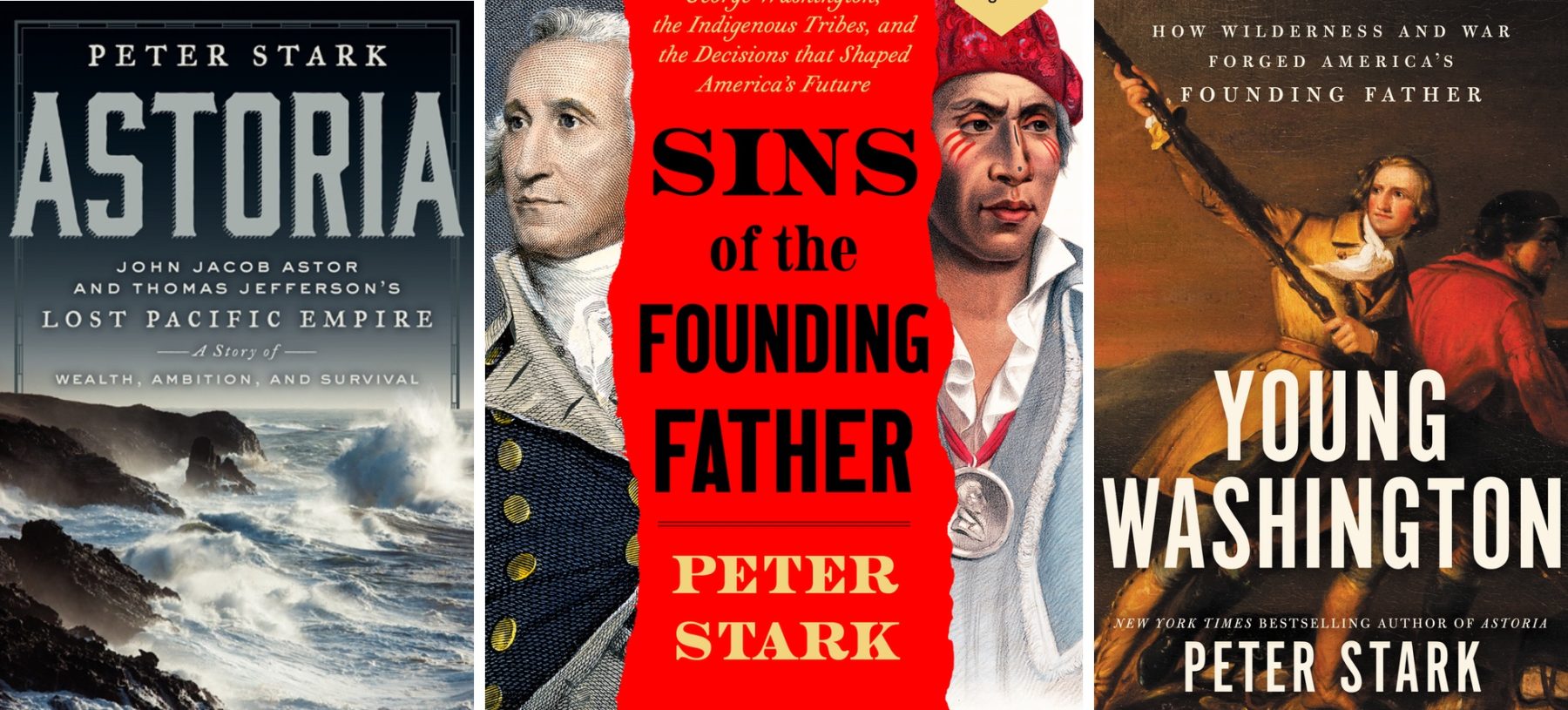
If you’re a long-time Mountain & Prairie listener, then I’m sure you’ve heard me reference the author and historian Peter Stark. He’s written some of the most memorable books I’ve ever read, including one of my all-time favorites about the early history of the western United States– a thrilling tale of adventure and exploration called Astoria: John Jacob Astor and Thomas Jefferson’s Lost Pacific Empire: A Story of Wealth, Ambition, and Survival. Peter has also spent years working as a correspondent for Outside and has written extensively for magazines including Smithsonian, Men’s Journal, The New Yorker, and more.
I’ve been a fan of Peter’s for more than twenty years, so when I was offered the chance to chat with him, I jumped at the opportunity. The focus of this conversation is Peter’s newest project, an e-and audiobook titled Sins of the Founding Father: George Washington, the Indigenous Tribes, and the Decisions that Shaped America’s Future. It’s an in-depth exploration of an often-overlooked battle in 1791 between American troops and Indigenous tribes– a violent fight that was decisively won by the Native Americans, and resulted in three times more American deaths than the Battle of Little Big Horn. The e-book also covers the life and personality of George Washington, America’s insatiable hunger for land, and the United States’ uncertain future in the years just after the Revolutionary War.
You might be wondering, what does George Washington have to do with the present-day American West? Back then, the term “American West” described a region now known as Ohio. Well, as you’ll hear in this conversation, this specific battle set the course of action for the next hundred+ years regarding the United States’ policies toward Indigenous tribes. The American’s crippling defeat led Washington and other leaders to ramp up their violent tactics against Native tribes and hold nothing back in their quest to claim as much western land as possible, as quickly as possible. It’s an eye-opening story that gave me a much better understanding of the ambition, egos, and economic realities that laid the foundation for the modern-day West.
Sins of the Founding Father is available exclusively at Scribd, and there’s a link in the episode notes that will give you a free 30-day trial. Scribd is a really cool app that I’ve enjoyed using for e and audiobooks, so go to Scribd.com to check it all out. Sins of the Founding Father is a great read and at only 70 pages, you can enjoy it in one sitting. I hope you’ll check it out, and I hope you enjoy this conversation.
All images courtesy of Peter Stark and Scribd
LISTEN
Download on Apple Podcasts
—
Download on Spotify
—
Download on Google Podcasts
—
Download on Overcast
EPISODE NOTES
Topics Discussed:
- 4:00 – Peter describes young George Washington
- 7:15 – Peter discusses Washington’s lust for land acquisition
- 19:30 – Peter talks about how Washington’s land speculation set the playbook for greedy land acquisition seen throughout US history
- 23:00 – Peter jumps ahead to Washington’s life in 1791
- 40:00 – Peter talks about writing history in an engaging way
- 46:00 – Peter discusses his own writing process
- 51:15 – Peter discusses the historical parallels between our recent sociopolitical turmoil and that of the late 1700s following the Battle with No Name – or -discusses the fallout of the Battle with No Name
- 1:01:15 – Peter’s book recommendations
Information Referenced:
- Sins of the Founding Father by Peter Stark
- Last Breath by Peter Stark
- Young Washington by Peter Stark
- Astoria by Peter Stark
- The French and Indian War
- Jamestown, VA
- Shenandoah Valley
- Piedmont
- Blue Ridge Mountain
- Robert Dinwiddie
- Lexington and Concord
- Patrick Henry
- Benjamin Franklin
- The Confederated Congress
- Shawnee Tribe
- Henry Knox
- Fort Washington
- Miami Tribe
- Kakionga
- Arthur St. Clair
- Gout
- The Battle with No Name (the Battle of the Wabash)
- Outside magazine
- Tim Colter
- Matthew Waxman
- Mark Trahant
- Shoshone Tribes
- Navajo Nation
- Tecumseh
- William Henry Harrison
- Thomas Jefferson
- Alexander Hamilton
- Edmond Randolph
- Mount Vernon
- The Northwest Ordinance of 1787 (Peter discusses Art. 3)
- The Annals of Congress from March 1792
- Potawatomi People
- John Dunn Hunter
- Memoirs of a Captivity Among the Indians of North America by John Dunn Hunter
- Scoouwa: James Smith’s Indian Captivity Narrative by James Smith
- The Snow Leopard by Peter Matthiessen
- Coming into the Country by John McPhee
- Winter in the Blood by James Welch
- Fools Crow by James Welch
- Crow Tribe
Enjoy this episode? Then you might like these too:
- Betsy Gaines Quammen – A Fascinating History of Public Lands in the West
- Nate Schweber – A Forgotten Chapter of American Conservation
- Hampton Sides, Part 3 – Tales from a Most Excellent Adventure
- Chris La Tray – Rediscovering His Past, Writing His Future
- William deBuys – Sage of the Southwest
- Hampton Sides – Live at the Aspen Institute
- Sara Dant – A Deep Dive Into the History of the West
Visit the podcast page for a full list of episodes where you can filter episodes by topic and guests’ vocations.
Frances Ashforth – Art, Water, and Wide-Open Spaces
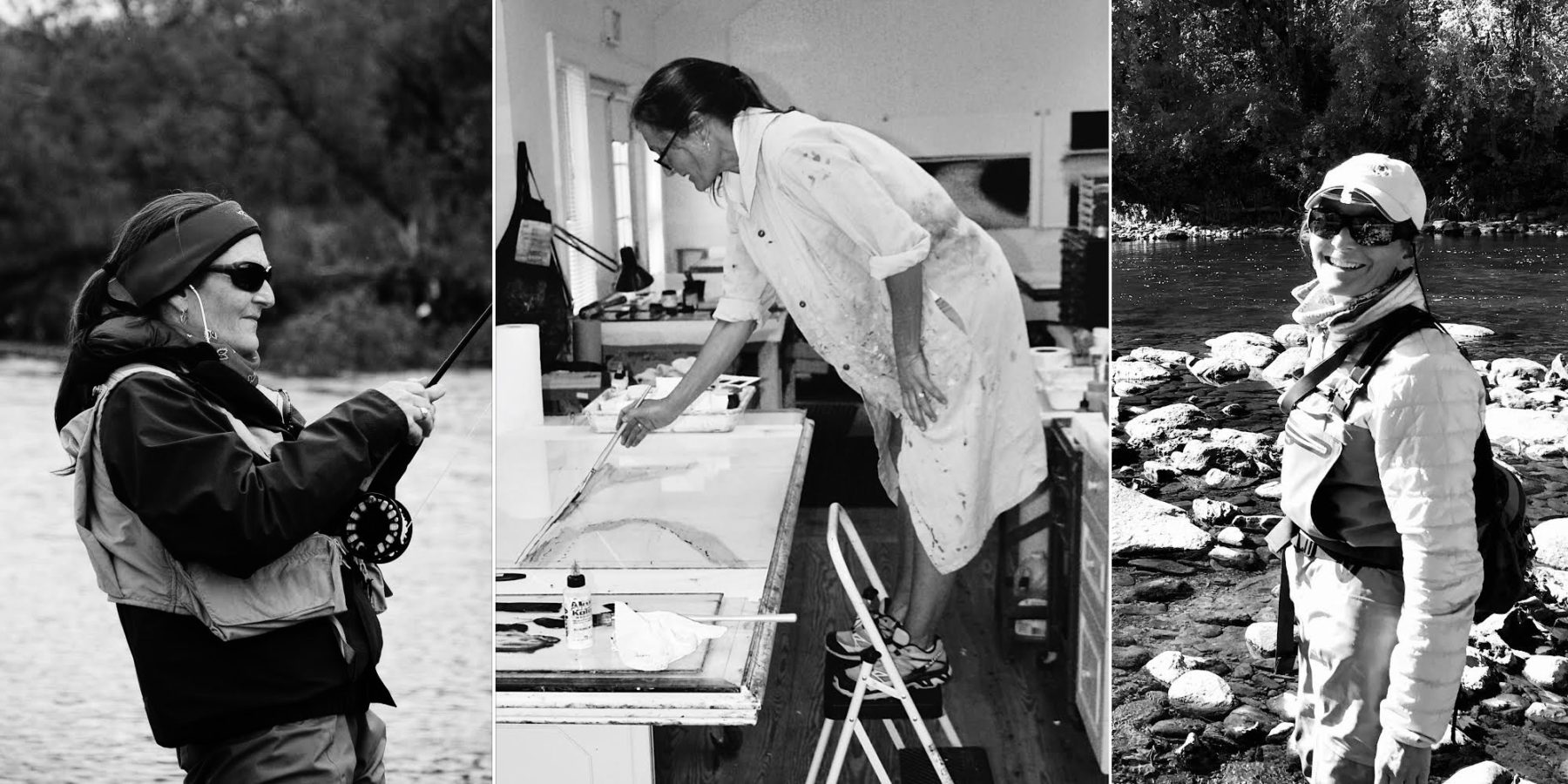
Frances B. Ashforth is an artist who specializes in drawing, printmaking, and painting. While much of her work is tied to the landscapes and rivers of the American West, she is also well known for her depictions of salt flats and coastal weather in more tropical locales. If there are two threads that bind all of Francie’s work, they are her deep reverence for natural landscapes and her desire to protect them. Over the years, she has collaborated with many highly regarded conservationists to combine writing and art– first, in her Water + Words project, and most recently, when she created all of the art for Dylan Tomine’s excellent new book Headwaters: The Adventures, Obsession and Evolution of a Fly Fisherman.
Francie was born and raised on the east coast, into a family of artists and athletes who cultivated her obsessions with art and perpetual physical activity. Even though a childhood accident confined her to a body brace for nearly six years, Francie always pursued her passions with full enthusiasm and vigor, working hard to keep a positive attitude in the face of such a serious physical setback. But her commitment to creativity never waivered– after studying art and architecture in college, she worked professionally as both an architectural illustrator and art director for more than a decade. Eventually, Francie left her day job to focus on her own artistic endeavors, as well as her all-important role as a mother to young children. Today, Francie’s work has been shown in venues from New York City to San Francisco, and she has a loyal following among galleries and collectors across the country.
Francie and I met through past podcast guest Dylan Tomine, when I had the pleasure of interviewing both of them at a live event in Brooklyn earlier this year. I was immediately impressed with Francies’ art, her obsession with fly fishing and books, and her long-term commitment to melding art and conservation. So I was so thrilled when she agreed to join me on the podcast, and we managed to cover a lot. We discussed her childhood and her family’s influence, and her early career that combined art and architecture. We talked about the specifics of her art, including her influences and her preferred mediums, and we talked in detail about her Water + Words project. We talk a lot about the book Headwaters, as well as her own love of books and reading. Francie offers a long list of excellent book recommendations, so be sure to check the episode notes for links to all of those and everything else we discuss.
Huge thanks to Francie for all she does for conservation and for taking the time to chat with me. Hope you enjoy!
All images courtesy of Frances Ashforth
LISTEN
Download on Apple Podcasts
—
Download on Spotify
—
Download on Google Podcasts
—
Download on Overcast
EPISODE NOTES
Topics Discussed:
- 3:40 – Francie discusses her childhood
- 5:30 – Francie talks about her family’s creative streak
- 8:30 – Francie discusses an accident that impacted her childhood
- 19:00 – Francie talks about her college education and early career in architecture
- 26:15 – Francie explains her transition from professional drafting to focusing on her own art
- 28:55 – Francie describes her art
- 32:30 – Francie talks about her Water and Word Project
- 37:15 – Francie explains her process of adapting existing words into new, complementary art
- 42:45 – Francie talks about how she became involved with Dylan Tomine, Headwaters, and Patagonia Books
- 49:15 – Francie discusses reading and the books that make up her personal “bibliography”
- 1:00:30 – Francie talks about what is giving her hope these days
Information Referenced:
- Frances B. Ashforth
- Francie on Instagram
- Water + Words
- Dylan’s past Headwaters event
- Connecticut River
- Printmaking
- Drafting
- Westport, CT
- Scoliosis
- Body brace
- C-curve scoliosis vs S-curve scoliosis
- Lexington Avenue, New York City
- Tree well
- Forest Gump
- Forest Gump loses his brace
- Fine Homebuilding Magazine
- PageMaker
- CAD system
- Ecotones
- Dylan Tomine
- Headwaters by Dylan Tomine
- Joe Whitworth
- Rachel Finn
- Spencer Beebe
- Christopher Shore
- Codex Foundation
- Malinda Chouinard
- Patagonia books
- Rick Ridgeway
- The Immense Journey by Loren Eiseley
- Jane Goodall
- Far North by Marcel Theroux
- Where the Crooked River Rises by Ellen Waterston
- Bend, OR
- Playa
- Summer Lake, OR
- Rancher, Farmer, Fisherman by Miriam Horn
- Refuge by Terry Tempest Williams
- Arctic Dreams by Barry Lopez
- Horizon by Barry Lopez
- Buffalo for the Broken Heart, Dan O’Brien
- Antelope Island
- Basin and Range, John McPhee
- Survival of the Bark Canoe, by John McPhee
- Oranges by John McPhee
- Draft No. 4 by John McPhee
- Encounters with the Archdruid by John McPhee
- The Red Pony by John Steinbeck
- Old Yeller by Fred Gipson
- Where the Sea Used to Be by Rick Bass
- Powell’s bookstore
- Fourth of July Creek by Smith Henderson
- Bryan Nash Gill
- Eric Arzubi
- Thirteen Moons by Charles Frazier
- The Big Sky by A.B. Guthrie, Jr.
- The Way West by A.B. Guthrie, Jr.
- Kentucky Straight by Chris Offutt
- The Good Brother by Chris Offutt
- Nate Schweber
Enjoy this episode? Then you might like these too:
- Dylan Tomine – Protecting What He Loves
- Heather Hansman, Part 2 – The Fascinating Story of Skiing’s Past, Present & Future
- Kate Mannix – A Legacy of Land Stewardship
- Kelsey Johnson – Chasing Her Artistic Ambitions
- Iris Gardner – Living with Intention
- Juanita Vero, Part 2 – A Deep Desire to Serve
- Dr. David Hewitt – The Science of Wildlife Conservation
- Riddy Arman – Artistic Authenticity
Visit the podcast page for a full list of episodes where you can filter episodes by topic and guests’ vocations.
10 Must-Read Books about the American West, with Mark Kenyon
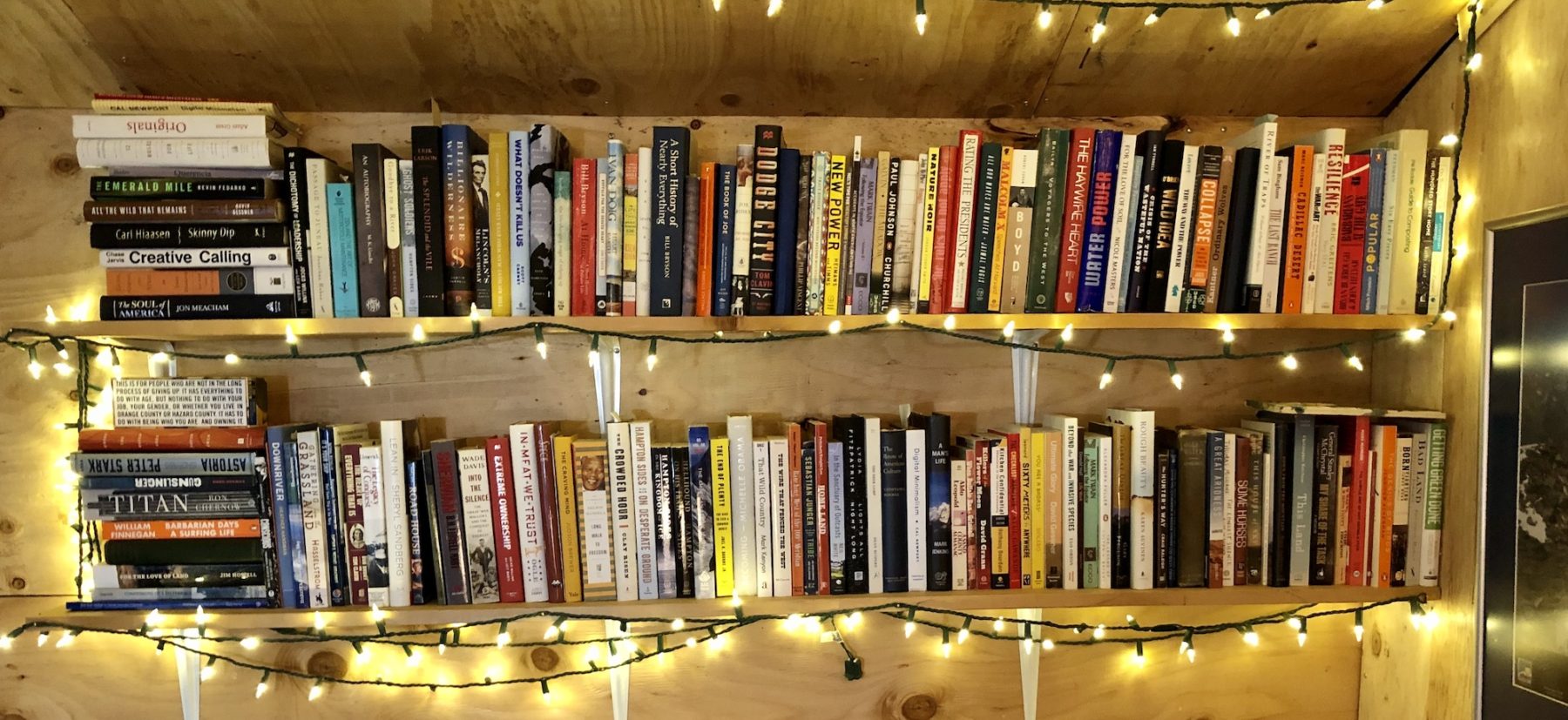
Mark Kenyon is an author, podcaster, conservationist, and member of the MeatEater crew. You probably know him from his excellent book That Wild Country: An Epic Journey Through the Past, Present, and Future of America’s Public Lands, the Wired to Hunt podcast, or his contributions to MeatEater’s Netflix show and other video productions. To learn more about Mark and his impressive personal and professional journey, I’d encourage you to go back to our first Mountain & Prairie conversation from a few years ago, which is linked in the episode notes.
In this episode, Mark and I are doing something a little different: We’re focusing exclusively on books. Earlier this year, Mark had me on his podcast to discuss our favorite books about conservation, and we both received excellent feedback on that episode. You can find a link to that discussion in the notes. So we decided to have another book conversation, this time focusing on some of our favorite books about the American West. Both Mark and I are voracious readers who love share a love of history, conservation, and adventure, so I’m always excited to hear Mark’s recommendations and thoughts on a wide range of titles.
The episode starts out with a brief catch-up on Mark’s summer adventures and his current work with MeatEater, and then we dive into the books. We each picked five of our all-time favorites, and, as you’d expect, we veer off into other tangentially related titles and subjects. This is an episode where you’ll definitely want to check out the episode notes, because there are links to dozens of books, authors, films, and other resources. Mark and I could’ve easily talked for three or four hours, but we had to keep the conversation relatively short because of tight schedules. However, we’re going to try and make these book conversations a regular occurrence on both of our podcasts– so if you like this format, stay tuned for more!
If you haven’t already, I’d encourage you to check out Mark’s podcast or follow him on social media– he’s a smart, thoughtful, hard-working guy that brings tons of value to the world of conservation and outdoor recreation. Please enjoy the episode, and if you do, please share it with a few friends.
Mark’s Five Recommendations
Desert Solitaire by Edward Abbey
Blood Meridian by Cormac McCarthy
The Course of Empire by Bernard DeVoto
Dreams of Eldorado by H.W. Brands
The Oregon Trail by Rinker Buck
Great Plains by Ian Frasier
Ed’s Five Recommendations
Blood and Thunder by Hampton Sides
The Emerald Mile by Kevin Fedarko
Leave It As It Is by David Gessner
Bad Land by Jonathan Rabin
American Zion by Betsy Gaines Quammen
—
Headshot courtesy of Mark Kenyon
—
Download on Apple Podcasts
—
Download on Spotify
—
Download on Google Podcasts
—
Download on Overcast
EPISODE NOTES
Topics Discussed:
- 4:00 – Mark talks about his summer with his family
- 11:30 – Mark discusses his plans for Meat Eater in the fall
- 13:15 – Mark talks about the incredible experiences that constitute his job
- 14:30 – Mark and Ed discuss their five favorite American West conservation books (see their lists below) starting with Desert Solitaire
- 27:30 – Blood and Thunder
- 33:15 – Empire of the Summer Moon
- 34:45 – Blood Meridian
- 36:15 – The Course of Empire and
- 39:15 – Dreams of Eldorado
- 45:15 – The Emerald Mile
- 51:00 – The Oregon Trail
- 54:45 – Leave It As It Is
- 59:00 – Great Plains
- 1:03:15 – Badlands
- 1:05:45 – American Zion
Information Referenced:
- That Wild Country by Mark Kenyon
- MeatEater
- Ed and Mark on Wired to Hunt
- Mark’s first appearance on Mountain & Prairie
- Jocko energy drink
- Sculpin
- Cutthroat Trout
- Nymph
- Dry fly
- Mending the line
- Riffle
- Rainbow Trout
- Largemouth Bass
- Spin reel fishing vs fly fishing
- Steve Rinella
- Janis Putelis
- Pronghorn
- Undaunted Courage by Stephen E. Ambrose
- Canyonlands National Park
- Arches National Park
- Glen Canyon
- Sierra Nevada Mountains
- All the Wild That Remains by David Gessner
- Edward Abbey
- Wallace Stegner
- The Godfather
- Yvon Chouinard
- John C. Frémont
- James Henry Carleton
- Navajo
- Empire of the Summer Moon by S.C. Gwynne
- Comanche
- Quanah Parker
- The Overstory by Richard Powers
- Across the Wide Missouri by Bernard DeVoto
- Year of Decision: 1846 by Bernard DeVoto
- Astoria by Peter Stark
- Santa Fe Trail
- Nate Schweber
- This America of Ours by Nate Schweber
- Kevin Fedarko (MnP)
- Outside Magazine
- Beyond the Hundredth Meridian by Wallace Stegner
- Downriver by Heather Hansman
- Heather Hansman
- Cadillac Desert by Marc Reisner
- Martin Litton
- Pete McBride
- Into the Canyon
- A Walk in the Woods by Bill Bryson
- Bears Ears National Monument
- Theodore Roosevelt: The Strenuous Life by Kathleen Dalton
- In Cold Blood by Truman Capote
- Betsy Gaines Quammen
- Malheur occupation
Enjoy this episode? Then you might like these too:
- Hampton Sides – Live at the Aspen Institute
- Betsy Gaines Quammen – A Fascinating History of Public Lands in the West
- David Gessner, Part 3 – A Confluence of Conservation Ideals
- Hal Herring – A Man of Words & Wild Places
- Heather Hansman – Demystifying Water in the West
- Sara Dant – A Deep Dive Into the History of the West
- Nate Schweber – A Forgotten Chapter of American Conservation
- Chris La Tray – Rediscovering His Past, Writing His Future
- Callan Wink – A New Voice for the New West
- Peter Heller – Chasing the Flow
- Chandra Brown – Fostering Creativity Through River Adventures
Visit the podcast page for a full list of episodes where you can filter episodes by topic and guests’ vocations.
Nate Schweber – A Forgotten Chapter of American Conservation
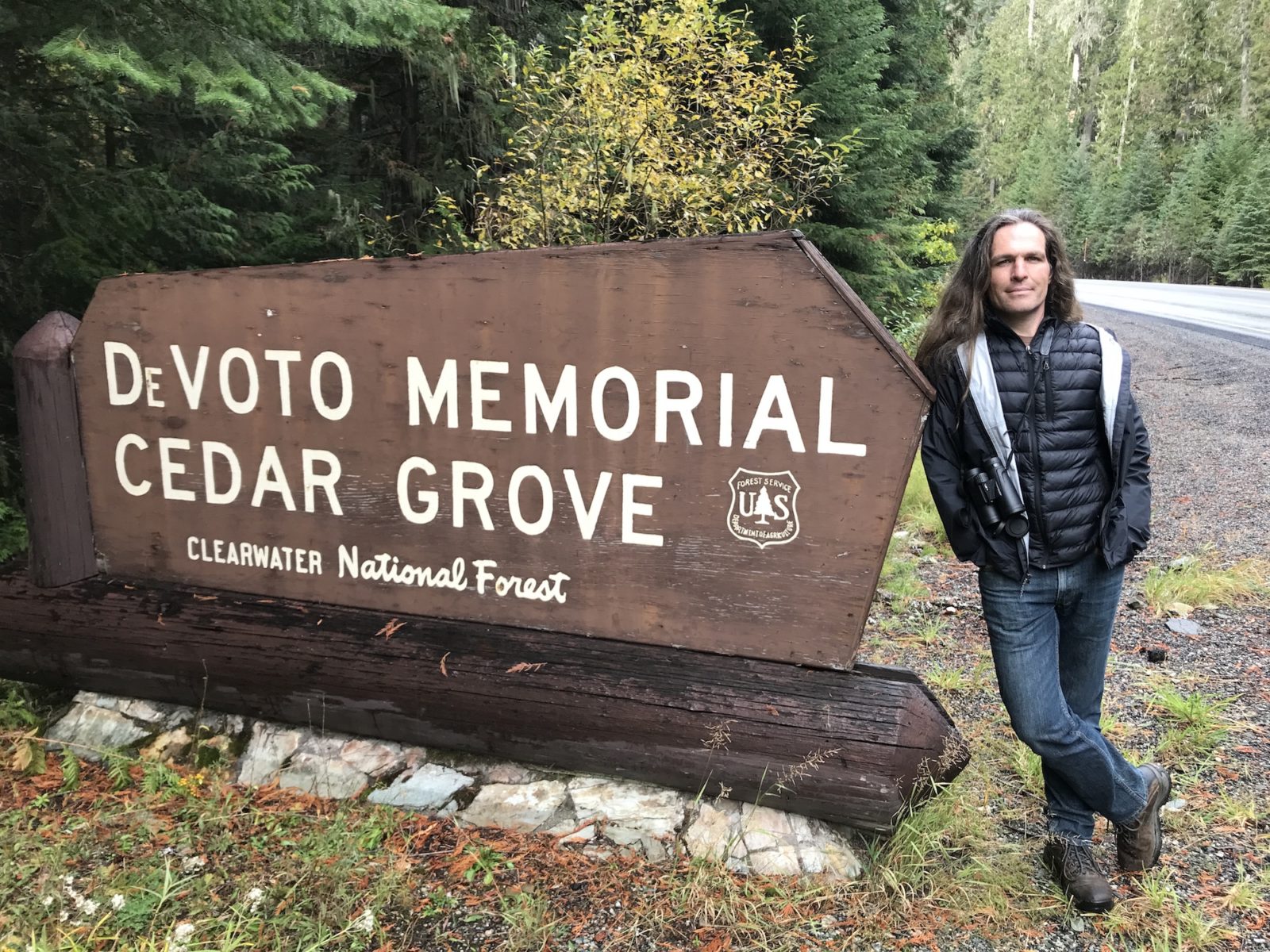
Nate Schweber is an award-winning journalist whose work has been featured in the New York Times, ProPublica, Anthony Bourdain’s Parts Unknown, and more. He’s also the author of the new book This America of Ours: Bernard and Avis DeVoto and the Forgotten Fight to Save the Wild, which was published in early July 2022. If you’re looking for an engaging and entertaining history book that highlights an often-overlooked era of conservation in the American West, then This America of Ours is your book– as you’ll hear in this conversation, I thoroughly enjoyed it.
Nate is a native Montanan who grew up in Missoula and headed east to New York City as a young man to pursue a career in journalism. Despite building a successful life and career in the big city, Nate never lost his love for Montana– so he made an effort to pursue more stories linked to the people and landscapes of the American West. As he studied and explored the West with his journalist’s eye, he discovered the writings of Bernard DeVoto and was quickly captivated. Fast forward to today, and he has written an amazing book about Bernard and his wife Avis, and how together they were one of the most important and effective forces for conservation in the early 20th century.
I knew I was going to enjoy This America of Ours, but it surpassed all of my lofty expectations. While I had definitely heard of the DeVotos, I had no idea of their influence and fearlessness, especially as they faced off against powerful forces that were attempting to sell off vast tracts of our public lands. Nate and I dig into all aspects of the DeVotos’ lives and historical importance, both individually and as a power couple. We talk about why Nate became so obsessed with the DeVotos, and how the DeVotos bridged the gap between Theodore and Franklin Roosevelt’s conservation legacies and the modern-day environmental movement. We discuss the parallels between the public lands battles of today and those of the early 20th century, and how reading history helps us to better understand and process today’s current events. Nate also offers up tons of excellent book recommendations, so be sure to check out the notes for a list of all the topics we discuss and links to everything.
A huge thanks to Nate for writing such an enlightening book and for taking the time to join me for a conversation. I hope you enjoy!
Header photo courtesy of Nate Schweber, headshot by Dave Sanders
—
Download on Apple Podcasts
—
Download on Spotify
—
Download on Google Podcasts
—
Download on Overcast
EPISODE NOTES
Topics Discussed:
- 4:00 – How the DeVotos captured Nate’s attention
- 8:45 – Nate describes the DeVotos’ personalities
- 13:30 – Nate explains how a flood galvanized Bernard DeVoto’s passionate conservation ethic
- 20:00 – The role road trips played in the DeVotos’ lives and work
- 27:00 – Nate discusses how learning the historical and legal backdrop for conservation colors his understanding of the challenges surrounding conservation and public lands now
- 32:00 – Nate introduces some of the tangles the DeVotos had with the FBI following accusations that the couple were communists
- 38:00 – Nate discusses an important friendship for the DeVotos: Julia Child
- 44:00 – Nate dives into his process of researching the DeVotos
- 49:45 – Nate talks about his career and how he ended up moving from Missoula, MT to New York City, and why he stays there now
- 55:07 – Ed and Nate discuss contradictions in each personality and how they make people more interesting
- 58:00 – Nate recommends some books
- 1:03:30 – Nate’s parting words of wisdom
Information Referenced:
- This America of Ours: Bernard DeVoto and the Forgotten Fight to Save the Wild by Nate Schweber
- Bernard DeVoto
- Avis DeVoto
- David Gessner
- This Land by Christopher Ketchum
- Harper’s Magazine
- Upper Peninsula, Mchigan
- Ogden, UT
- Homer
- Wasatch Range
- Harvard University
- University of Utah
- Cloudburst
- Pueblo, CO
- Escalante, UT
- Silver City, NM
- Clean Air Act
- Endangered Species Act
- The Wilderness Act
- Wild and Scenic Rivers Act
- Land and Water Conservation Fund
- “The West Against Itself,” by Bernard DeVoto
- Civilian Conservation Corps (CCC)
- The Garrison Dam
- Mandan, Hidatsa, and Arikara Nation
- Joseph Kinsey Howard
- Montana: High, Wide, and Handsome by Joseph Kinsey Howard
- Ansel Adams
- Wallace Stegner
- Chet Olson
- Fred Sanders
- Karl Marx
- J. Edgar Hoover
- Joseph McCarthy
- Thomas McGuane
- Jim Harrison
- Hunter S. Thompson
- Hell’s Angels: A Strange and Terrible Saga by Hunter S. Thompson
- Robert Frost
- Stanford University
- Ray Bradbury
- Julia Child
- Julie and Julia
- Deborah Rush
- Julia series on HBO
- Bebe Neuwirth
- Saturday Evening Post
- “Shall We Let Them Ruin Our National Parks,” article by Bernard Devoto
- Blacklisting
- Reader’s Digest
- Fortune
- Reno, NV
- Pat McCarran
- Laramie, WY
- Wyoming Stock Growers Association
- Weber State University
- DeVoto’s Nonfiction Western Trilogy
- The Year of the Decision: 1846 by Bernard DeVoto
- Across the Wide Missouri by Bernard DeVoto
- The Course of Empire by Bernard DeVoto
- DeVoto’s West: History, Conservation, and the Public Good by Bernard DeVoto
- The Western Paradox: A Conservation Reader by Bernard DeVoto
- Rightful Heritage by Douglas Brinkley
- James Welch
- Blackfeet
- Killing Custer by James Welsch
- The Overstory by Richard Powers
- The Hour of Land by Terry Tempest Williams
- Grizzly Years by Doug Peacock
- Hayduke Lives! By Edward Abbey
- Louise Erdrich
- Toni Morrison
- Laila Lalami
- Phillip Roth
- Angle of Repose by Wallace Stegner
- Timothy Egan
- Hal Herring
- Podcast and Blast
- Backcountry Hunters and Anglers
- Mark Kenyon
- Jon PageThe Craft Brewery Cookbook by John Holl
Enjoy this episode? Then you might like these too:
- Land Tawney – Energetic & Optimistic
- Betsy Gaines Quammen – A Fascinating History of Public Lands in the West
- Steve Casimiro – Voice of Adventure
- Carlos Fernandez – The Power of Partnerships
- David Gessner, Part 3 – A Confluence of Conservation Ideals
- Hal Herring – A Man of Words & Wild Places
- Mark Kenyon – A Passion for Public Lands
- Heather Hansman – Demystifying Water in the West
- Sara Dant – A Deep Dive Into the History of the West
Visit the podcast page for a full list of episodes where you can filter episodes by topic and guests’ vocations.
Pete McBride, Part 2: In Search of Silence
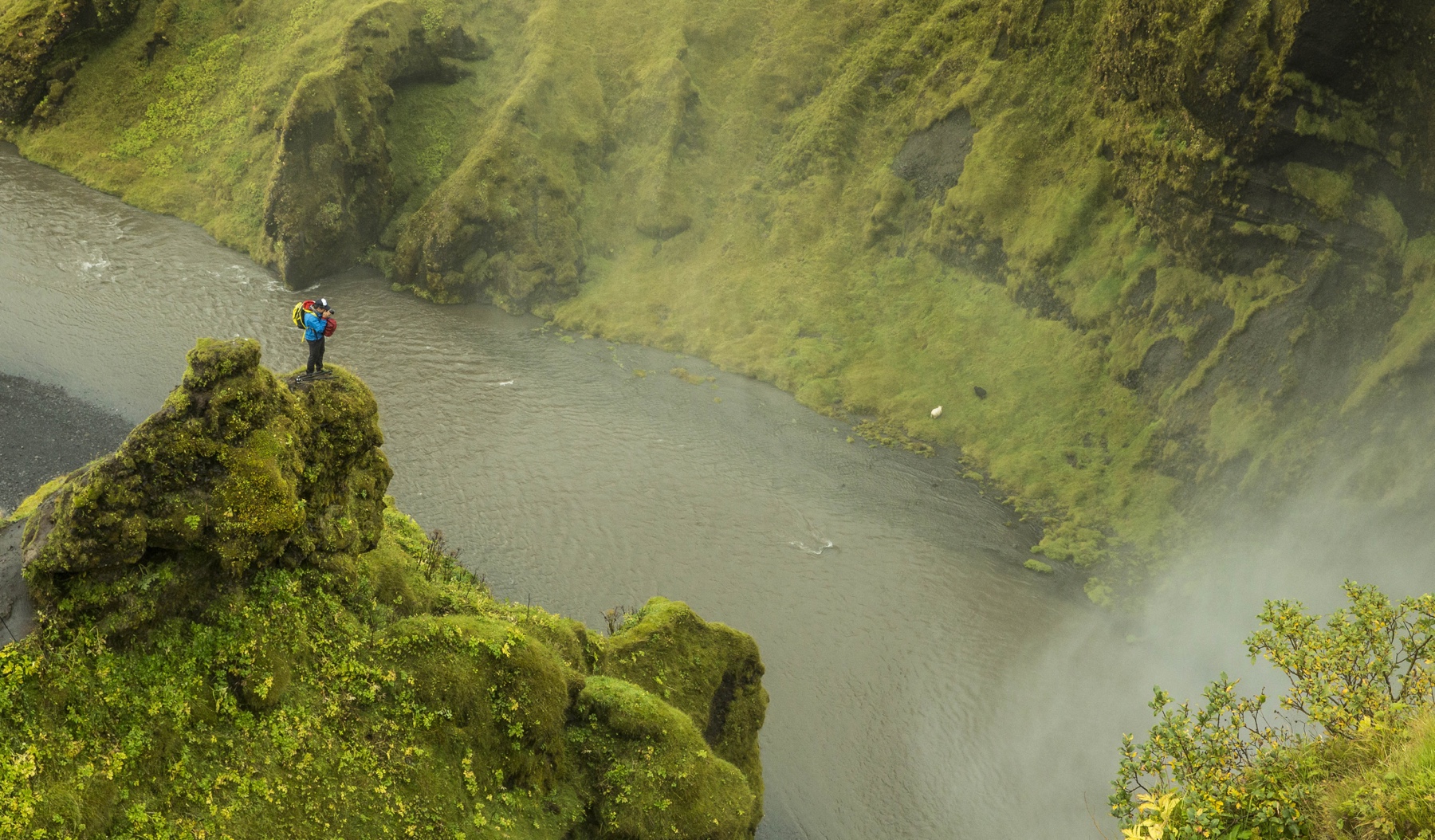
Pete McBride is an award-winning photographer and filmmaker whose work is regularly featured by National Geographic, Smithsonian, The Nature Conservancy, and other renowned institutions. His most recent book is titled Seeing Silence: The Beauty of the World’s Most Quiet Places, and it features photographs and stories from more than two decades of his adventures on all seven continents. Seeing Silence uses stunning imagery and engaging storytelling to highlight the importance of places free of man-made noise, and it educates the reader on just how quickly silence is disappearing from the world.
For more than twenty years, Pete has been using his skills as a storyteller to inspire action on a wide variety of conservation issues. He has highlighted the multitude of threats facing the Grand Canyon in both his documentary Into the Grand Canyon and his book Grand Canyon: Between River and Rim. He’s also documented the West’s ongoing water crisis by focusing on the myriad of challenges affecting the Colorado River basin–making the important but sometimes confusing topic of water in the West accessible to a broader audience. And now, with Seeing Silence, he’s turned his focus to noise pollution and natural sounds, and I personally learned a lot from the book and this conversation.
This is Pete’s second appearance on the podcast, so if you’d like to learn more about his personal backstory and adventures in the Grand Canyon, you can find a link to that conversation in the episode notes. In this conversation, we go deep into Pete’s new obsession with silence and natural sounds, and why noise pollution is such a critical conservation issue. We started out talking about Pete’s expedition to South Georgia Island back in March of 2020 and how he had to make a hasty escape from the island when Covid descended on the world. We talk about his experience during Covid, and how the pandemic shifted his interests from the visual to the auditory. We discuss how artificial noise affects wildlife, why Pete feels a responsibility not to share specific wilderness locations on social media, how Pete’s family keeps him grounded, the larger purpose that drives his professional work, his recent trips to Lake Powell, and we also included some sounds that Pete recorded during his South Georgia Island expedition.
It was great to chat with Pete again, and I’d encourage you to check out Seeing Silence– it’s an excellent book. And be sure the check out the episode notes for a complete list of all the topics we discussed and links to everything. Thanks to Pete for taking the time, and thanks to you for listening. I hope you enjoy!
Header photo and headshot courtesy of Pete McBride, book photo by Ed
—
Download on Apple Podcasts
—
Download on Spotify
—
Download on Google Podcasts
—
Download on Overcast
EPISODE NOTES
Topics Discussed:
- 3:30 – Where Pete was during the start of the pandemic
- 5:30 – Thousands of King Penguins
- 10:15 – How Pete, as an outgoing person, adjusted from a career of traveling for films to pandemic isolation
- 13:30 – An example that Pete observed of how pandemic silence affected wildlife
- 23:30 – Pete reflects on shifting his focus from more visual media to auditory
- 26:45 – Pete discusses a search for quiet and how human-made sound and industry impacts wildlife
- 32:30 – Pete and Ed discuss the impact of human-caused light pollution along with the impacts sound has on humans
- 36:45 – Pete describes why he became interested in sound
- 40:00 – Pete discusses the responsibility he feels as a photographer to not inspire destructive over-visitation of beautiful natural places
- 44:45 – Pete discusses how he and his family keep him humble and grounded despite widespread attention
- 49:45 – Pete talks about weaving adventure into work for conservation, and follows up on our first conversation regarding the state of water in the western US
- 59:30 – Pete gives us some conservation optimism
Information Referenced:
- Pete’s first visit on Mountain & Prairie
- Seeing Silence by Pete McBride
- South Georgia Island
- Ernest Shackleton
- King Penguins
- Falkland Islands
- Drake Passage
- Kevin Fedarko
- Roaring Fork Valley
- Rolling Stones
- Mick Jagger
- Jaque de Vos
- Svalbard
- Herring
- Swim bladders
- The Grand Canyon: Between River and Rim
- Colorado River Delta
- Gordon Hempton
- Maroon Bells-Snowmass Wilderness
- Independence Pass
- The End of Night by Paul Bogard
- San Juan River
- Pete’s NPR 1A interview
- Rick Ridgeway
- Yampa River
- Lake Powell
- Jonathan Wright
- Glen Canyon
- Lake Mead
- Flaming Gorge
- Len Necefer
- Glen Canyon Institute
- Desalination
- Kris Tompkins
Enjoy this episode? Then you might like these too:
- Rick Ridgeway – Purpose-Driven Adventurer
- Heather Hansman – Demystifying Water in the West
- Chris Burkard, Part 2 – Seeking Beauty Through Adventure
- Betsy Gaines Quammen – A Fascinating History of Public Lands in the West
- John Branch – Seeking the Extraordinary in the Ordinary
- Monte Burke – Exploring Obsession
- Mike Foote – Perfection is in the Process
- Steve Casimiro – Voice of Adventure
- Gabe Vasquez – Advocate for Equity in the Outdoors
Visit the podcast page for a full list of episodes where you can filter episodes by topic and guests’ vocations.
Rick Ridgeway – Purpose-Driven Adventurer
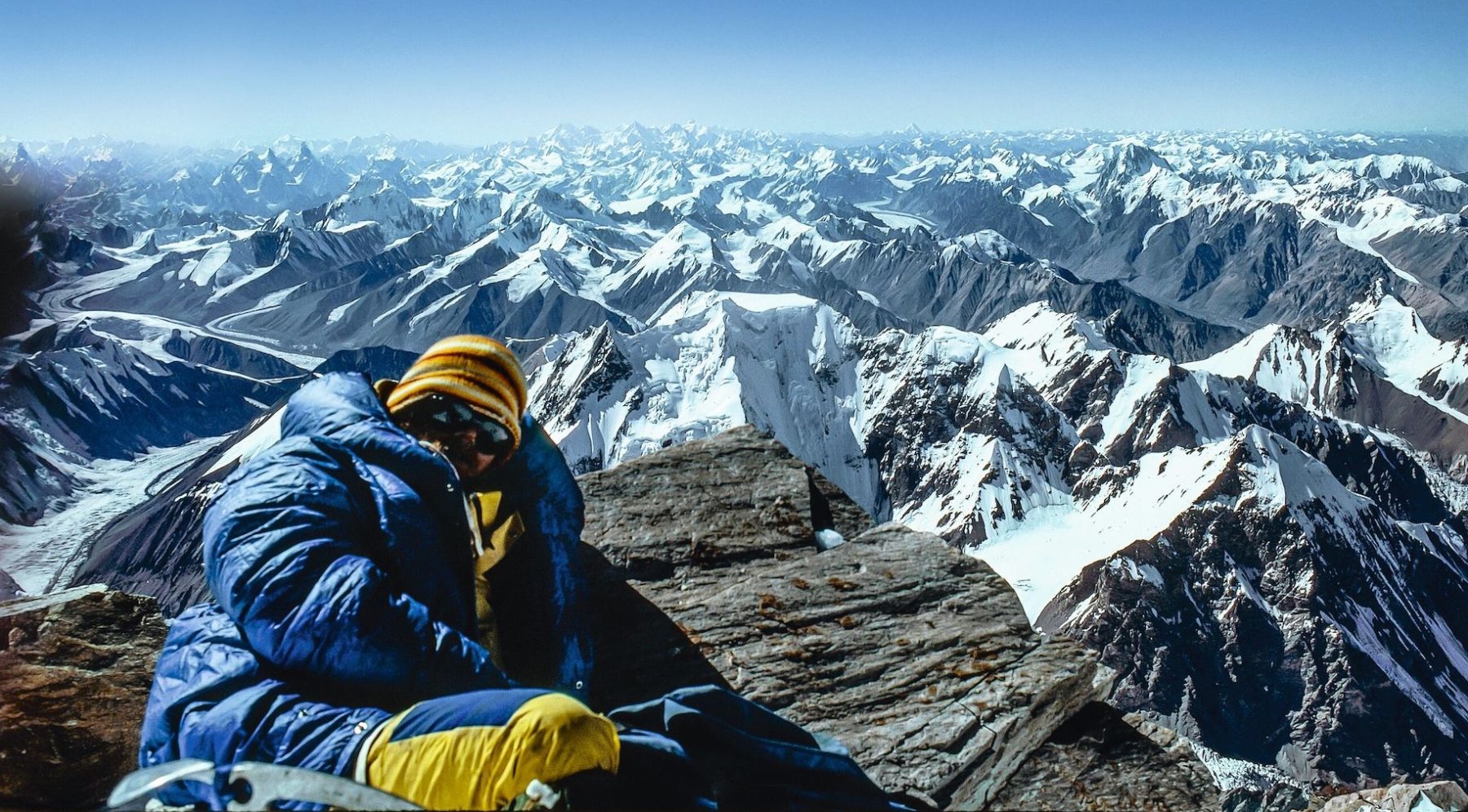
Rick Ridgeway is a world-renowned mountaineer and adventurer who has devoted his life to exploring some of the wildest regions of Planet Earth– from the summit of K2 to the jungles of Borneo to the mountain ranges of the American West and almost everywhere in between. Rick is also a highly regarded author, director, and producer who has written seven books and created numerous films and television shows. His newest book is titled Life Lived Wild: Adventures at the Edge of the Map, an excellent memoir that dives deep into his adventures, friendships, environmental advocacy, and pursuit of purpose-driven work.
Rick was born and raised in California, and when he was a teenager, his mother gave him a subscription to National Geographic, which ignited his passion for climbing and adventure. Early in his climbing career, Rick ticked off some unbelievably difficult climbs around the world, most notably being the first American to summit K2. But as he grew older and more experienced in the mountains, he shifted his focus away from pursuing adventure for adventure’s sake. Over time, he began to use his skills as an athlete and explorer to advance more purpose-driven causes such as wildlife conservation and environmental advocacy. Rick’s commitment to living a purpose-driven life is beautifully detailed in his new book Life Lived Wild, a book that I loved and highly recommend.
I had the pleasure of recording this conversation with Rick in person, just before a book signing at the Patagonia store in Denver. I have long admired Rick, and one of his earlier books played a huge role in my personal development, so it was an honor to have the opportunity to sit and talk with him for an hour. We started out discussing how and when he first began climbing and how he grew from an amateur climber into a world-class mountaineer. We talk a lot about mentorship– how he was mentored by climbing and environmental luminaries Yvon Chouinard and Doug Tompkins, and how he mentored many up-and-coming climbers, including Jimmy Chin. We talk about his commitment to taking action and being a doer, his success as an entrepreneur, and his 15-year tenure leading Patagonia’s sustainability initiatives. We talk about what brings Rick hope in the face of the climate crisis, how the pandemic affected him, and, as you’d expect from such a skilled writer, Rick offers tons of excellent book recommendations.
Huge thanks to Rick for taking the time to chat and to Patagonia Books for setting it all up. Meeting Rich was really a dream come true for me. I hope you enjoy.
Photos courtesy of Patagonia Books. Header by John Roskelley, portrait by Jimmy Chin.
This episode is brought to you thanks to the generous support of Ranchlands.
Visit www.ranchlands.com to learn more about their top-notch vacations, leather goods and apparel, or to explore their excellent blog, the “Ranchlands Review.”
THANK YOU, Ranchlands!
—
Download on Apple Podcasts
—
Download on Spotify
—
Download on Google Podcasts
—
Download on Overcast
EPISODE NOTES
Topics Discussed:
- 6:00 – A thank you to Rick
- 7:30 – Rick describes the moment he knew what he wanted to do when he grew up
- 13:30 – Rick talks us through his transition from climbing just for fun to using climbing to inform larger causes
- 21:30 – Rick talks about mentorship and what inspires him to be that kind of friend to people
- 29:15 – Rick talks about his experiences on the second American expedition on Everest and the first American expedition on K2 with his mentor, Jim Whittaker
- 32:00 – Rick explains the “do” mentality of Yvon Chouinard and Doug Thompkins
- 36:45 – Rick talks about his career shift from owning his own business to a job at an established company (Patagonia)
- 44:45 – Rick discusses how he finds balance between a business’s larger purpose and the details in its operation
- 48:30 – Rick talks about hope and climate change
- 56:00 – Rick talks about his lessons in exploration during the pandemic
- 1:00:15 – Rick’s book recommendations
Information Referenced:
- Life Lived Wild: Adventures at the Edge of the Map by Rick Ridgeway
- Seven Summits by Dick Bass, Frank Wells, and Rick Ridgeway
- Jim Whittaker
- National Geographic
- Sierra Nevadas
- Thunder Mountain
- Santa Ana River
- Outward Bound
- National Outdoor Leadership School (NOLS)
- Marin County
- Yvon Chouinard
- Doug Thompkins
- Jimmy Chin
- Conrad Anker
- Galen Rowell
- Brady Robinson
- Mountain Hardwear
- Alex Lowe
- Ventura, CA
- The North Face
- Fitz Roy Peak
- Osprey
- Sustainable Apparel Coalition
- The Higg index
- Dylan Tomine
- One Earth
- Leonardo DiCaprio Foundation
- Justin Winters
- Kris Thompkins
- Eric Goode
- Turtle Conservancy
- Rose Marcario
- The Snow Leopard by Peter Matthiessen
- Seven Pillars of Wisdom by T.E. Lawrence
- In Patagonia by Bruce Chatwin
- South by Ernest Shackleton
- For Whom the Bell Tolls by Ernest Hemingway
- Cormac McCarthy
- Silent Spring by Rachel Carson
- Desert Solitaire by Ed Abbey
- The Red Badge of Courage by Stephen Crane
Enjoy this episode? Then you might like these too:
- Dylan Tomine – Protecting What He Loves
- Luke Smithwick – A Life in High Places
- Chris Burkard, Part 2 – Seeking Beauty Through Adventure
- Elliott Woods – Stories from Dangerous Places
- Brendan Leonard, Part 2 – On Running, Creating, and Other Irrational Passions
- Iris Gardner – Living with Intention
- Heather Hansman, Part 2 – The Fascinating Story of Skiing’s Past, Present & Future
Visit the podcast page for a full list of episodes where you can filter episodes by topic and guests’ vocations.
Dr. Eric Arzubi – A New Approach to Solving the West’s Mental Health Crisis
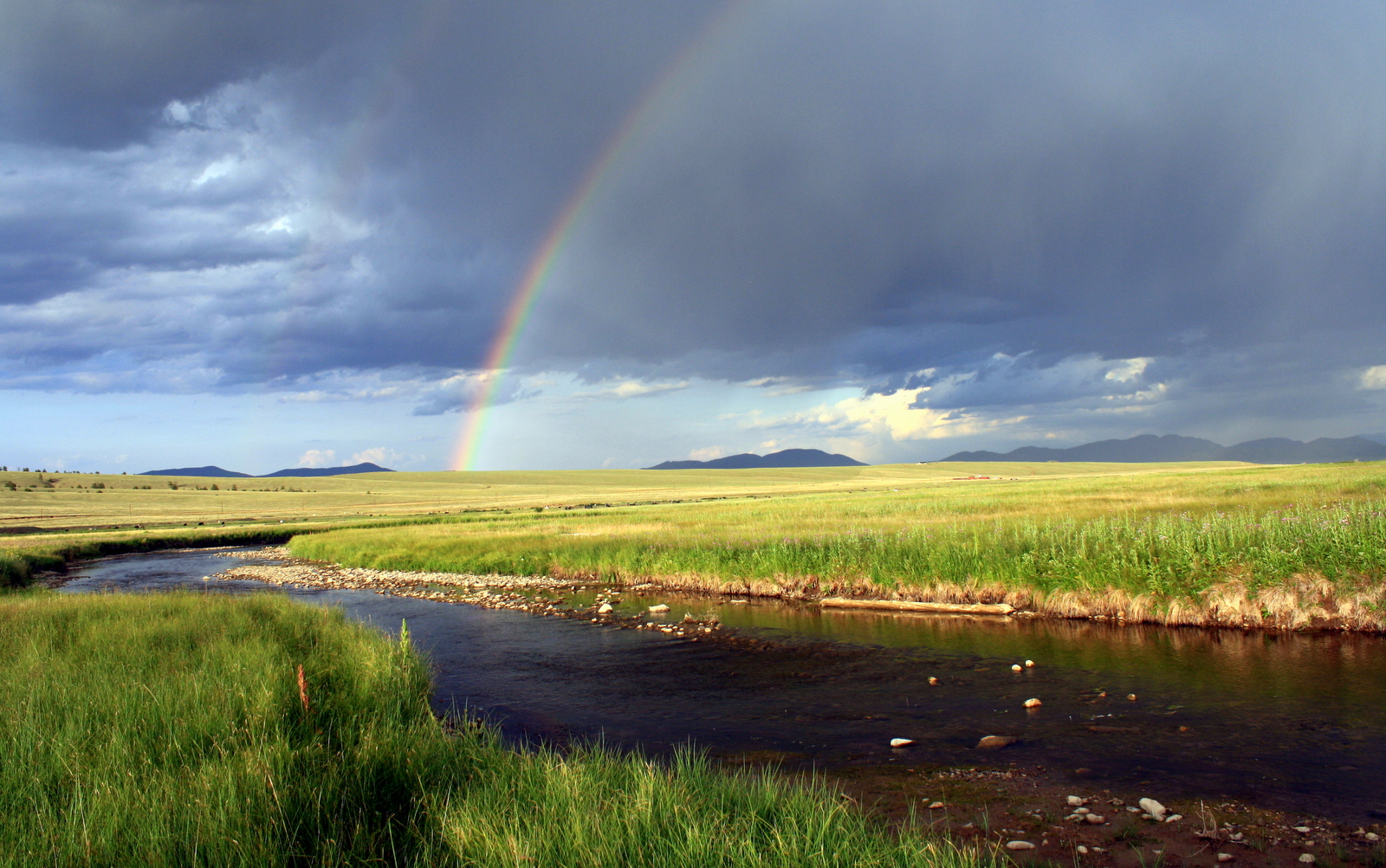
Dr. Eric Arzubi is the co-founder of Frontier Psychiatry, a Montana-based medical practice that is accelerating and expanding access to high-quality psychiatric care for rural communities.
By many metrics, Montana can be described as the epicenter of the United States’ mental health crisis. The large, mostly rural state is home to many vulnerable populations who are disproportionately affected by mental health concerns. And given Montana’s sprawling, lightly populated landscape, easy access to specialized and high-quality mental health care has been a significant challenge. But thanks to technological advancements and increased internet access, Eric and his team have successfully used telepsychiatry to reach underserved communities throughout Montana.
Eric’s path to becoming an innovator in rural medicine is an amazing, unexpected, and inspiring story. After graduating from college, he spent most of his twenties working as a Wall Street bond trader for Morgan Stanley, traveling the world and earning a great living. But despite his material success, he was unfulfilled with his career and felt a deep longing to do purpose-driven work that made the world a better place. So, at age 29, he decided to walk away from Wall Street and begin the long process of becoming a doctor– prerequisite courses, medical school, residency, and a fellowship in child psychiatry. At age 44, he landed his first job as a psychiatrist in Billings, Montana, where he fell in love with the people and place, and he began his quest to find solutions to the mental health crisis that plagues the rural West.
Mental health is a topic that is near and dear to my heart, so it was a real honor to have the opportunity to chat with Eric and learn about his innovative approach to solving such a complex societal challenge. We started out discussing his path to medicine– everything from why he decided to walk away from Wall Street to why he chose psychiatry as his specialty. We discuss the factors that have made Montana the epicenter of the mental health crisis, and what makes Frontier Psychiatry so uniquely qualified to help. We discuss approaches to scaling mental health care throughout the West, how Eric’s business and entrepreneurial background has helped him to find solutions to such a complex problem, and why it’s important for all of us to be advocates for mental health in our own communities. He also describes one of Frontier Psychiatry’s newest initiatives, a partnership with the Montana Department of Agriculture that provides free, confidential counseling to men and women working in agriculture in Montana.
Eric’s life story and his work are extremely inspiring and important, so I know you’ll enjoy this episode. Thanks to Eric for taking the time to talk, and thanks to you for listening.
Headshot courtesy of Eric Arzubi
—
Download on Apple Podcasts
—
Download on Spotify
—
Download on Google Podcasts
—
Download on Overcast
—
This episode is brought to you by The Arthur M. Blank Family Foundation and its Montana-based AMB West Philanthropies, both of which embody the values-based approach to philanthropy and business of their Chairman Arthur M. Blank
EPISODE NOTES
Topics Discussed:
- 4:00 – Eric describes what he was doing when he was 28
- 6:00 – Eric talks about his change of heart at age 29
- 12:00 – Eric discusses his friends’ and family’s reaction to his career shift, and how one staff member at Morgan Stanley gave him the courage and space to pursue his medical career
- 16:00 – Eric talks about how psychiatry caught his attention
- 21:45 – Eric explains how he ended up in Montana
- 32:30 – Eric talks about what makes Frontier Psychiatry special
- 37:30 – Eric discusses how his nontraditional career path may have helped him challenge established practices in the field of mental healthcare
- 41:45 – Eric talks about the balance in his work between addressing distinct issues and deep, underlying problems
- 48:45 – Eric discusses what gives him hope that there are scalable solutions for mental health challenges, especially in rural communities
- 55:00 – Eric explains the role that untrained citizens can play in advocating for/supporting mental health
- 1:02:45 – Eric’s book recommendations
- 1:07:30 – Eric’s parting words of wisdom
Information Referenced:
- Eric’s TED talk
- Frontier Psychiatry
- Morgan Stanley
- The Hamptons
- American Academy of Pediatrics
- Philips
- Billings Clinic
- Adverse Childhood Experiences
- Nurse-Family Partnership
- National Alliance on Mental Illness
- Mental Health America
- Healing: Our Path from Mental Illness to Mental Health by Thomas Insel
- National Institute of Mental Health
- The Voltage Effect by John A. List
- The Culture Engine by Chris Edmonds
- Counseling Access for Montana Ag
Enjoy this episode? Then you might like these too:
- Matt Pierson – Finding New Solutions for Food Insecurity
- Liz Moore – For the Love of Montana
- NEW WEST DISPATCH – Marci McLean & Cora Neumann on COVID’s Impact on Native Communities
- Shane Doyle – Reverence for the Past, Hope for the Future
- Iris Gardner – Living with Intention
- Chris La Tray – Rediscovering His Past, Writing His Future
- Kate Kavanaugh – Regeneration & Restoration
- Mike Foote – Perfection is in the Process
- Jason Gardner – A Life of Purpose & Service
The Life-Changing Magic of Living Strenuously, with Kate Kavanaugh
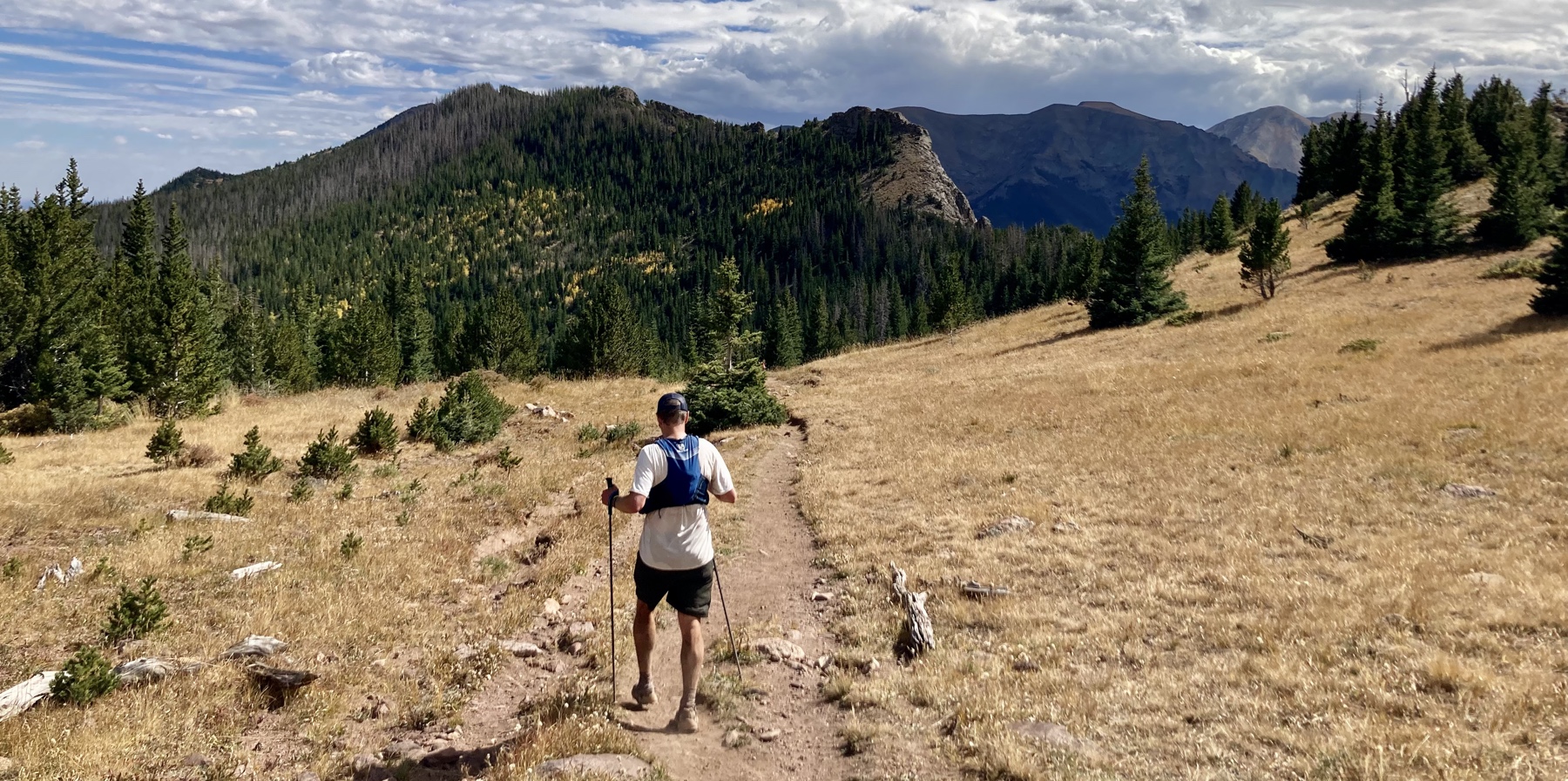
This episode is a little different– it’s me being interviewed by my friend and past Mountain & Prairie podcast guest Kate Kavanaugh. If you’ve been listening for a while, then I’m sure you remember Kate– she’s a farmer, butcher, and all-around interesting woman who co-founded Western Daughters Butcher Shop in Denver.
Kate recently started an excellent new podcast called Ground Work, which covers a variety of interesting topics, from soil to health to books to intentional living. Kate is unbelievably smart and insightful, and there’s a ton of overlap between what I’m doing with M&P and what she’s doing with Ground Work, so I’d encourage you to check out all of her episodes. There’s a link in the notes.
Even though I’m still confused as to why anybody would ever want to interview me, Kate did and we had a fun conversation about everything from conservation to ultra running, reading to starting a podcast. We also talk a lot about my obsession with living what Theodore Roosevelt called the Strenuous Life, and how adopting that approach to life has been life-changing for me.
And speaking of the Strenuous Life, I just launched a new section of the website devoted to The Strenuous Life and offering ways for the Mountain & Prairie community to connect and collaborate in the spirit of “Living Strenuously.” Rather than try to explain it all here, I’d encourage you to click over to learn more about all the details.
Thanks for listening. Hope you enjoy this and all of Kate’s podcast episodes. And I hope you’ll be able to join some of the M&P community in our commitment to living the Strenuous Life. Enjoy!
- Kate’s GROUND WORK podcast
- Strenuous Living on Mountain & Prairie
- Mountain & Prairie on Strava
- Mountain & Prairie on Goodreads
- Annual Strenuous Life Retreat
—
Download on Apple Podcasts
—
Download on Spotify
—
Download on Google Podcasts
—
Download on Overcast
“I wish to preach, not the doctrine of ignoble ease, but the doctrine of the strenuous life, the life of toil and effort, of labor and strife; to preach that highest form of success which comes, not to the man who desires mere easy peace, but to the man who does not shrink from danger, from hardship, or from bitter toil, and who out of these wins the splendid ultimate triumph.”
Theodore Roosevelt
Land Tawney – Energetic & Optimistic
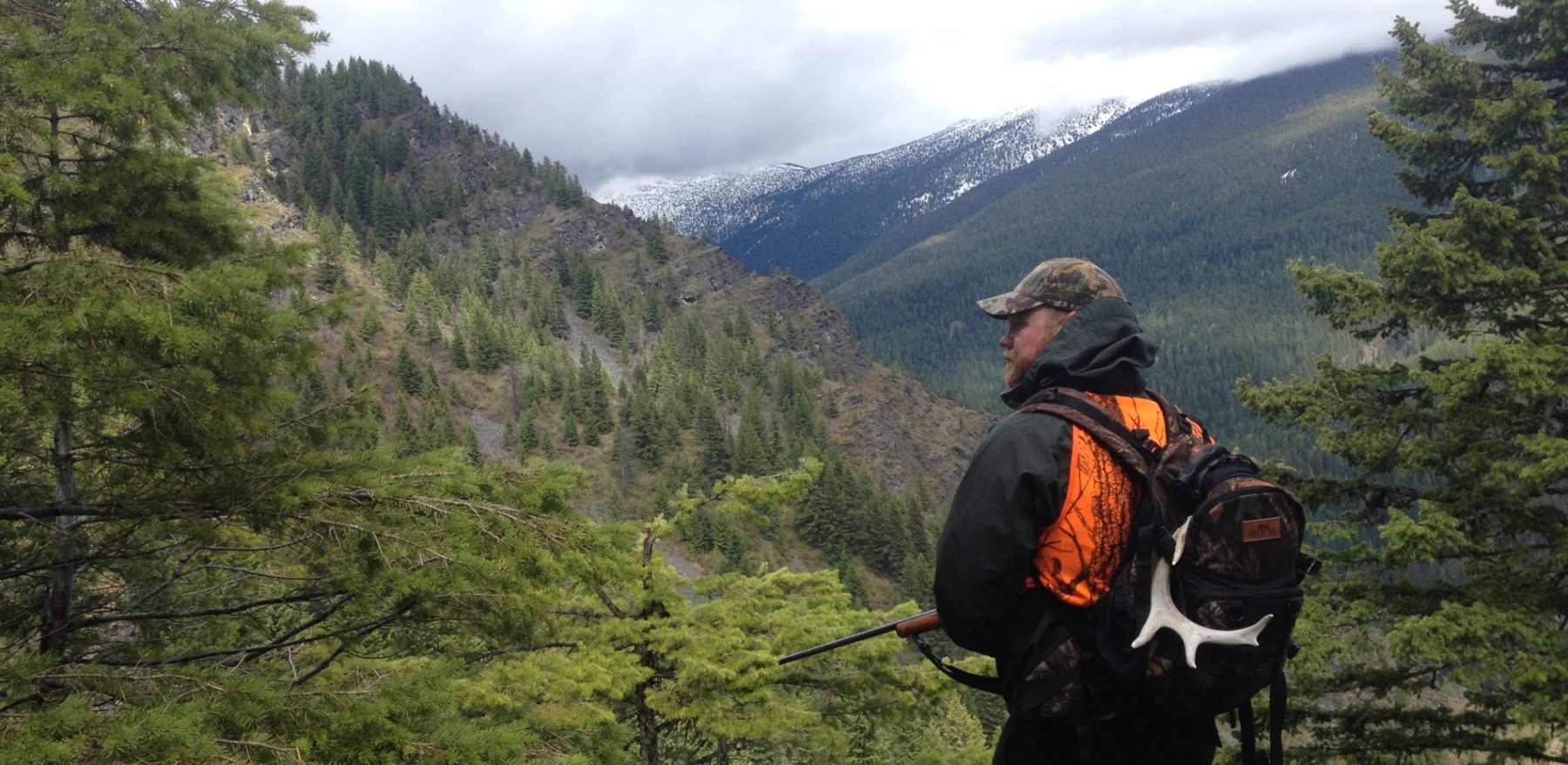
Land Tawney is the President and CEO of Backcountry Hunters and Anglers, one of North America’s leading and most effective advocates for wild public lands, waters and wildlife. Founded around a campfire in 2004, BHA uses education, nonpartisan political advocacy, stewardship initiatives, and stakeholder coalitions to ensure the protection of our public lands for generations to come. As its name implies, BHA is an organization that works on behalf of sportsmen, but you don’t have to be a hardcore hunter or fisherman to benefit from its work. I’m a lot of things, but a hardcore hunter is not one of them– yet, I’m a proud member of BHA and a super-fan of all that it has accomplished.
Land was born and raised in Montana, the son of two highly respected conservationists who instilled in him a deep reverence for wild places and the importance of protecting them. From an early age, Land was hunting, fishing, and spending time around his parents’ friends and colleagues, many of whom were well-known, renowned conservationists. When Land was in college, his father passed away, which fortified his desire to devote all of his professional energy to conserving the wild places that have always meant so much to his family. After successful stints at several notable conservation organizations, Land took the helm of BHA in 2013. Since then, he has led and grown the organization into one of the country’s leading voices for sportsmen and public land protectors.
When Land and I connected for this conversation, he was hard at work preparing for the upcoming BHA Rendezvous, which is taking place May 12-14, 2022 in Missoula, Montana. We discuss all of the details of that premiere conservation event, and you can find additional information in the notes and on this episode’s webpage. And we also covered a ton of interesting and important topics, including: the importance of advocating for conservation in Washington, DC; how apathy can be a huge threat to our wild lands; the slippery-slope threat of transferring federal lands to state or private entities; the importance of remaining optimistic in the face of challenges; how BHA helps and encourages new hunters; the importance of BHA’s state chapters and local leadership; Land’s personal and professional conservation journey; and, of course, he offers tons of great book recommendations.
A huge thanks to Land for joining me during such a busy time of year. And I encourage all of you to check out BHA’s membership options and consider supporting them if you are so inclined. I deal with conservation organizations all day in both my podcast and conservation work, and BHA is the best of the best. Hope you enjoy this episode.
Header photo courtesy of Land Tawney and BHA, portrait by Maggie Hamilton
This episode is brought to you thanks to the generous support of Ranchlands.
Visit www.ranchlands.com to learn more about their top-notch vacations, leather goods and apparel, or to explore their excellent blog, the “Ranchlands Review.”
THANK YOU, Ranchlands!
—
Download on Apple Podcasts
—
Download on Spotify
—
Download on Google Podcasts
—
Download on Overcast
EPISODE NOTES
Topics Discussed:
- 6:30 – Land talks about Backcountry Hunters and Anglers
- 12:30 – Land discusses his plan for when he advocates for conservation issues in DC
- 17:15 – Land describes what he thinks is the greatest threat to public lands that folks should be aware of
- 20:15 – Land explains his concern with transferring ownership of public lands to state or private entities
- 23:30 – Land talks about how he maintains a healthy level of skepticism in his advocacy work without becoming jaded
- 27:15 – Land explains the function and importance of BHA’s state chapters
- 30:15 – Land talks about BHA programs that encourage new hunters and anglers
- 36:15 – Land talks about his childhood and the role that the outdoors played in it
- 40:45 – Land discusses his first job out of college
- 44:15 – Land talks about the common threads he noticed in his conservation mentors
- 48:15 – Land describes the BHA Rendezvous
- 58:15 – Land’s book recommendations
Information Referenced:
- Backcountry Hunters and Anglers
- BHA Rendevous 2022
- Trout Unlimited
- Rocky Mountain Elk Foundation
- Pheasants Forever
- Ducks Unlimited
- BHA Armed Forces Initiative
- BHA Collegiate Program
- Land Trust Alliance
- LTA’s Advocacy Days
- Cory Gardner
- Recovering America’s Wildlife Act
- Pittman–Robertson Federal Aid in Wildlife Restoration Act
- Duck Stamps
- Kingfisher
- American Dipper
- Great Blue Heron
- Theodore Roosevelt Conservation Partnership
- Jim Range
- Mike Lee
- The HOUSES Act
- The Federal Land Transaction Facilitation Act
- Adam Gall
- National Wild Turkey Federation
- BHA’s Hunting for Sustainability Program
- BHA’s Women in the Woods Initiative
- BHA Membership
- A River Runs Through It by Norman Maclean
- Blackfoot River
- Clark Fork River
- Bitterroot River
- Patty Canyon
- Duck blind
- Conservation Easements
- Long Eared Owls
- Howard Vincent
- Smith River
- Theodore Roosevelt biography trilogy by Edmund Morris
- The Rendezvous
- Rachel Schmidt
- Tyson Running Wolf
- Rue Mapp
- Outdoor Afro
- David Wise
- Clay Hayes
- Alone
- Mark Kenyon
- Meat Eater
- Jonathan Wilkins
- North American Wildlife Model
- Hal Herring: BHA Podcast & Mountain and Prairie
- Ranch Life and the Hunting Trail by Theodore Roosevelt
- American Sportsmen and the Origins of Conservation by John F. Reiger
- Gifford Pinchot
- Where the Crawdads Sing by Delia Owens
- Otherlands by Thomas Halliday
- Lake Missoula
Enjoy this episode? Then you might like these too:
- Hal Herring – A Man of Words & Wild Places
- Mark Kenyon – A Passion for Public Lands
- Reflections On My First Elk Hunt, with Adam Gall
- Alexis Bonogofsky – Taking a Stand for the West
- Gabe Vasquez – Advocate for Equity in the Outdoors
- Jessica Wahl Turner – Outdoor Recreation & Rural Economies
- Rachel VandeVoort – Harnessing the Power of Outdoor Recreation
- Jason Gardner – A Life of Purpose & Service
- Kelsey Johnson – Chasing Her Artistic Ambitions
- Iris Gardner – Living with Intention
Visit the podcast page for a full list of episodes where you can filter episodes by topic and guests’ vocations.
Betsy Gaines Quammen – A Fascinating History of Public Lands in the West
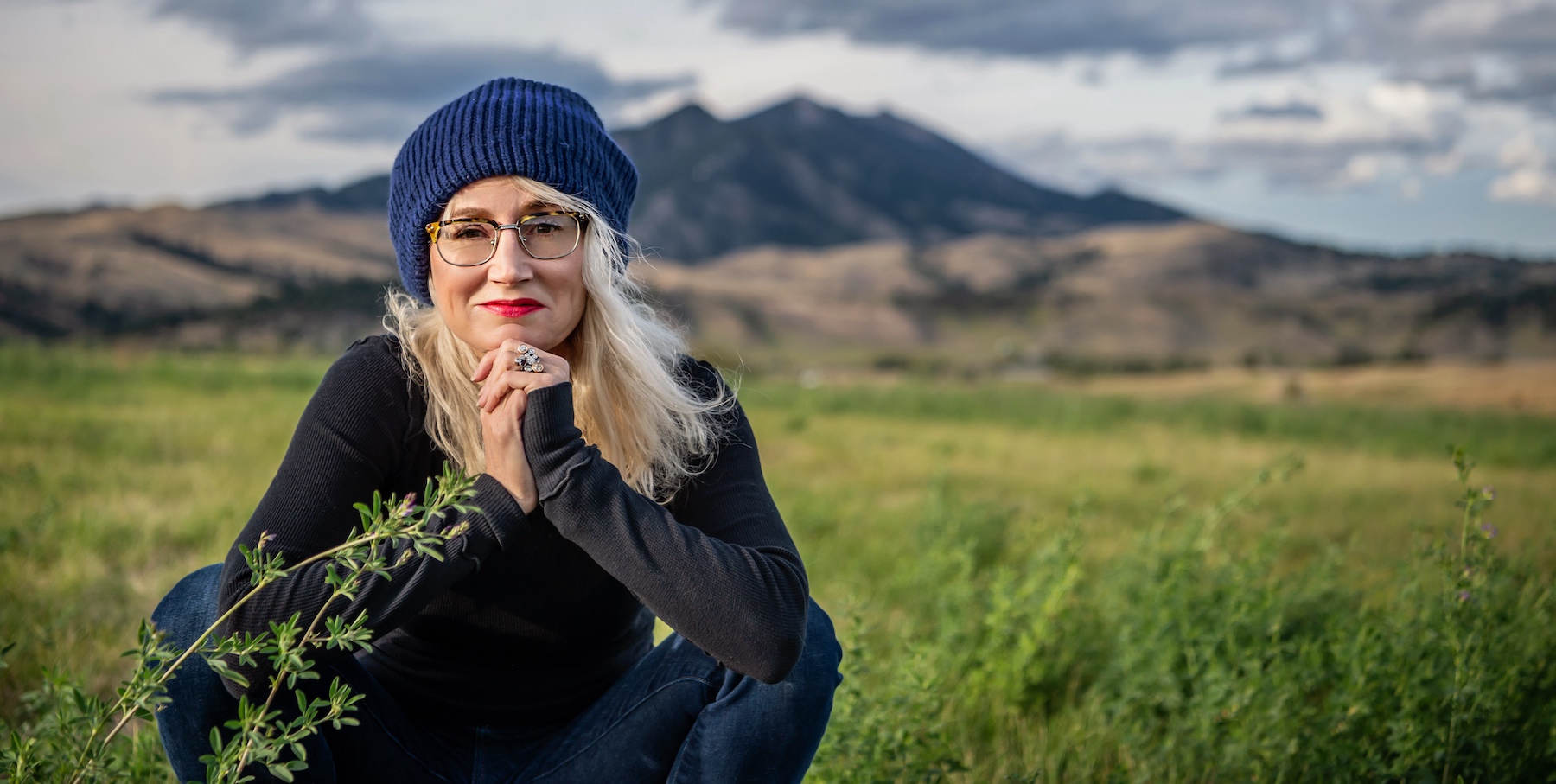
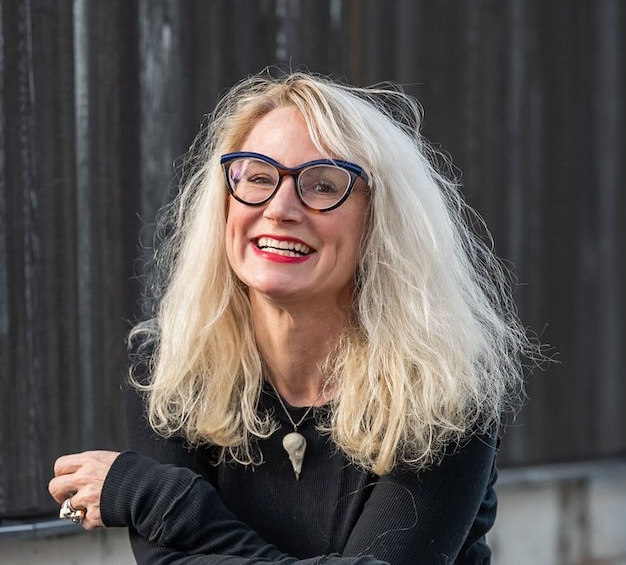
Betsy Gaines Quammen is a historian and conservationist, and she’s also the author of the excellent book American Zion: Cliven Bundy, God, & Public Lands in the West. Betsy has enjoyed a long career in the conservation world, working on issues ranging from grizzly bears in the West to fish in Mongolia to wildlife in East Africa. She also holds a doctorate in Environmental History from Montana State University, where her dissertation focused on the Mormon settlement of the West and public land conflicts. With such a depth of expertise on such a wide range of subjects, I was thrilled to have Betsy join me for a conversation about her book, public lands, and the West.
American Zion had been recommended to me numerous times since it was published in early 2020. Many of my most knowledgeable friends told me it was a must-read for anyone trying to make sense of the present-day threats to public lands here in the West. Well, I finally read it a few weeks ago, and I can confirm that my friends were correct– the book provided me with much-needed, nuanced context for understanding both specific public lands controversies and broader political threats. It also provided fascinating insights into the mindsets and goals of the Bundy family– the people behind the infamous occupation of Malheur Wildlife Refuge and the Battle of Bunkerville. I was also fascinated by the beliefs of the Bundys and their ancestors, and how their ideas about everything from religious texts to the US Constitution have influenced public discourse in the West and beyond.
Betsy and I connected last week and had a fun and educational conversation about everything from her career as a conservationist to her in-person interactions with the Bundy family. We started out discussing how she became interested in the West and why the Morman settlement of the West became the focus of her work. We discuss the Mormon prophets Joseph Smith and Brigham Young, and how and why Mormons settled in the West. We talked about how perceived persecution by the US government has served as a faith-building experience for the Bundys and their followers, and whether or not the Bundys truly believe the prophesies that they preach. We discuss the Sagebrush Rebellion, the Malheur takeover, the Battle of Bunkerville, and how Betsy thinks about her personal safety when writing about potentially violent people. She also talks about how American Zion was positively received by her Mormon friends, describes her current book project, and recommends tons of books that you’ll want to check out. Links to everything are in the episode notes.
It was great to finally have the opportunity to chat with Betsy, and I sincerely appreciate her taking the time. Hope you enjoy it as much as I did.
Top photos courtesy of Betsy Gaines Quammen, book photo by Ed
LISTEN:
—
Download on Apple Podcasts
—
Download on Spotify
—
Download on Google Podcasts
—
Download on Overcast
EPISODE NOTES:
Topics Discussed:
- 6:00 – Betsy reads her opening paragraph from her book American Zion
- 8:45 – Betsy explains how she became interested in the western US
- 10:00 – Betsy talks about why she began looking into Mormon history in the western states
- 14:45 – Betsy talks about her research and interactions regarding the Bundy family and their anti-federal government activities
- 22:00 – Betsy discusses the history of the Church of Jesus Christ of Latter Day Saints and how that impacted many rural attitudes towards land management and the federal government
- 27:00 – Betsy discusses her personal interactions with Cliven Bundy
- 31:00 – Betsy explains the depth of the Bundy’s faith and how that plays out in their political and anti-government action
- 31:30 – Betsy talks about the Bundys’ action after she published her book and explores the differences between the Malheur and Bunkerville incidents
- 34:00 – Betsy talks discusses the implications of her writing for her personal safety
- 35:45 – Betsy explains why any public land user should care about what the Bundys are doing.
- 40:45 – Betsy explains how anti-Semitism and the Sagebrush Rebellion laid the groundwork for the misinformation that is rampant today
- 46:00 – Betsy talks about how her book was received by her Mormon friends
- 50:30 – Betsy discusses her current work
- 52:45 – Betsy’s recommended books about the West
- 1:03:00 – Betsy’s parting words of wisdom
Information Referenced:
- Betsy Gaines Quammen
- American Zion by Betsy Gaines Quammen
- Evergreen, CO
- Colorado Springs, CO
- Colorado College
- Nairobi, Kenya
- Doug Peacock
- Church of Jesus Christ of Latter Day Saints – LDS, Mormons
- Terry Tempest Williams
- Under the Banner of Heaven by John Krakauer
- New TV series based on the book
- Bundyville
- Sarah Dant, Weber State
- Weber State University
- Malheur Wildlife Refuge
- Occupation
- https://en.wikipedia.org/wiki/Cliven_Bundy
- Ammon Bundy
- Joseph Smith
- Zion
- Zion National Park
- Sagebrush Rebellion
- Bunkerville, NV
- The Battle of Bunkerville
- The Wilderness Act
- The Endangered Species Act
- Monroe Mountain
- Piute County
- Q-Anonymous conspiracy theories
- Cleon Skousen
- Glenn Beck
- John Birch Society
- Stewart Rhodes, Oathkeepers
- January 6th insurrection
- Mitt Romney
- Mike Lee
- Gretchen Whitmer
- Burns, OR
- The Rothschilds
- 1992 UN Earth Summit to Address Sustainability in the 21st Century
- Agenda 21
- California dad killed his kids over QAnon and ‘serpent DNA’ conspiracy theories, feds claim
- LDS statement about the occupation of the Malheur Wildlife Refuge
- Logan, UT
- Fools Crow by James Welch
- Blackfeet Nation
- Close Range: Wyoming Stories by Annie Proulx
- Includes Brokeback Mountain by Annie Proulx
- Ceremony by Leslie Marmon Silko
- Pueblo of Laguna
- Deb Haaland
- House Made of Dawn by N. Scott Momaday
- Kiowa Tribe
- Chris La Tray
- Annie Helen Peterson
- Hal Herring
- Fifty-Six Counties by Russel Roland
- The Mountain Meadows Massacre by Juanita Brooks
- Rick Bass
- Torrey House Press
- Amy Irvine
- David Gessner
- Patagonia Books
- Fantasyland by Kurt Andersen
Enjoy this episode? Then you might like these too:
- Shane Doyle – Reverence for the Past, Hope for the Future
- Adam Gall – A Reverence for Wildlife & Wild Places
- Chris La Tray – Rediscovering His Past, Writing His Future
- Hal Herring – A Man of Words & Wild Places
- Mark Kenyon – A Passion for Public Lands
- Heather Hansman, Part 2 – The Fascinating Story of Skiing’s Past, Present & Future
- Sara Dant – A Deep Dive Into the History of the West
- David Gessner, Part 3 – A Confluence of Conservation Ideals
- Becky Edwards – Amplifying the Power of Women in the West
Visit the podcast page for a full list of episodes where you can filter episodes by topic and guests’ vocations.
Brian Yablonski – Action-Oriented Conservationist
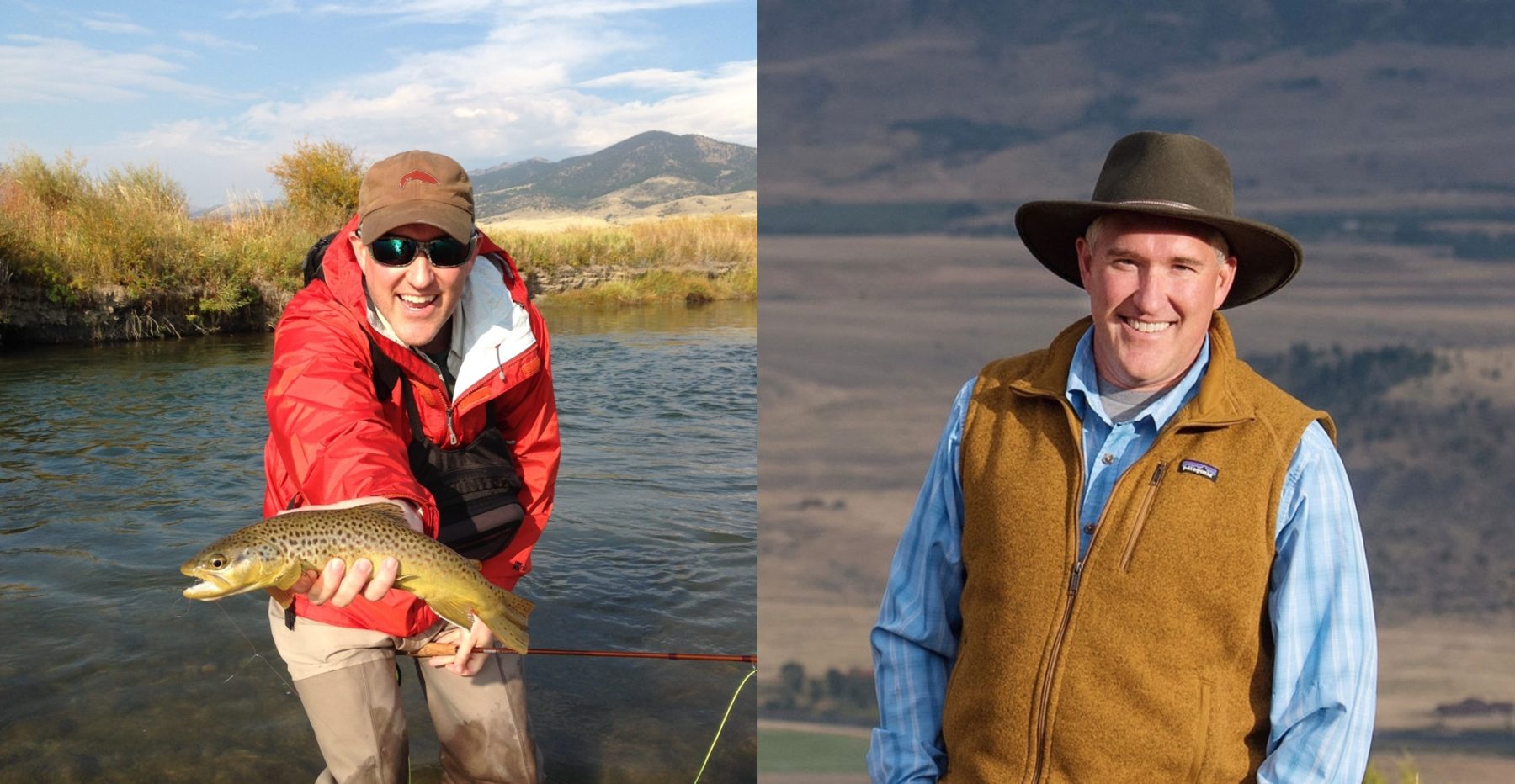
Brian Yablonski is the Chief Executive Officer of the Property and Environment Research Center (“PERC”), a Bozeman-based research institute dedicated to promoting conservation by exploring how voluntary trade can produce positive environmental outcomes. For more than 40 years, PERC has explored market-based solutions for major conservation challenges throughout the West, and its current initiatives focus on innovative approaches for wildlife conservation, public lands management, and more. For example, PERC recently collaborated with the Greater Yellowstone Coalition and a ranching family in Paradise Valley, MT, to enact a first-of-its-kind elk occupancy agreement, which offers a new, win-win method for managing the sometimes-competing needs of livestock and wildlife.
Brian was born and raised on the east coast, and, prior to taking the helm at PERC, he enjoyed a successful career in public policy, business, and conservation. In 2018, he moved to Bozeman to lead PERC into its next chapter of conservation innovation in the West. As you’ll hear in this conversation, Brian has a deep respect for research, economic theory, and big ideas created by scholars and conservation professionals. But he is equally if not more, committed to putting these ideas into action– to making a tangible difference on the ground, throughout the communities of the West. In my experience, it can be difficult to find organizations that balance scholarly rigor with a commitment to execution, so it was a pleasure to speak with Brian and learn more about PERC’s unique approach to conservation.
Brian and I actually attended the same college in North Carolina, so it was fun to connect with a fellow Wake Forest Demon Deacon to discuss conservation here in the West. We started out discussing the history of PERC, and how and why the organization was founded back in 1980. We talked in detail about the elk occupancy agreement and how this new approach to wildlife and habitat management could be scaled throughout the West. We discuss the all-important role that private landowners play in wildlife and land conservation, and how market-based solutions can create new tools for finding win-win solutions. We discuss PERC’s work exploring the financial sustainability of National Parks, as well as PERC’s history of collaboration with a wide range of nonprofit and governmental entities. Brian shares his thoughts on the ideal role that government can play in conservation, and he discusses a few success stories of his careering in conservation. And as usual, we talk about book recommendations, and Brian offers up some great ones.
I’ve been following PERC’s work in the West for quite some time, so I thoroughly enjoyed being able to learn more about the organization directly from Brian. There are a lot of excellent resources mentioned in the episode, including some films that PERC has produced, so be sure to check out the notes for links to everything. Hope you enjoy!
Photos courtesy of Brian Yablonski and PERC
LISTEN:
—
Download on Apple Podcasts
—
Download on Spotify
—
Download on Google Podcasts
—
Download on Overcast
EPISODE NOTES:
Topics Discussed:
- 4:30 – Brian talks us through the history and work of the Property and Environment Research Center (PERC)
- 7:45 – Brian discusses the Elk Occupancy Agreements PERC has entered with the Greater Yellowstone Coalition
- 24:15 – Brian talks about how the Elk Occupancy Agreements model could be scaled up to incentivize conservation on a broader scale
- 29:30 – Brian discusses the balance he and PERC have to strike between high-level strategic thinking and on-the-ground implementation
- 35:15 – Brian talks about PERC’s partnership with the Environmental Defense Fund
- 38:30 – Brian describes what he believes the ideal role of government is, especially in conservation
- 42:45 – Brian talks about the work PERC is doing with National Parks
- 54:15 – Brian discusses his conservation work in Florida
- 1:00:15 – Brian’s book recommendations
- 1:08:00 – Brian’s parting words of wisdom
Information Referenced:
- The Property and Environment Research Center (PERC)
- PERC on YouTube
- Elk in Paradise
- PERC and National Parks
- Wake Forest University
- Elk Occupancy Agreements
- Greater Yellowstone Coalition
- Arthur Middleton
- Cody, WY
- Brucellosis in cattle
- Western Landowners Alliance
- National Elk Refuge
- Paradise Valley, MT
- Absaroka-Beatooth Wilderness
- Fescue grass
- Timothy grass
- The Nature Conservancy
- Ducks Unlimited
- Environmental Defense Fund
- Paradise Valley Working Lands
- Chris Costello
- Great American Outdoors Act
- Kruger National Park
- Pelican Island
- Critical Wildlife Area
- Coastal Conservation Association
- American Sportfishing Association
- The Bonefish and Tarpon Trust
- Undaunted Courage by Steven E. Ambrose
- American Big Game Hunting: the Book of the Boone and Crockett Club by Theodore Roosevelt and George Bird Grinnell
- Boone and Crockett Club
- Ted Turner
- Rough Riders
- Todd Wilkinson
- Mountain Journal
- Aldo Leopold
Enjoy this episode? Then you might like these too:
- Kate Mannix – A Legacy of Land Stewardship
- Heather Hansman, Part 2 – The Fascinating Story of Skiing’s Past, Present & Future
- Matt Pierson – Finding New Solutions for Food Insecurity
- Shane Doyle – Reverence for the Past, Hope for the Future
- Antonia Malchik – Exploring Culture & Complexity
- NEW WEST DISPATCH – Marci McLean & Cora Neumann on COVID’s Impact on Native Communities
- Carlos Fernandez – The Power of Partnerships
- Rachel VandeVoort – Harnessing the Power of Outdoor Recreation
Visit the podcast page for a full list of episodes where you can filter episodes by topic and guests’ vocations.
Dylan Tomine – Protecting What He Loves
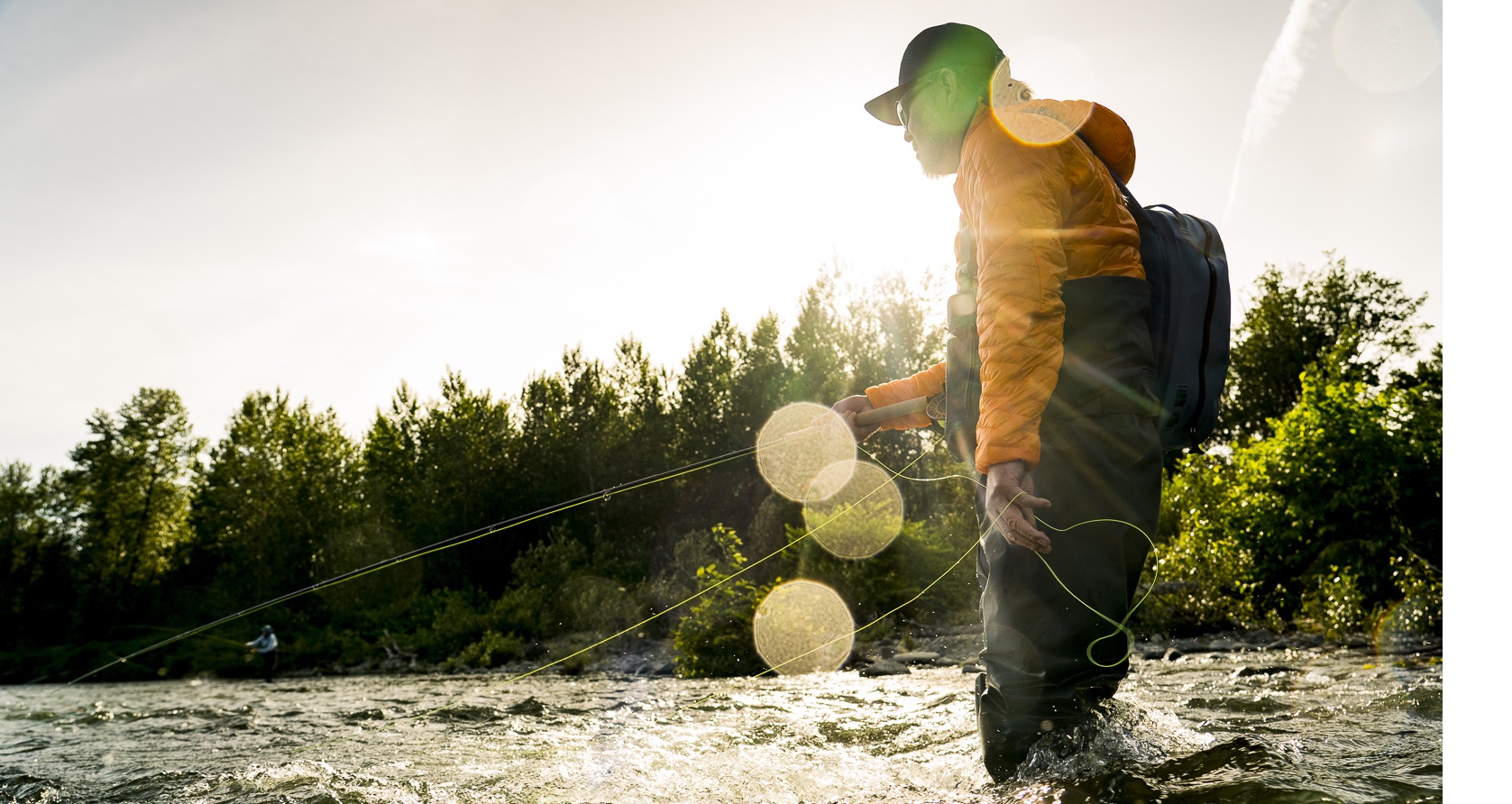
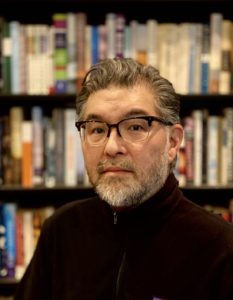
Dylan Tomine is a conservationist, angler, and author of the excellent new book Headwaters: The Adventures, Obsession and Evolution of a Fly Fisherman. Headwaters is a collection of essays and stories from Dylan’s life as a self-proclaimed fly fishing bum, a life that has taken him from his home in the northwest to the far reaches of the globe and back again. You don’t have to be a hardcore angler to connect with this book– it’s an important read for anyone who loves wild places and feels drawn to protect them. And I’m not alone in my praise– in just the few days between when we recorded this conversation and now, the book has received glowing reviews from the Wall Street Journal, Seattle Times, and more.
Dylan was born and raised in the Pacific Northwest, and he’s been obsessed with fish for as long as he can remember. At an early age, he caught his first steelhead, and from that point on he has been laser-focused on that specific species– and he’s devoted huge swaths of his life to both pursuing and protecting the fascinating fish. Given steelhead’s dwindling populations, threatened habitat, and often miserable weather that defines their home waters, steelhead fisherman like Dylan are a rare breed–some would argue they are gluttons for punishment. So when you combine Dylan’s skill as a writer, with his devotion to steelhead, with his love of suffering, the end product is a fascinating man with a gift for telling important stories. Just the kind of person I love getting to know!
I thoroughly enjoyed this conversation with Dylan and thought it was the perfect mix of sobering analysis of the state of the West’s fisheries combined with optimism and solutions for solving the challenges. He also offers up plentiful hilarious and insightful stories from his life on the water. We started out talking about Dylan’s upbringing in the northwest and how and why he became so obsessed with fish. We talk about the moment he realized that he needed to play an active role in protecting fish and fisheries, and why fish health is an indicator of larger environmental challenges. We talk about his longstanding role as a Patagonia fishing ambassador, and how Yvon Chouinard has played a critical role in Dylan’s evolution as a conservationist. We discuss how parenthood changes people’s outlook on environmental challenges and the role of the upcoming generation in the environmental movement. We obviously talk a lot about Headwaters, as well as his previous book called Closer to the Ground, which I also loved. We discussed his creative process, and, as you’d expect, he has tons and tons of excellent book and author recommendations. Be sure to check the episode notes for links to those books and everything else we discuss.
I can’t thank Dylan enough for all his work as a writer and conservationist, and for taking the time to chat with me for this episode. Hope you enjoy!

Header photo by Matthew DeLorme, headshot by Weston Tomine
This episode is brought to you thanks to the generous support of Ranchlands.
Visit www.ranchlands.com to learn more about their top-notch vacations, leather goods and apparel, or to explore their excellent blog, the “Ranchlands Review.”
THANK YOU, Ranchlands!
LISTEN:
—
Download on Apple Podcasts
—
Download on Spotify
—
Download on Google Podcasts
—
Download on Overcast
EPISODE NOTES:
Topics Discussed:
- 6:00 – Dylan discusses his childhood and how fishing became a part of his life
- 8:30 – Dylan talks about steelhead
- 11:00 – Dylan describes the general conditions in which one fishes for steelhead
- 16:15 – Dylan talks about the moment he realized there were real problems and challenges facing the native steelhead population
- 20:00 – Dylan describes how becoming a parent impacted his conservation ethic
- 28:00 – Dylan explains why people should care about declining steelhead populations
- 34:00 – Dylan talks about why he wrote his book Headwaters
- 36:00 – Dylan explains how he became involved with Patagonia
- 41:30 – Dylan talks about Yvon Chouinard, what makes him unique, and how that has made Patagonia into the powerhouse company it is today
- 45:00 – Dylan talks about Patagonia Books
- 49:15 – Dylan reads an excerpt from his book
- 54:30 – Dylan describes his writing process
- 58:15 – Dylan talks about the authors he admires
Information Referenced:
- Headwaters by Dylan Tomine
- Closer to the Ground by Dylan Tomine
- Frances Ashforth
- Steelhead
- Olympic Peninsula
- Swung fly
- National Outdoor Leadership School (NOLS)
- Olympic National Park
- Bogachiel River
- Puget Sound
- Skykomish River
- Polio
- Spanish Flu
- Indicator species
- Mark Kurlansky
- Cod by Mark Kurlansky
- Salt by Mark Kurlansky
- Chinook salmon
- Yvon and Malinda Chouinard
- Tom McGuane
- Gretel Ehrlich
- Dean Potter
- Steph Davis
- Don’t buy this jacket
- Key West, FL
- Jim Harrison
- Hunter S. Thompson
- Jimmy Buffett
- Doug Thomkins
- The North Face
- Royal Robbins
- Patagonia Books
- Rick Ridgeway
- Jane Seivert
- Chris Burkard
- Jennifer Ridgeway
- Jason Isbell
- Russell Chatham
- Dark Waters by Russel Chatham
- James Welch
- Winter in the Blood by James Welch
- David Guterson
- Snow Falling on Cedars by David Gutterson
- East of the Mountains by David Getterson
- John Larison
- Whiskey When We’re Dry by John Larison
- Callan Wink
- August by Callen Winks
- Chris Dombrowski
- Monte Burke
- Chris La Tray
- One Sentence Journal by Chris La Tray
- Brian Doyle
- Wet Engine by Brian Doyle
- Grace Notes by Brian Doyle
- Mink River by Brian Doyle
- The Plover by Brian Doyle
- Ken Kesey
- Sometimes a Great Notion by Ken Kesey
- Jonathan Raban
- Passage to Juneau by Jonathan Raban
- Bad Land by Jonathan Raban
- Karl Marlantes
- Matterhorn by Carl Marlantus
- Deep River by Carl Marlantus
Enjoy this episode? Then you might like these too:
- Chris La Tray – Rediscovering His Past, Writing His Future
- Alvin Dedeaux – Living His Dream
- Reflections On My First Elk Hunt, with Adam Gall
- Monte Burke – Exploring Obsession
- Malcolm Brooks – Epic Tales from the American West
- Rachel VandeVoort – Harnessing the Power of Outdoor Recreation
- Callan Wink – A New Voice for the New West
- Peter Heller – Chasing the Flow
- Hal Herring – A Man of Words & Wild Places
- Chris Dombrowski – Words, Water & the West
- Anna Brones – Committed to Creativity
Visit the podcast page for a full list of episodes where you can filter episodes by topic and guests’ vocations.
Liz Moore – For the Love of Montana
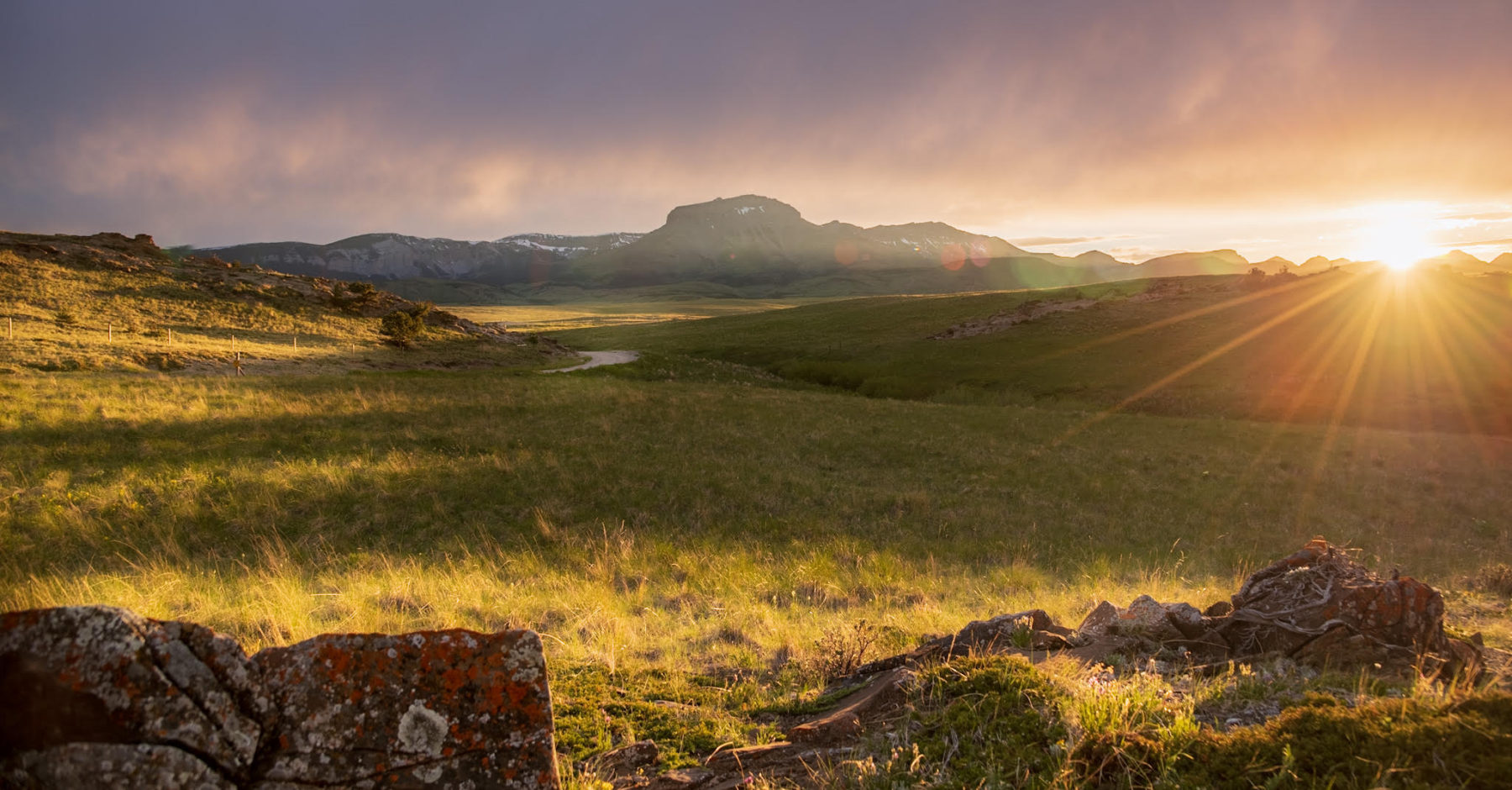
Liz Moore is the Executive Director of the Montana Nonprofit Association, an organization whose mission is to “provide leadership for Montana’s nonprofit sector and partner with charitable nonprofits to promote a sustainable, networked, and influential sector.” Founded in 2001, the MNA provides capacity, resources, and networking opportunities that allow Montana’s diverse and numerous nonprofit organizations to increase their effectiveness and better serve the communities and citizens of Montana. As you’ll hear in this conversation, Liz loves Montana and has devoted her career to the service of others, and her passion for making her home state an even better place is both inspiring and infectious.
As some of you may know, my full-time job is in the nonprofit sector– I’m the Conservation Director at a regional land trust in southeastern Colorado. Prior to moving into the nonprofit sector, I spent all of my career in the business world. But despite serving on several nonprofit boards and advisory committees, I still did not fully understand the critical role of nonprofits, especially in the West. It wasn’t until I was a year or so into my nonprofit conservation work that I realized just how critical nonprofits are to the functioning of society in the West. Nor did I understand how they complement the work of businesses and governmental entities. So I was thrilled to have Liz join me to discuss all of these issues, and I hope that you, the listener, will gain a deeper appreciation for why nonprofits are so important here in the West.
Liz and I connected virtually and had a wide-ranging conversation about the invaluable role of nonprofits in Montana and beyond. We started out discussing why Montana has such a large number of nonprofits per capita, and why Montana’s unique geography makes nonprofits such an essential part of the culture. We also discussed why Montanans are more involved in the community than what you see in many other regions of the United States. We talked a lot about COVID’s impact on the rural communities of Montana and how nonprofits were uniquely positioned to provide immediate and long-term relief to the unprecedented challenges created by the pandemic. We discussed Liz’s work on Montana’s Coronavirus Relief Task Force, and why she was asked to serve under two different governors, one Democrat and one Republican. We talk about how political polarization is affecting the nonprofit sector, and the importance of identifying and focusing on common ground rather than differences. We also discuss Liz’s upbringing in eastern Montana, her thoughts on what makes a successful nonprofit, her passion for photography, and much more.
I can’t thank Liz enough for taking the time to share all of her wisdom and insights about this important yet often not fully understood topic. You’ll learn a lot from this episode, so I hope you enjoy!
Header photograph by Liz Moore Photography, headshot courtesy of Liz
—
Download on Apple Podcasts
—
Download on Spotify
—
Download on Google Podcasts
—
Download on Overcast
—
This episode is brought to you by The Arthur M. Blank Family Foundation and its Montana-based AMB West Philanthropies, both of which embody the values-based approach to philanthropy and business of their Chairman Arthur M. Blank
EPISODE NOTES
Topics Discussed:
- 4:00 – Liz describes the Montana Nonprofit Association
- 6:00 – Liz talks about the nonprofit sector in Montana
- 8:30 – Liz explains what the high concentration of nonprofits in Montana means for the sector
- 10:45 – Liz talks about how COVID-19 impacted her work and the work of Montana nonprofits
- 13:30 – Liz explains why some nonprofits saw success during the pandemic and why others did not
- 17:30 – Liz discusses nonprofit lessons learned during the pandemic
- 20:00 – Liz explains some of the challenges facing the nonprofit workforce and why employee retention is so difficult in that sector
- 22:45 – Liz discusses some potential, if difficult avenues for addressing the challenges facing the nonprofit sector
- 26:00 – Liz gives some examples of nonprofit organizations and staff giving their best during the pandemic
- 30:00 – Liz explores the concept of generosity with respect to the nonprofit sector and explains where she saw Montana nonprofits exhibit generosity during the pandemic
- 33:00 – Liz describes how the current political/cultural climate impacts the nonprofit sector
- 40:30 – Liz talks about where she sees the nonprofit sector going in the coming years
- 43:45 – Liz identifies characteristics of successful nonprofits
- 46:00 – Liz discusses her background
- 50:00 – Liz gives advice for people facing forks in the road regarding their careers
- 53:00 – Liz explains how she became interested in photography
- 54:30 – Liz’s book recommendations
- 57:00 – Liz’s parting words of wisdom
Information Referenced:
- Montana Nonprofit Association (MNA)
- Liz Moore Photography
- Rocky Mountain Elk Foundation
- Helena Symphony
- The Myrna Loy
- Matt Pierson
- Montana Coronavirus Task Force
- Governor Steve Bullock
- Governor Greg Gianforte
- American Rescue Plan Act
- Miles City, MT
- Fromberg, MT
- Prickly Pear Land Trust
- Mary Hollow
- Governance as Leadership by Richard P Chait
- Gentlemen in Moscow by Amor Towles
- The Lincoln Highway by Amor Towles
- Leadership: In Turbulent Times by Dorris Kearns Goodwin
- Atomic Habits by James Clear
- Arthur M. Blank Family Foundation
- AMB West Philanthropies
Enjoy this episode? Then you might like these too:
- Shane Doyle – Reverence for the Past, Hope for the Future
- Matt Pierson – Finding New Solutions for Food Insecurity
- Lesli Allison & Tuda Libby Crews – Durable Conservation in the West… and Beyond
- Antonia Malchik – Exploring Culture & Complexity
- Dr. David Hewitt – The Science of Wildlife Conservation
- NEW WEST DISPATCH – Marci McLean & Cora Neumann on COVID’s Impact on Native Communities
- Jessica Wahl Turner – Outdoor Recreation & Rural Economies
- Carlos Fernandez – The Power of Partnerships
- Juanita Vero – A Deep Love of Place
- Gabe Vasquez – Advocate for Equity in the Outdoors
